




OFFICE O F ALUMNI REL A TI O NS, DEVEL O PMENT A N D CO MMUNIC A TI O N assistant dean of advancement, alumni relations and communication
MELISSA VON STADE
director of annual giving and advancement services
MARY R. BERGER
director of development for matthew j. ryan veterinary hospital
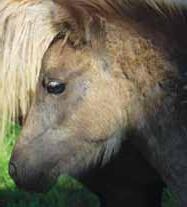
HELEN RADENKOVIC
director of stewardship and special projects, interim director of alumni relations
JILLIAN MARCUSSEN
director of development for new bolton center
JANE SIMONE
director of communication
KELLY STRATTON
communication specialist for new bolton center
SALLY SILVERMAN
advancement services coordinator
PATRICIA STOKES
special events coordinator
DARLEEN COLES
communication coordinator
JOHN DONGES
administrative coordinator
ELANNA ALBANESE
administrative assistant
MICHELLE BROOKS
administrative assistant for new bolton center
ANDREA WITHERS
photographers
JOHN DONGES
DENISE FOLEY
GAYLE JOSEPH

SALLY SILVERMAN
KELLY STRATTON
writers
MARY BERGER
DENISE FOLEY
COREEN HAGGERTY
EVAN LERNER
JILLIAN MARCUSSEN
ANNAMARIE SARACINO
SALLY SILVERMAN
JANE SIMONE
KELLY STRATTON
designer
ANNE MARIE KANE
Please address your correspondence to: Kelly Stratton
University of Pennsylvania
School of Veterinary Medicine 3800 Spruce Street
Philadelphia, PA 19104-6010
(215) 898-1475
skell@vet.upenn.edu
None of these articles is to be reproduced in any form without the permission of the school.
© Copyright 2011 by the Trustees of the University of Pennsylvania. The University of Pennsylvania values diversity and seeks talented students, faculty and staff from diverse backgrounds. The University of Pennsylvania does not discriminate on the basis of race, sex, sexual orientation, gender identity, religion, color, national or ethnic origin, age, disability, or status as a Vietnam Era Veteran or disabled veteran in the administration of educational policies, programs or activities; admissions policies; scholarship and loan awards; athletic, or other University administered programs or employment. Questions or complaints regarding this policy should be directed to: Executive Director, Office of Affirmative Action and Equal Opportunity Programs, Sansom Place East, 3600 Chestnut Street, Suite 228, Philadelphia, PA 19104-6106 or by phone at (215) 898-6993 (Voice) or (215) 898-7803 (TDD).
about the cover:
Dr. Cynthia M. Otto, associate professor and director of Penn Vet’s Working Dog Center, pictured with Roger Picard and Party Girl, Picard’s 4-year-old Labrador retriever search dog. Picard responded to the 9/11 disaster with his then-K9 partner, Jessie, who was a 5-year-old yellow Lab, as part of the K9 Search Specialist team with Federal Emergency Management Agency (FEMA) Florida Task Force 2. Together, the duo worked the day shift in the general area of the South Tower for seven days. Picard now works with Party Girl as part of the same FEMA task force. Dr. Otto was a veterinary respondent to 9/11.
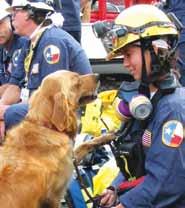
Every fall is a renewal. In academics we get many new years and the beginning of the academic year is a source of nostalgia and invigoration. We are all so fortunate to be in an environment to experience this newness year after year.
As always, one of the highlights is our incoming class. The strength of this year’s first years is, like all classes, impressive. You’ll see on page 22 a few statistics associated with our new students and I am sure you will be as impressed as I. Our admissions team has continued the tradition of admitting the next generation of exemplary veterinary leaders.
As we have weathered the economic downturn, I have often been asked to comment on the last few years, as we have managed through a crisis, emerging with renewed vision and vigor. We feel the worst is behind us, and, on reflection, this magnificent Penn Vet community has again proved its strength. This issue of Bellwether highlights many examples of Penn Vet’s strength and success, evidence that as an institution and as individuals, we lead in increasing the impact of veterinary medicine.
You’ll notice a number of collaborative projects, often led by Penn Vet faculty; vignettes of current students’ summers; and the varied roles faculty are playing to ensure public safety and provide guidelines for disaster-relief efforts. The work we do with one another – whether within our own campus, across the wider Penn campus, across the nation or around the world – positions us to continue to lead the way in animal and human health.
One illustration is on page 8. Here, you’ll read about just a few of the collaborations underway at Penn Vet. Dr. Charles Vite, assistant professor of neurology, and his work with Dr. Brian Litt, associate professor of neurology and bioengineering at the Perelman School of Medicine, is aiming to find an algorithm that will predict epileptic seizures in dogs and in humans, which has the potential to be life changing for both species. We also look at an example of taking what’s learned in the lab to the clinics, as well as how the semi-feral pony herd at New Bolton Center is a shared living lab.
On page 40 you’ll read about our strength in attracting the very best clinicians, committed to seeing Ryan Hospital’s exotic companion animal service succeed. Now called our Exotic Companion Animal Medicine and Surgery Service, we added new leadership with Dr. Nicole Wyre, who is dedicated to making the expertise
of these specialized vets available seven days a week to patients in need.
This issue also features how veterinarians play an urgently needed role in protecting and advancing the health of the dogs who work on behalf and by the side of their human partners. On page 4 we highlight Dr. Cindy Otto, associate professor, and her engagement with those working dogs who ensure international security, as well as the work of Dr. James Serpell, director, Center for the Interaction of Animals and Society, who is leading research that will help service dog organizations better prepare and choose dogs that will serve people in need.
As always, I am delighted to share the many projects that demonstrate that our students are VERY engaged in an array of incredibly innovative and exciting initiatives, which you can read about on page 16.
In addition to these exciting and impressive advances and adventures, this issue of Bellwether is also an issue of giving thanks.
We have included an Annual Report, showcasing some of our most steadfast supporters, which begins on page 25. I am amazed by the number of friends and especially by those who have supported Penn Vet for consecutive years. On behalf of everyone at the School, I sincerely thank you.
Further, we are on track to meet the goal of our current $125 million campaign early and we have increased our endowment, a result of wise and disciplined focus on protecting our future while transforming our ability to operate efficiently in the present. Because we are always concerned about student debt, we minimized the impact on our students; we did not rely on increased tuition nor increased class size in order to achieve financial sustainability. We are focusing, as we conclude the campaign, on raising funds to reduce student debt load.
I am also happy to share that, with the conclusion of the reappointment and review process, I continue as Dean until 2018. My vision for the second half of my tenure is to position Penn Vet as the clear leader in the global One Health Initiative. We will lead in increasing awareness of the role of our profession to advance all species’ and welfare, in a healthy environment. With all of the initiatives currently underway, and the many engaged in visionary plans for the future, we are on a trajectory to reach that goal.
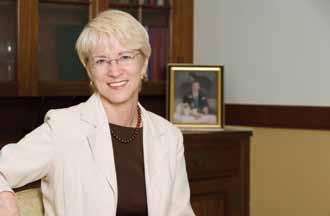
late last spring, people went crazy for Cairo.
The Navy SEAL dog played an integral role in the special operations team to find Osama Bin Laden, and was an instant celebrity in mainstream media after the May 1 mission. Talk about how well Cairo was trained, speculation on its breed, the gear it wore while parachuting into the compound and the quest for more details about his role that day, ran rampant.
While a dog playing the incredible hero that Cairo played during that important mission was a revelation to many, Cynthia M. Otto, DVM, PhD, associate professor at Penn Vet and director of the Penn Vet Working Dog Center, was not surprised.
“Dogs have had multiple jobs historically in wartime settings,” she said. “Sentry dogs were used in the Second World War, and now detection dogs are one of the most vital jobs in the military. Dogs’ sense of smell is so much better than ours and they can readily detect improvised explosive devices (IED) and trip wires.”
Researchers say that dogs were domesticated approximately 15,000 years ago and played several roles to their human companions. From comradeship to hunting, herding and protecting, dogs have been a pivotal addition to human lives.
“It’s difficult to know what the earliest relationships between dogs and people were like, but it seems that wolves may have been domesticated first as social companions before they came to be exploited for other more practical purposes,” said James Serpell, BSc, PhD, director of the Center for the Interaction of Animals and Society at Penn Vet. “Soon after that, however, their working capabilities were recognized and put to use.”
And so a variety of jobs were found for our canine companions and the field grew and developed into more sophisticated roles. Today, for example, detection dogs help find lost or trapped people, human remains, explosive devices and illicit drugs. Dogs are also used to assist human efforts during major disasters, wartime and border protection.
Started in 1962, the Philadelphia Police Department was one of the first K9 units in the country.
“The biggest thing we use our K9 unit for is building searches,” said Larry Love, a handler/trainer with the Philadelphia Police Department’s K9 Unit, of which he’s been a team member since 1986. “For example, if we are looking for a burglar in a school, you need two or three officers to cover a floor, but you would only need one dog that could indicate the location of the burglar. It’s more timeconsuming with manpower. Dogs save manpower and time.”
In Philadelphia, K9 dogs undergo 14 weeks of basic training, then 10 weeks of scent training for a total of 960 hours. K9 teams conduct 16 hours per month maintenance training after graduating and dogs live with their handlers.
“It takes six months to get a dog on the street,” said Love, who is working with his fifth dog, Duke, a German shepherd. “We purchase dogs with very basic training.”
Love says, too, that often, requests for K9 assistance increase when there is a disaster. He said that after the shooting at Columbine, Philadelphia ramped up its K9 presence in schools and after September 11 there was an overall increase in the need for these dogs.
And it was after the September 11 terrorist attacks that Dr. Otto became even more involved with these dogs.

As an on-the-ground responder to work with the search and rescue dogs who served at Ground Zero, Dr. Otto launched a longitudinal study, still ongoing and funded by the American Kennel Club’s Companion Animal Recovery (AKC CAR), whereby she would follow the responding dogs and monitor any of their health problems. Out of the 300 dogs that responded, about 25 percent are still living.
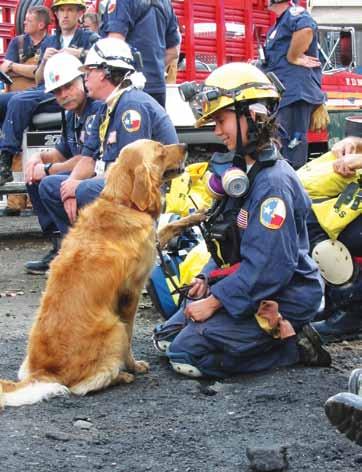
“In the 9/11 study so far, we didn’t see major impact on the respiratory system, but dogs don’t get asthma so they aren’t a good model for that,” said Dr. Otto. “They have a better filtering system in their noses than people so maybe that’s why their respiratory system wasn’t affected.”
There was, however, a trend in the heart.
“There is X-ray and some post-mortem evidence that there is a change in the heart in these dogs who serve,” said Dr. Otto. “The pollution may have contributed in those changes rather than in respiratory changes. Understanding these changes may also be important for people.”
Another of Dr. Otto’s projects involves building a DNA Bank and Health Registry database, which may shed some
light on a dog’s capacity to work. So far, the Bank houses more than 300 samples. It’s work that the AKC CAR has supported.
The idea is that if a genetic fingerprint is found in these working dogs, information can be applied to help search and rescue organizations, law enforcement, breeders and handlers to identify factors contributing to the success of these vital dogs.
“If we know the DNA fingerprint we may be able to look at shelter dogs to pull to work, too,” said Dr. Otto.
Because approximately only 30 percent of dogs entering detection-training programs are successful, this is important information that can be used to assist in breeding selection and the creation of more successful working canines.
Data collected includes blood samples for DNA and serum banking for dogs trained to detect live humans, cadavers, explosives or drugs; pedigrees/blood lines; training information; behavioral assessments; health assessments; training certifications and updates. Dr. Otto will use this data to perform genotyping of markers throughout the canine genome to detect linkages between health and working traits and specific regions of the genome.
In addition to her studies, Dr. Otto also started a semiannual conference for working dog handlers. This year’s conference “Defining, Developing and Documenting Success in Working Dogs,” took place in Pearl River, New York and featured experts from around the world who discussed puppy selection and development; performance testing and certification; and physical conditioning of working dogs.
“Our mission is to share the knowledge available to improve the health, breeding and performance of working dogs,” said Dr. Otto. “The US gets most of its dogs from Eastern Europe and often, they aren’t the best of the best,” said Dr. Otto. “They’re good – really good – but we don’t know how they are being bred and trained. This work will help us know which dogs to invest in and allow us to be self-sufficient in supplying domestically produced dogs as they’re needed.”
In some instances, working dogs are retiring themselves early. These dogs, guide and service dogs, have jobs that assist the blind or physically handicapped and most are either German shepherd dogs, Labrador retrievers, golden retrievers or LR x GR crosses. According to Dr. Serpell, studies have shown that up to 20 percent of these kinds of guide dogs give up their work after only a short period of time.
“One to three years into the job, they seem to give up,” said Dr. Serpell. “It’s not clear to these organizations why that is. We want to predict why it is happening because training these dogs is expensive and time-consuming.”
continued on page 7
 BY SALLY SILVERMAN
BY SALLY SILVERMAN
On April 29, six weeks after the Fukushima Daiichi nuclear power plant began leaking radiation following the devastating earthquake and tsunami in Japan, Lisa Murphy, VMD traveled to the country to assist in relief efforts.
Dr. Murphy, an assistant professor at Penn Vet, was part of a team dispatched by the International Fund for Animal Welfare (IFAW) at the invitation of the Fukushima Prefecture Department of the Environment. The goal was to assist rescue groups, veterinary associations and government agencies to determine the best way to cope with animals affected. Part of the group addressed agricultural livestock, another subgroup dealt with wildlife and Dr. Murphy’s team focused on companion animals.
While the Japanese are devoted to their pets, and companion animals are living in homes in increasing numbers, there was no plan for their care when disaster struck. In addition, there was little understanding of the effects of radiation. While displaced residents longed to be reunited with their pets, concerns about whether the animals were contaminated, and how that could impact their owners, were very real.
Dr. Murphy was involved in the care of animals after Hurricane Katrina, as well as in the medical treatment of search and rescue dogs following 9/11. Since 1993 she has been a member of the American Veterinary Medical Association’s (AVMA) Veterinary Medical Assistance Team (VMAT).
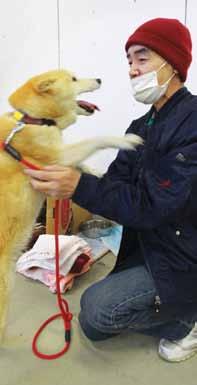
“During a disaster or emergency we can be called upon to do
we’ve been trained,” said Dr. Murphy.
It’s that training that made Dr. Murphy a go-to expert to respond to the disaster in Japan.
Research has shown that up to 30 percent of evacuees attempt to re-enter a disaster zone to rescue pets. It was known that rogue rescue groups in Japan were entering restricted zones without protection, exposing themselves and others to chemical, biological and radioactive contaminants. This was a human health and safety issue as well as an animal welfare issue.
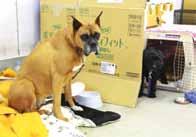
“You can’t see radiation, or smell it or taste it,” said Dr. Murphy. “With people, you can remove 90 percent of external radioactive contamination by removing clothing. You can’t do that with dogs and cats.”
Dr. Murphy co-chairs the National Alliance of State Animal and Agricultural Emergency Programs (NASAAEP) best practices working group responsible for developing guidelines for animal decontamination. Deciding on the team to travel to Japan, Dick
Green, EdD, emergency relief manager-disasters for IFAW, said that radiation expertise was key.
“In most of our responses,” he explained, “we don’t have a vet with us but have access to a veterinarian, back at the receiving end, who can triage an animal.”
He emphasizes the importance of having a planning committee comprised of people with the knowledge and experience on the impact of radiation on humans and animals.
“This is huge from an animal welfare standpoint,” said Green, “and huge as far as the potential impact on all species.”
Dr. Murphy and her team made recommendations for the rescue, decontamination, transport and housing of pets with the goal to keep people and animals together. The initial evaluation and decontamination process would be conducted in the warm zone, the region where animals were exposed to radiation, but at potentially tolerable levels, by teams with proper personal protective equipment. The area would also serve as a sheltering location.
A cutoff of 100,000 counts per minute, a measurement of radiation determined by a Geiger-counter-like instrument, was set for livestock. For pets, the cutoff was 10,000 counts per minute as an added margin of safety. If an animal, after two baths, still registered higher, it was likely internally contaminated by self-grooming or by eating or drinking contaminated food or water. These animals were at risk for systemic damage, and could spread radiation through feces and urine; they were reevaluated on a 10-day cycle.
As a result of the summit, the Japanese government launched an operation to remove abandoned animals from inside the evacuation zone in Fukushima Prefecture. A “Temporary Coming Home Project” was created, allowing residents to return to the evacuation zone to locate their pets for removal by authorized personnel.
danger zone to live with their people in temporary housing.
Dr. Serpell thinks early retirement might be because offering guidance was not something dogs were bred for and is not an innate ability.
“There were two primary potential uses for which dogs seemed to have an innate ability,” said Dr. Serpell. “To defend a territory and to be a predator. In most working dogs, we exploit one or both of these traits. But, in the modern use of guide and service dogs, we are trying to develop dogs with behavior that is suitable for a specialty that isn’t in their original makeup.”
For decades, organizations like The Seeing Eye have been breeding dogs for a specific purpose of helping blind people in their day-to-day routines.
To help organizations like these and to provide dog owners with standardized evaluations of canine temperament and behavior to help predict a dog’s success in filling certain roles, Dr. Serpell and his team at the Center for Interaction of Animals and Society worked to create the Canine Behavioral Assessment and Research Questionnaire – or C-BARQ –currently the only behavioral assessment instrument of its kind to be extensively tested for reliability and validity on large samples of dogs of many breeds.
While many of these guide dog organizations use the C-BARQ regularly, Dr. Serpell wanted to take this work further to help to identify why so many of these dogs retire early.
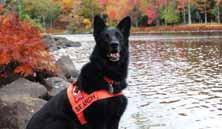
So now, he and his team are working with organizations on an ongoing, three-year study with the aim to identify early-retirement causes. About a year-and-a-half into the work, the study asks end users of dogs to provide feedback through behavior measurement tools – like questionnaires and surveys -- at predetermined time points.
“We are trying to find out about the dog’s life at home, the attention they receive, their lifestyle, how much off-leash time they have,” said Dr. Serpell.
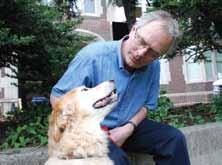
Questions address a handler’s working relationship with their dog, satisfaction with a dog’s behavior while working and while off-duty, and a handler’s non-working relationship with their dog, among others. In addition, the environment exposures of the dog and the handler are taken into consideration.
“Some of these dogs are attacked by other dogs,” said Dr. Serpell. “Some of them don’t have a lot of down time. We hope to offer constructive suggestions [to guide dog organizations] that will help them manipulate a dog’s environment and improve their rate of success and keep up with the need for these dogs.”
In addition to periodic questionnaires and surveys, Dr. Serpell’s team is collecting fur samples, which will be measured for cortisol levels. The higher the cortisol, the higher the likelihood of physical and emotional stress a dog may be feeling.
In all of this work, veterinary expertise is paramount.
The results from Dr. Otto’s first five years of the longitudinal 9/11 study will help to better equip veterinarians who care for dogs that work under similarly unique conditions and are exposed to toxic risks. In addition, it’s the watchful eye of a veterinarian that can speak for the canine workers in times of disaster response. Results from the continuing study may identify factors that contribute to mortality in dogs and humans. One intriguing result is that the search dogs, in general, are living to be 12 on average with many living to be as old as 16. This suggests that the mental and physical fitness and purpose of these dogs actually enhances their well being.
“September 11 was the classic example of when veterinarians need to be on-site,” said Dr. Otto. “At some points, the welfare of the dog was not foremost and they were overloaded. Vets need to know when to intervene. Are the dogs dehydrated? Are the dogs eating enough? What are the potential hazards they’re facing? They’re always grooming – what might they be ingesting that might be toxic?”
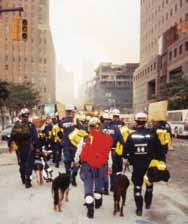
Dr. Serpell agrees that it is up to the profession to advocate for these working canines.
“In military and working dogs, they are doing things they love anyway,” said Dr. Serpell. “Searching for stuff provides its own rewards. For guide dogs, it’s unclear how much they are being rewarded, but it seems as if a lot are perfectly happy. Dogs seem to be hard-wired to do things to please us. It’s innate. We’ve selected for this [in their breeding] and they just want to do anything they can to please us.”
“Dogs were bred to do work,” said Dr. Otto. “They need that mental stimulation. We just need to make sure they can work safely in these kinds of environments.”
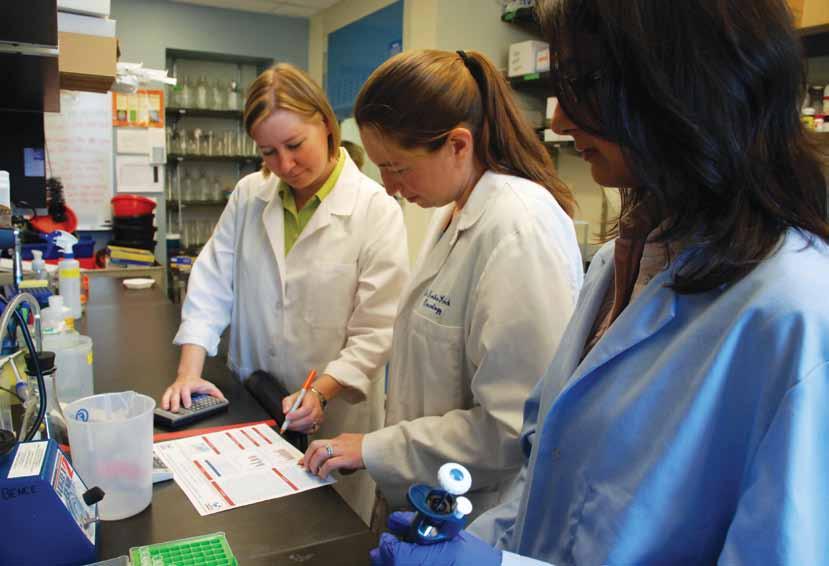
You can’t whistle a symphony, a wise man once said. It takes an entire orchestra to play it. At Penn Vet, the ability to collaborate with others has allowed researchers to create some beautiful music, not to mention elegant science, together with colleagues, researchers from around the world, industry and even students from other academic institutions. Collaboration can yield valuable results, as these examples illustrate.
Kendra K. Bence, PhD and Erika L. Krick, VMD joke that they met “speed dating.” That’s what organizers called the ice-breaking exercise at an annual faculty retreat that threw together staffers with similar interests who otherwise might never talk to one another. That day, Drs. Bence and Krick found themselves at the same table; today, they’re at the same bench. The two are collaborating on a translational study looking at the similarities in cats and humans of cachexia, a metabolic wasting syndrome that occurs in cancer — often GI cancers — and other diseases.
It’s the perfect melding of professional interests. Dr. Bence is an assistant professor in the animal biology department where she studies the cellular mechanism of feeding and obesity in mice that serve as stand-ins for the humans caught in the double epidemic of obesity and diabetes. Dr. Krick is a clinical veterinary oncologist with a special interest
in studying and treating cats with lymphoma and cachexia. They’ve been joined by second-year Penn Vet student Nadia Azam (V’14) who was awarded a Merial scholarship to participate in the research. The Veterinary Clinical Investigation Center (VCIC) is also involved.
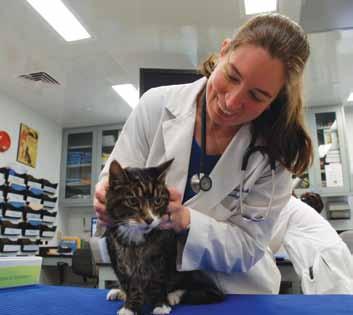
“Surprisingly we found no change in NPY and AGRP with fasting, but we did see the expected suppression of POMC and CART,” said Dr. Bence. “As we go on, we may need to expand the number of neuropeptides we examine. It may have been that the fast we did [overnight] with the cats wasn’t long enough to see changes in orexigenic peptides. Or it may be that cats utilize alternate neuropeptides in their response to feeding and hunger compared to other species.”
Ultimately, the researchers would like to discover a marker that would alert a clinician — like Dr. Krick — that an animal is more likely to develop cachexia.
“Then,” said Dr. Bence, “it’s not out of the question that we could design new treatment strategies for our feline patients that can be translated to humans.”
Sue McDonnell, PhD, head of the Havemeyer Equine Behavior Research Program at Penn Vet’s New Bolton Center, has learned that when you build a better herd, everyone will beat a path to your pasture.
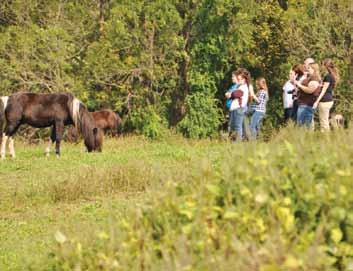
Patients with cachexia — both feline and human — experience a loss of appetite, weight and muscle mass that isn’t remedied by supplements or extra calories. They also respond poorly to cancer treatment.
“Cats who are skinny and not feeling well from their cancer may not tolerate standard chemotherapy doses. Sometimes they are given lower doses of chemotherapy, which could decrease the chance that they will respond,” said Dr. Krick, who is also collaborating with researchers at Texas A&M University on a study of feline lymphoma. “Also, we have found that cats that lose weight during treatment have a significantly shorter survival time than cats that don’t lose weight.”
In fact, she says, as many as 30 percent of people with cancer cachexia die from the condition.
The villain? Likely pro-inflammatory cytokines, elevated in cancer cachexia patients, that speed muscle loss, decrease intestinal motility and gastric emptying leading to early satiety, and alter production of hypothalamic neuropeptides that govern appetite.
The first aim of the study is to discover if cachectic cats with cancer have different inflammatory markers than healthy cats and those with cancer but who aren’t cachectic. The researchers are also looking at the gene expression of appetite controlling peptides in the brain, specifically the orexigenic neuropeptides NPY and AGRP that stimulate eating, and the anorexic neuropeptides POMC and CART that suppress the desire to feed. Preliminary results have been partially unexpected, but intriguing.
The herd, in this case, is made up of 95 semi-feral ponies that roam 35 acres of lush grassland at the New Bolton Center in Kennett Square. Since the herd was started in 1994 (with 13 mares and 13 stallions from domestic stock), it has become a living laboratory, drawing not only equine researchers and clinicians from around the world, but high school students, university undergrads and graduate students, and vet tech and nursing students who might never have an opportunity to observe horses in the wild.
Or, in this case, the semi-wild. Penn Vet’s ponies forage, mate when they want to, get plenty of exercise because they’re never indoors, but, unlike wild horses, are acclimated to humans who provide some minimal veterinary care — and come to watch. (With a housing development abutting one
pasture, they likely also get supplemental treats from young neighbors despite a large “don’t feed the ponies” warning on the fence.)
“It’s not exactly like going to see wild horses. They are contained, but that’s the beauty of it,” said Dr. McDonnell, who has been at Penn Vet since 1981. “We’ve seen them every day since 1994, and because their wandering is limited to the pasture enclosure we can observe the whole herd so we know a lot more about their natural social organization than we would if they were out west where the terrain is so tough and the forage is so sparse that the horses are spread out. There, the best you can do is stay with one family at a time, so you are unable to readily understand the social interactions among families.”
But it’s more than just convenience that lures researchers and students (from places like the University of Delaware, Delaware Valley College of Science and Agriculture, Penn State, Cazenovia College and Penn’s own psychology department) to this classroom on the hoof. It’s also what’s been — and can be — learned there.
“Once you get students attuned to natural horse behavior, they see that most health problems in horses have resulted from how we manage them,” said Dr. McDonnell.
The Penn Vet herd doesn’t experience the same health problems as domestic equines. There’s no colic, no laminitis and no sexual dysfunction, the bane of many breeders who also come to consult with Dr. McDonnell.
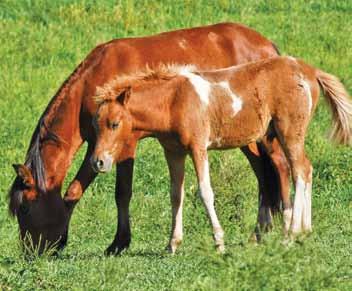
Since the herd has become a lure for students, said Dr. McDonnell, the center has created short courses specifically for them that their own institutions have neither the resources nor faculty to provide. As a bonus, she says, “these courses generate funds that help to support the herd.”
There have been some other unanticipated benefits of what could be called Penn Vet’s open pasture gate policy.
In August 2010, an outbreak of Salmonella Enteritidis (SE) was responsible for illness in almost 2,000 people in at least 25 states. More than 550 million eggs were recalled from the market. While methods have been in place to test for the presence of SE in eggs, the traditional methodology is time consuming, requiring up to 10 days to determine the presence or absence of SE in egg samples. Recognizing that this timeframe wasn’t acceptable, the microbiology laboratory at Penn Vet’s New Bolton Center
chain reaction (PCR) test developed at Penn Vet allows quick determination of the presence or absence of SE in egg samples, and provides accurate results in approximately 27 hours – a tenfold reduction in waiting time for results. This methodology came in handy for the Federal Egg Safety Program, which requires all large-scale producers in the US to test for SE before products reach consumers.
As a result, the Salmonella Enteritidis Detection Kit was developed by Shelley Rankin, PhD, associate professor of microbiology at Penn Vet and chief of NBC’s microbiology, in collaboration with The Life Technologies Corporation, which allows producers to quickly test their eggs for SE. FDA-approved for use in the Federal Egg Safety Program in early 2011, the kit was validated by Dr. Rankin’s lab.
“Penn Vet has been collaborating with the Commonwealth of Pennsylvania to ensure food safety for decades,” said Joan C. Hendricks, VMD, PhD, the Gilbert S. Kahn Dean of Penn Vet. “The adoption of our egg-testing protocols by the FDA illustrates our researchers’ success in their play in ensuring public health and food safety. I am thrilled that Penn Vet is continuing to lead the way in setting the standard in food safety and public health.”
“The FDA equivalence determination for this test marks a milestone for the egg industry in this country,” said Dr. nation to initiate a voluntary egg quality assurance program and the Pennsylvania Animal Diagnostic Laboratory System
It’s very exciting that the FDA has adopted this test for the Federal Egg Safety Program. This action demonstrates their commitment to delivering the safest quality food to the consumer and I’m proud to be a part of that trend.”
Penn Vet has been active in the development and implementation of the state’s PEQAP (Pennsylvania Egg Quality Assurance Program), and much of what has been learned and shared by PEQAP forms the basis for the national Egg Safety Program. Dr. Rankin has more than 20 years experience in the detection and characterization of Salmonella from human and animal sources.
Sally Silverman“We get the opportunity to meet some real star students, some of whom are inspired to study vet medicine and apply to Penn,” said Dr. McDonnell.
And in one case, a student from the University of Delaware launched an ongoing independent study based on a Penn Vet project using recorded stallion vocalizations and stallion scent for estrus detection in mares. It’s allowing Dr. McDonnell and her colleagues to find a solution for a problem that faces small farmers but which can’t be tested in the Penn Vet research and teaching herd.
“Our mares are exposed to stallions on the property, but what if you’re out in the middle of nowhere with no stallions around,” she said. “At the University of Delaware, they had only a few mares at the time and no stallion. This project by one of our student visitors gives us the opportunity to do a real-world test of the problem.”
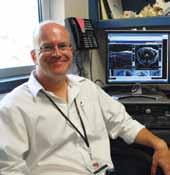
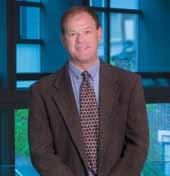
When it comes to epilepsy, dogs and humans have much in common. Their rate of idiopathic epilepsy is about the same. And their treatment options are similar — and equally inadequate.
“The problem for people with epilepsy is they may have a seizure once or twice a year, but they’re on medication all year,” said Charles Vite, DVM, PhD, assistant professor of neurology and neurosurgery in the Department of Clinical
were okay they could say, ‘Great, it’s blue today, I can drive,’ that would be a wonderful thing.”
Through a collaboration involving Penn Vet, NeuroVista, a premier medical technology developer with Penn Vet connections, and researchers at the Mayo Clinic, University of Minnesota and the University of California at Davis, that “wonderful thing” is one step closer to reality. The team is expecting to receive a translational research grant this fall and are awaiting a funding decision.
Dr. Vite, Penn neurologists Kathryn A. Davis, MD, and Brian Litt, MD, along with the VCIC, joined Mayo, University of Minnesota and UC-Davis researchers to test an implantable device in dogs that may predict a “perfect storm” in the brain’s electrical system that signals a seizure — before it even happens. The device was developed by NeuroVista, a Seattle firm specializing in implantable neurological products. Dr. Litt is a scientific advisor to the company; its vice president of clinical research is Penn Vet alum and Medical Scientist Training Program graduate W. Douglas Sheffield, VMD, PhD.
The device includes implantable (subdural) strip monitoring electrodes and a sub-dermal telemetry unit which wirelessly transmits EEG signals to an external personal advisory device (PAD), much like a pager, with colored lights — including the blue one Dr. Vite was talking about — as well as vibrating and audible alarms. The data is collected on ordinary flash memory cards and can be downloaded to a computer for storage and analysis.
The results of the first test, in six dogs with naturally occurring epilepsy, was published this year in the journal Epilepsy Research. Analyzing more than 11,000 continuous hours of iEEG data and clinical observation, the researchers found that canine epilepsy is “a promising model” for human epilepsy for testing implantable devices: When having seizures, dogs and humans share similar patterns in brain activity and observable symptoms.
Though far from market-ready, the device has the potential to exert profound effects on epilepsy research and care.
“If we are able to give people with epilepsy or a dog owner one-to-two hours notice before a seizure occurs, this will represent a massive change in how we treat epilepsy,” said Dr. Vite.
Studies at Penn Vet. “These drugs are not benign. They can have side effects, including cognitive dysfunction, depression and liver failure.”
And for over 30 percent of people — and dogs — the drugs don’t adequately control seizures.
But here’s where dogs and people differ. Epilepsy doesn’t usually dramatically circumscribe a dog’s life. It does for humans.
“People with epilepsy can’t drive, they have a hard time holding down certain jobs and they take a lot of drugs,” said Dr. Vite. “But what if they could predict when they were going to have a seizure, or when a seizure was likely to happen? If they had a box that would flash blue when they
Instead of taking drugs every day, a person with epilepsy may be able to take a fast-acting antiepileptic drug only on days when a seizure warning is sounded.
While the long-range goal of the study is to find better ways to treat human patients, Dr. Vite said, “As I remind everyone, I’m a vet. I’m here to help dogs and cats.” In fact, he says, he has about 600 active epilepsy cases and this month [October] he launched a weekly clinic strictly for epileptic animals.
Fortunately, whatever the research in dogs uncovers to help humans will also help animals.
“It could give us more options to offer when we get calls from owners and breeders asking if there’s anything new for epilepsy,” said Dr. Vite.
On Wednesday, September 14, 2011, Penn Vet celebrated the World Leadership in Animal Health and Student Inspiration Award winners at the Annenberg Center for Performing Arts on Penn’s campus.
This year’s World Vet honoree was Ilaria Capua, DVM, PhD, director of the OIE/FAO and National Reference Laboratory for Avian Influenza and Newcastle Disease at the OIE Collaborating Centre for Diseases at the Human-Animal Interface and of the Research and Development Unit at the Istituto Zooprofilattico Sperimentale delle Venezie, in Legnaro, Italy.
The Student Inspiration honoree was Jonathan Lustgarten, PhD, a third-year Penn Vet student. The awards program has been established with a major gift from the Vernon and Shirley Hill Foundation.
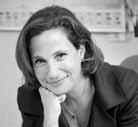
Dr. Capua’s expertise as virologist, epidemiologist and communicator uniquely positions her as a worldwide leader in the field of avian influenza. She has used that position to foster a closer working relationship between the animal and human health professions.
“Working with our public health counterpart is exciting, and is a win-win effort,” said Dr. Capua.
Since 1995, Dr. Capua has been involved with the European Commission through working groups related to viral diseases of animals, and, since 2003, on issues related to influenza pandemic preparedness. In 2005 she was nominated as Chairman of OFFLU, the OIE/FAO (World
Organization for Animal Health/Food and Agriculture Organization of the United Nations) network on animal influenza that offers veterinary expertise and crisis management support to developing countries.
In 2006, she refused to deposit the genetic sequence of the first African strain of H5N1 into a private database to which only 15 laboratories had access, preferring to deposit it into publically available GenBank®, the NIH genetic sequence database. This ignited an international debate on data sharing, which resulted in the launch of the Global Initiative on Sharing All Influenza Data (GASAID), endorsed by 70 medical and veterinary virologists and six Nobel laureates. Dr. Capua’s vision to share avian influenza virus sequences to allow a better understanding of animal and human influenza infections using a transdisciplinary approach has become a core part of the global influenza preparedness strategy.
“The ‘One Flu’ initiative represents a concrete example of how the One Health vision can be implemented, resulting in an acceleration of the generation of knowledge for public and animal health,” explained Dr. Capua. “This initiative is now being taken forward by major organizations such as CDC Atlanta and the European Food Safety Authority (EFSA). It is only a starting point as it can be a model for other emerging diseases.”
Dr. Capua has had extensive experience in the direct
2011 World Vet Award Committee
Dr. Corrie Brown, University of Georgia
Dr. Ron DeHaven, AVMA
Dr. Shimon Harrus, The Hebrew University of Jerusalem
Dr. Alan M. Kelly, Chair of the Committee, Penn Vet
Dr. Derek Knottenbelt, Liverpool University
Dr. Fred Murphy, University of Texas Medical Branch
Dr. Soledad Macarena Vidal Ogueta, Universidad Mayor
Dr. Mo Salman, Colorado State University
Dr. Bernard Vallat, Director General OIE
2011 Student Inspiration Awards Committee
Dr. Carla Chieffo, Penn Vet Class of 1986
Dr. Peter Dodson, Professor of Anatomy
Dr. David Galligan, Director of VMD/ MBA Training Program
Dr. Mark Haskins, Professor of Pathobiology
Dr. James Lok, Professor of Parasitology
Dr. Rich Miselis, Professor of Animal Biology
Dr. Michael Ross, Professor of Surgery
Dr. James Serpell, Director, Center for the Interaction of Animals and Society
Dr. Gary Smith, Chief, Section of Epidemiology and Public Health
Dr. Sheldon Steinberg, Professor Emeritus of Neurology
management of several avian influenza and Newcastle disease epidemics and in 2000 developed the DIVA (Differentiating Infected from Vaccinated Animals) vaccination strategy. This innovate strategy enabled the continuation of trade while combating avian influenza by vaccination. As a result, avian influenza was eradicated from Italy at that time.
Dr. Capua’s contributions to global health are evident in a review of her most recent professional assignments: Senior Policy Advisor to the Director NCZVED, CDC; Member of the Scientific and Technical Advisory Group to World Health Organizations Global Influenza Program; Member of the European Technology Platform for Global Animal Health; and many, many more.
Dr. Capua has authored more than 300 publications since 1990. Most of her research and writings have focused on viral disease of animals and those of zoonotic importance. Dr. Capua has extensive experience in managing projects funded by international organizations and agencies such as the European Commission, FAO and the OIE. She is currently involved in several international efforts bringing together medical and veterinary virologists.
Dr. Capua is director of the OIE/FAO and National Reference Laboratory for Avian Influenza and Newcastle Disease at the OIE Collaborating Centre for Diseases at the Human-Animal Interface and of the Research and Development Unit at the Istituto Zooprofilattico Sperimentale delle Venezie, in Legnaro, Italy. The Institute hosts the National, FAO and OIE Reference Laboratory
for avian influenza and Newcastle disease and the OIE Collaborating Center for Diseases at the Human-Animal Interface.
In 1989, Dr. Capua graduated in veterinary medicine, with honors, from the University of Perugia.
She continued her education at Pisa University, where she obtained her postgraduate qualification as a specialist in Animal Health and Hygiene in 1991. In 2007 she earned her PhD from the University of Padova.
“I am flattered to receive the Penn Vet World Leadership in Animal Health Award, and am particularly proud to be the first woman to receive it,” said Dr. Capua. “To me this recognition confirms that you need to direct your work where your heart tells you to go, and that a spark of common sense blended with a sense of ethical responsibility can change the rules of the game at very high levels.”
“I certainly have a different background from most of my fellow veterinary students in terms of overall interests,” said Jonathan Lustgarten, PhD, member of the Penn Vet Class of 2013 and winner of this year’s Student Inspiration Award.
The New Jersey native has known since he was five years old that he wanted to be a veterinarian.
“In college I developed an interest in computational biology, which tries to model life on a computer,” said Dr. Lustgarten. “I knew that once I finished veterinary school I would want to get right to work, applying the knowledge I gained there, so I chose to pursue my other academic interests first.”
Dr. Lustgarten earned a bachelor of science degree from Carnegie Mellon University in computational biology with a minor in chemistry. He earned both his master of bioinformatics and PhD in biomedical informatics from the University of Pittsburgh School of Medicine.
His academic interests, based in advanced technological modeling and analysis, may seem a long way from examining room or stall-side care, but it is Dr. Lustgarten’s dreams of a unique veterinary application that will connect his interest in technology with the education from Penn Vet.
Dr. Lustgarten’s Student Inspiration Award-winning proposal outlines his vision to develop a state-of-the-art, easily deployable veterinary health record system that will assist vets and staff in the care of animals during disaster
continued on page 47

Spring and summer at Penn Vet. Photos, across both pages and clockwise from top left: Class of 2011 Commencement, which featured Judge Judith Sheindlin as keynote speaker; the Annual Faculty Research Retreat at New Bolton Center, at which Dr. Kendra Bence earned the Pfizer Award for Veterinary Research Excellence; First Tuesday Lecture Series, a series of free lectures hosted at New Bolton Center on the first Tuesday of each month. Here, William Gilsenan,VMD talks with an attendee after his lecture; Wednesday Exchange, an event providing continuing education to primary care vets with lectures from Penn Vet faculty; students from the annual Azabu exchange program, whereby veterinary students from Japan shadow clinics to learn about veterinary medicine in the US.

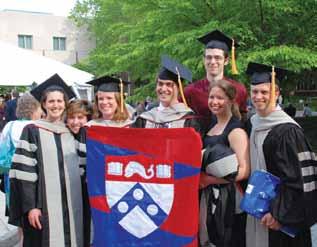
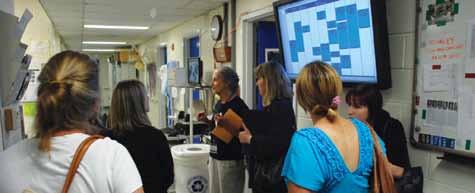

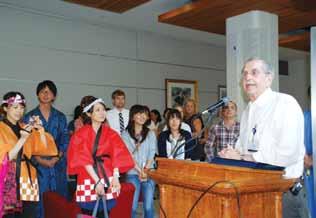
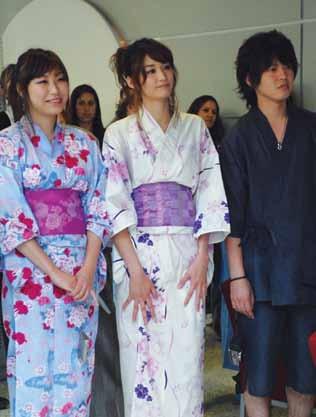

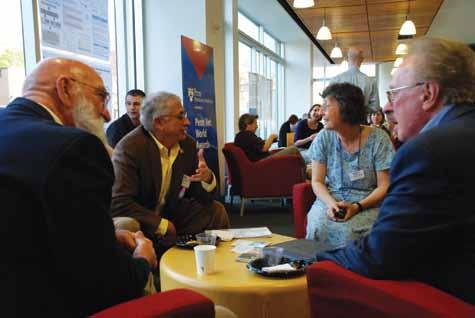
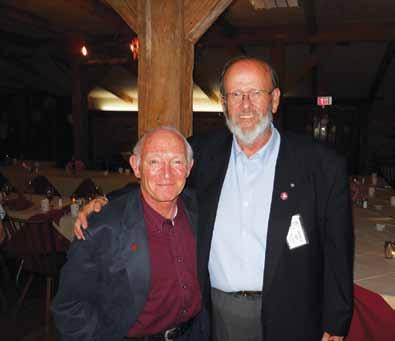
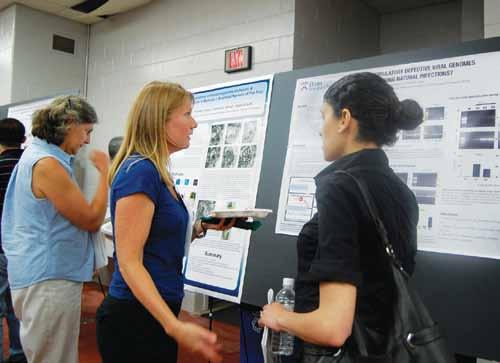
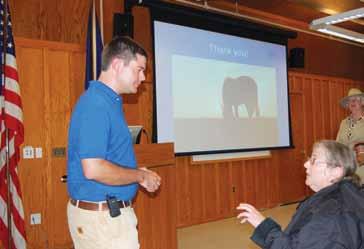
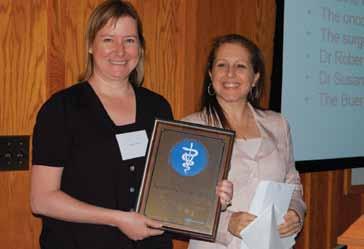

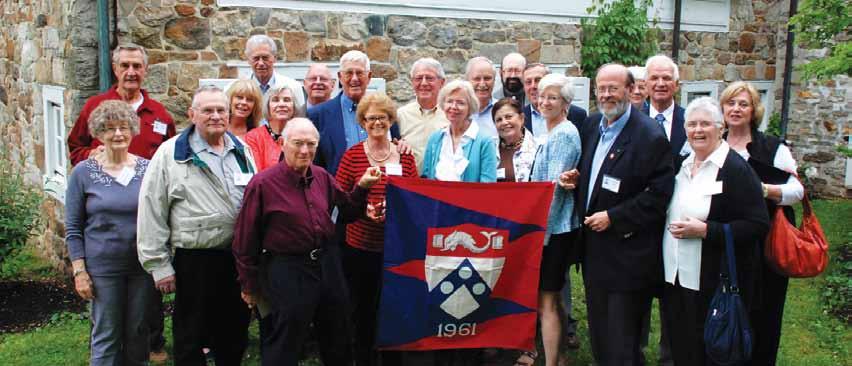
Summer as a Penn Vet student does not mean long, lazy days sitting poolside or vacationing with families. Instead, several students take these nearly three months to continue their classroom and clinical education with real-life experiences in the field. Here we highlight a few students’ summer stories spent traveling the world and nation …
de-worming medications. For research purposes, we were able to obtain fecal samples from the shelter animals to determine their parasite load and were surprised to learn that it’s not much different than that of our own shelter animals!
We visited the Sunderbans Tiger Reserve, the largest coastal mangrove forest with the highest population density of tigers in India, where we had the once-in-a-lifetime opportunity to see a wild Royal Bengal tiger, the national animal of India, being released back to the forest after it snuck into a local village.
The village we stayed at, Pakhiralaya, was hospitable and friendly. We were warmly welcomed into people’s homes, where we were invited to dinner and to hold their babies. The natives there told us that after cyclone Aila hit in 2009, their cow population was reduced to one-tenth of what they’d previously had, and the soil composition changes have severely decreased the available vegetation for these animals.
Penn Vet V’13 students Audrey Barker, Kathryn Dalton, Shannon Kerrigan and Jamie Rettig spent part of their vacation in India, where they traveled to observe some of the veterinary issues there and help the locals provide basic wellness care to shelter animals.
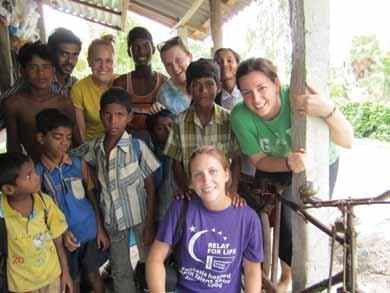
This summer we had the opportunity to visit and explore the veterinary needs of Kolkata, India and to work with a human medical non-governmental organization (NGO) founded by a Penn medical student that is running clinics in the impoverished slums. In addition, we worked with the NGO to help them with their childhood educational program aimed at health awareness.
We also had the chance to run our own clinic at a local animal shelter that housed both dogs and cats, where we provided physical exams, rabies vaccinations and administered
All four of us were so moved by the plight of these kind people, that we decided to establish an NGO based in the Sunderbans, which would bring veterinary care, animal husbandry education, human health clinics and childhood education to these deserving people. For more information about this initiative, or if you would like to be a part of this exciting project, please visit www.meresaathi.org
Penn Vet V’13 student Ben Golas spent his summer as part of the Botswana-UPenn Partnership, a program that aims to use an interdisciplinary approach to train health-care personnel in Botswana in prevention and treatment of HIV/AIDS with an end-goal of developing post-graduate training programs at the University of Botswana and offer global health experience to Penn trainees while developing joint research programs that address issues relevant to the
health and welfare of the citizens of Botswana. There, Ben shadowed both small- and large-animal veterinarians and also spent time doing wildlife work.

The Kalahari at first glance is little more than flat grassy veldt far as the eye can see. However, this ecosystem, comprising the majority of Botswana, is anything but empty. Before beginning my third year at Penn Vet, I spent my
summer working with Dr. Mark Bing, a private practice owner in Botswana. I came here to study the interactions between man, agriculture and environment in Africa’s oldest democracy.
There is no summing up the huge experience of three months in so few words. When we were not treating tick fevers and baboon bites on dogs at the small animal clinic, we were rushing across the country performing pregnancy diagnoses on various cattle ranches. We also worked with feedlots and the Botswana Meat Commission to prepare the country to export beef to the European Union, all in the midst of a spreading foot and mouth disease outbreak.
The highlight of the experience was our wildlife work. Few countries are so inextricably linked with their natural ecology; we have seen kudu, giraffe and cheetah just driving through farms. Some landowners purposefully keep wild animals on the farm to shape the flora, thereby retaining the natural Kalahari environment and minimizing effects of cattle grazing. We collared a leopard and lioness to study predator interactions with people and livestock, a key component of research towards conservational movements.
Integrating efforts of scientists, farmers, and veterinarians: this is how we preserve our future. Please visit bengolas.wordpress. com to read more about my adventures and insights.
Brittany Gross, a third-year Penn Vet student, received a 2010 Penn Vet Student Inspiration Award to develop a Dairy Education Center (DEC) in Thailand. This summer, Brittany returned to the country, and met up with key collaborators from the US and Thailand to begin preliminary research necessary to begin her work toward fulfilling this endeavor. For more information on the DEC and the progress Brittany is making, visit www.dairyeducationcenter.org/
This June I returned to Thailand to resume in-country work on the Dairy Education Center (DEC) project. Eventually, I will work toward the construction of a dairy farm teaching facility, but the priority for this summer’s trip was to research and analyze dairy management and farming practices specific to Northeast Thailand (a region referred to as “Isaan”).
I am working with veterinary students and professors from Penn Vet, Minnesota’s Veterinary School, Khon Kaen Veterinary School (in Thailand) and the University of Vermont to collaborate on this project.
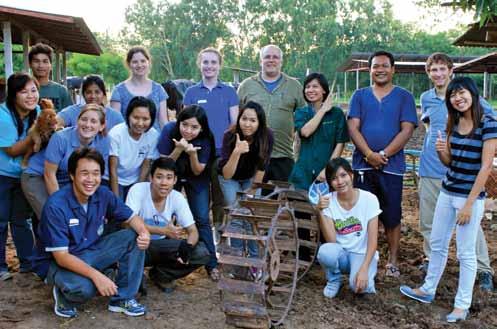
This summer we were welcomed onto the farms of 20 dairies, all of which are family-owned and average 15 to 35 lactating cows. We spent the afternoons getting to know the
continued on page 19
For the third consecutive year, the Penn Vet admissions team hosted its week-long Summer Veterinary Exploration Through Science (VETS) nonresidential day program, during which potential future veterinarians spend their days learning about what it takes to be a vet student.
This year, the admissions team received 162 applications to fill a total of 90 slots; 54 were college/post-baccalaureate students, while the remaining 36 were comprised of high-school-aged students. A total of five one-week sessions were held, during which participants joined faculty, staff and current students on clinical rotations, attended lectures and visited both Penn Vet campuses.
“The main goal of this program has been to give these participants a meaningful, yet realistic, experience in veterinary medicine both academically and clinically,” said Rob DiMeo, recruiter/counselor, Penn Vet Admissions.
Added Rosanne Herpen, associate director, Penn Vet Admissions, “The VETS program allows students the opportunity to determine if a career in veterinary medicine is something that they wish to pursue.”
The following is an essay written by VETS participant Katelyn Laury, a senior biology major at Washington College in Chestertown, Maryland.
for the ride, catching tidbits of information here and there. During my time on the surgical and oncology rounds, I found that I could not have been more wrong. On both rotations, all faculty members actively included me in the cases.
Patient histories were shared, as were descriptions of the animals’ ailments and medications. Staff members also encouraged questions, which allowed me to better understand how complex treatments such as chemotherapy and radiation work and when it is best to use them.
In addition to the clinical rotations, the labs offered were also informative and interactive. During the anatomy and pathology labs, for example, I handled different organs and portions of skeletal systems from animals of varying species. These up-close experiences made it easy to envision the internal aspects of differing medical conditions, such as navicular disease, cancer and ovarian cysts.
Aside from the medical knowledge I gained during the VETS program, I also learned how to stay positive during the admissions process, and most importantly, I realized that I could not imagine having a job other than being a veterinarian.
Although many people are unsure of this answer until right before college graduation, a student looking into veterinary medicine must put a great deal of thought and preparation into their future career.
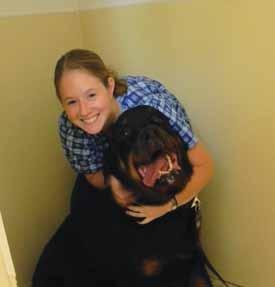
As a senior at Washington College, the vet school application process is now upon me, and although I have spent countless hours aiding creatures in the veterinary clinic, vivarium, the Lehigh Valley Zoo and animal shelter at which I work, I still felt that I could use additional animal experience before plunging into veterinary school. After hearing about the Summer Veterinary Exploration Through Science (VETS) program at Penn Vet, I knew there would be no better way for me to receive additional knowledge than through the renowned faculty at the University of Pennsylvania’s School of Veterinary Medicine.
Now that I’ve completed the week-long camp and have had time to reflect on my experience at Penn Vet, I can honestly say that the VETS program not only met my original expectations, but exceeded them.
When I originally envisioned going on rotations with fourth-year vet students, I imagined I would simply be along
When current Penn Vet students were asked what they thought the most difficult part of getting into vet school was, the unanimous answer was that you have to believe you can be accepted. Indeed, with only 28 vet schools in the country, the competition to get into one is quite high, and that is one of the first things people point out when you tell them that you want to be a vet. By hearing how these students overcame this obstacle, it helped me have faith that if I spend enough time with my books and a variety of animals, that my dream is, in fact, attainable.
No matter how difficult the academics may be, after seeing the happiness on the faces of animals fighting for their lives and the enthusiasm each of the doctors had to help these courageous pets, I was reminded of my own passion for animals. I cannot envision a more rewarding career than becoming a veterinarian and I have the VETS program to thank for that reminder as I pave my own path to vet school.
Katelyn Laury is a senior at Washington College in Chestertown, Maryland. With plans to earn her bachelor’s degree in biology in spring 2012, Katelyn hopes to continue her education and will be undergoing the vet school admissions process throughout the 2011-12 school year.
“What do you want to be when you grow up?”
continued from page 17
families and workers, watching milking procedures and then meeting to discuss farm protocols on reproduction, nutrition, production, milk handling/sanitation and veterinary care.
Visiting the farms, but more importantly speaking with the farmers, has helped us better understand the intricacies of dairy farming in Isaan, where the DEC will be constructed. The majority of the families began dairy farming less than 10 years ago and most of their training consisted of a two-week dairy management course provided by the government. Our goal for
My summer began with an externship at the Vermont Large Animal Clinic, an equine hospital serving a vast area of northern Vermont and New York, providing ambulatory services as well as in-house surgery. The average day could range from lameness exams at a nearby barn, to routine vaccinations at a small hobby farm in the Adirondacks. It was rewarding to see cases in such picturesque settings.
Next I traveled home to New York for an externship at the County Animal Hospital, a small animal hospital, where I worked as a teenager. Here I joined Dr. Robert Weiner (V’80) and Dr. Susan Rothstein with their primary caseload of dogs, cats and the occasional bird. I saw many of the usual wellness patients, but there were a few out-of-the-ordinary cases including the diagnosis of a thymoma in my 7-year-old rabbit, Chester.
the DEC teaching facility is to merge existing methods of Thai farming with efficient dairy practices, adopted from countries that have been dairy farming for centuries. The result will be a teaching facility that will model profitable dairy farming methods that are implementable on the family farms in Isaan.
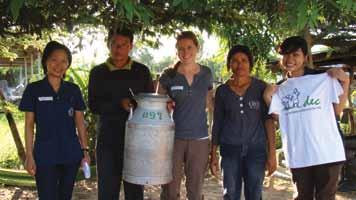
Adam Seth Yoskowitz is a third-year Penn Vet student who spent his summer exploring an array of paths open to him in veterinary medicine. Beginning in Vermont, Adam made his way down the east coast, stopping in New York and ending his summer stints in New Jersey.

For the past two years I have searched for an “aha” moment, when I would be sure of what path to take in veterinary medicine. I wanted to use this summer, between my second and third years at Penn Vet, to gain as much and as varied experiences as possible, with the hopes of finding that very moment.

The last stop for my summer adventure was at the New Jersey Equine Clinic with Dr. Scott Palmer (V’76), and Dr. Jennifer Smith. This practice is an equine referral hospital catering primarily to racehorses. Throughout my stay, I was lucky enough to see some very interesting cases such as severe corneal ulcers and several locked stifles. Each of these summer experiences has given me a firsthand look at paths I could take in my career, but, now that they are over, I realize the more I see, the more I just want to do everything! It seems that the hunt for my elusive “aha” moment continues…
—ADAM SETH YOSKOWITZ
For the second summer in a row, a group of Penn Vet students traveled to Thailand where they participated in a community outreach project sponsored by Government Housing Bank (GHB) that offered spays, neuters and vaccination services to underserved cats and dogs. During their stay, the 16 students performed approximately 105 spays and neuters and vaccinated about 285 animals.
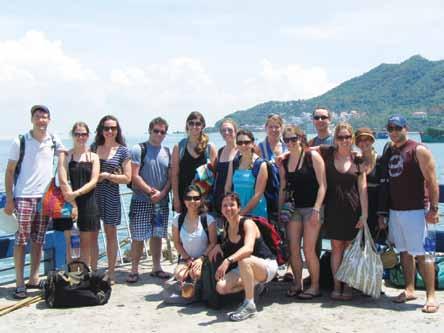
Here, Christine Caro, a third-year student and vice president of the International Veterinary Student Association (IVSA), which works to plan the trip, shares her experience.
The morning was hot (though not as hot as expected) and humid. Sweat already beginning to wet our scrubs, we began to set up at the temple in Ayutthaya, Thailand for our fifth day of surgery. Unlike other surgery days in Chieng Mai and Kanchanaburi, Thailand, where all animals were owned, the patients we would treat that day were all strays, cared for by the temple’s resident monks. Animals roamed the grounds freely, many of them scarred and hairless, nearly all emaciated.
By now we had our set-up routine down. Mobile clinic supplies were unpacked, IV fluid bags were hung and prep and surgery tables were set.
The Thai clinic we partnered with, Vet4 Polyclinic, had a mobile clinic/surgery suite so we were able to have three surgery tables of inhalant anesthetic. They also had at least two of their own vets present each day – Dr. Chaiyaporn Phonsuwan, or “Dr. Nao” as our group called him, was always there to assist with surgeries, and there was always an associate vet in charge of drawing up all pre-med and post-op drugs.
We also had the guidance of Dr. Molly Northrop, a Penn Vet grad and an emergency vet at Mount Laurel Animal Hospital, who provided invaluable teaching and skills, as well as peace of mind whenever we got flustered.
Because the monks have a working knowledge of all of their resident animals, they pre-determined which animals they wanted us to treat. These animals were scattered throughout our surgery area, tied to poles or trying to escape their cages.
Each student group had a designated surgeon, assistant and anesthetist. Our group consisted of primarily rising third-year students with a handful of rising second years. In these roles, third-year students talked through their surgeries, playing a dual role of surgeon and teacher to the secondyear students.
Teaching the other students increased my confidence and reinforced everything I’d learned both in class and on my previous surgery trip to Thailand.
In addition to honing my surgical skills, this trip taught me about my fellow classmates and working as a group under less-than-ideal situations, about understanding a completely different culture and religion, and about providing the best possible medicine within the provided means.
And, as I eagerly anticipate starting clinics next spring, I can’t help but feel a little jealous of the students that will be traveling to Thailand next summer.
We are thankful to those that have made the ultimate commitment to Penn Vet as members of the Veterinary Heritage Circle of the Harrison Society, a program that allows friends and supporters to include Penn Vet in their estate plans. It is, of course, through the generosity of alumni, supporters and friends that the University of Pennsylvania School of Veterinary Medicine is able to meet our mission of teaching, healing and research while leading the field in new treatment advances, ground-breaking research discoveries and educating the brightest young minds in the profession.
Veterinary Heritage Circle Members have made a commitment to helping Penn Vet reach our mission by including us in their estate plans through bequests, trusts, charitable gift annuities, retirement plans, life insurance and other arrangements. In doing so they have created a legacy that will have a lasting impact on the future of veterinary medicine.
To join the Veterinary Heritage Circle, or to learn more about the benefits of membership, please contact us at: University of Pennsylvania School of Veterinary Medicine
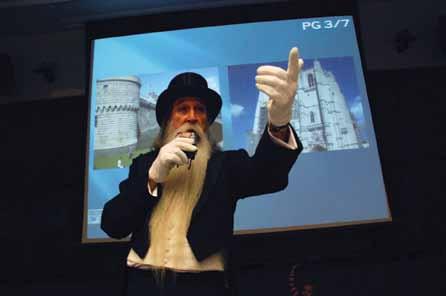

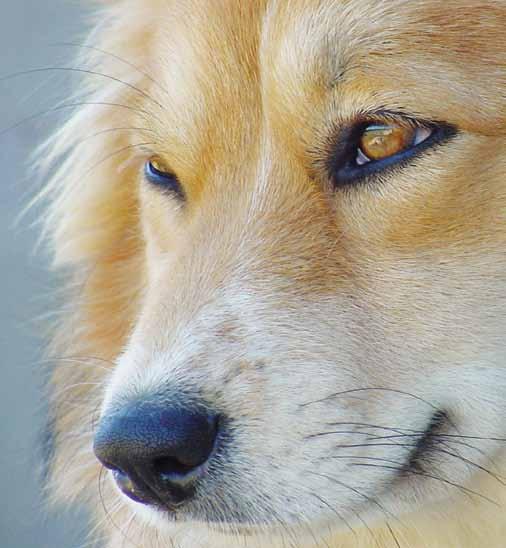
Office of Gift Planning
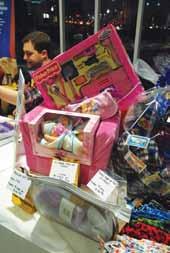
215.898.6171 or 800.223.8236
giftplanning@dev.upenn.edu www.makinghistory.upenn.edu/giftplanning
50.4%
19
TOTAL PERCENT OF UNDERGRAD BIOLOGY MAJORS
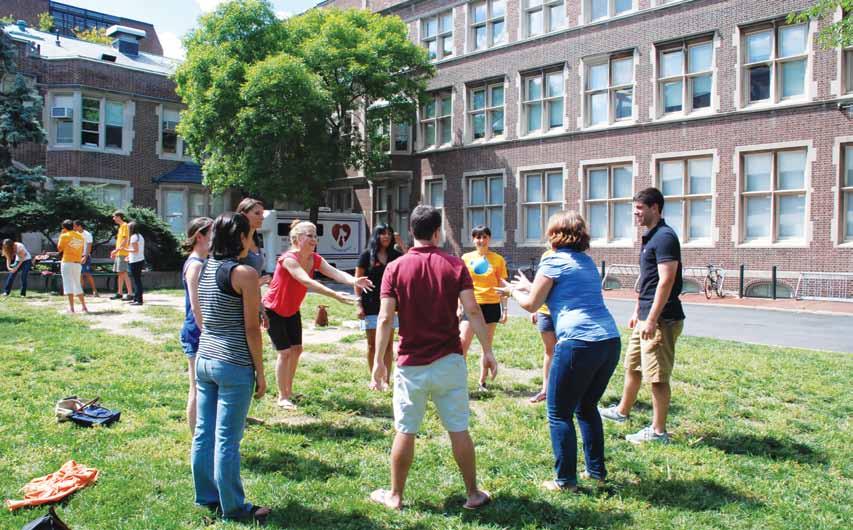

TOTAL NUMBER OF STATES REPRESENTED
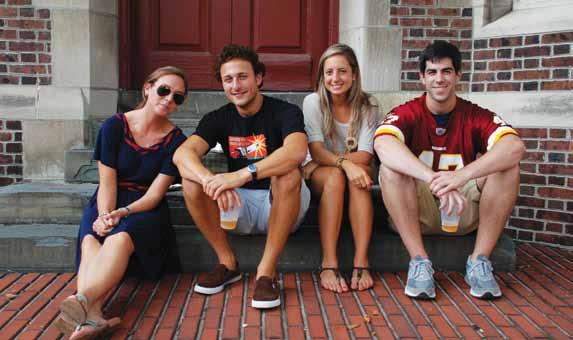
TOTAL NUMBER OF PENNSYLVANIA RESIDENTS
AVERAGE GPA
3.58
23.9
AVERAGE AGE OF INCOMING STUDENTS
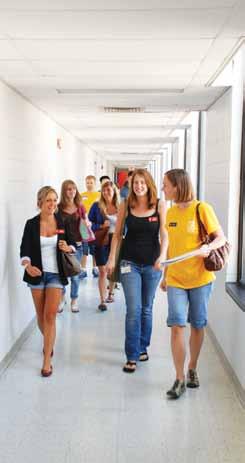

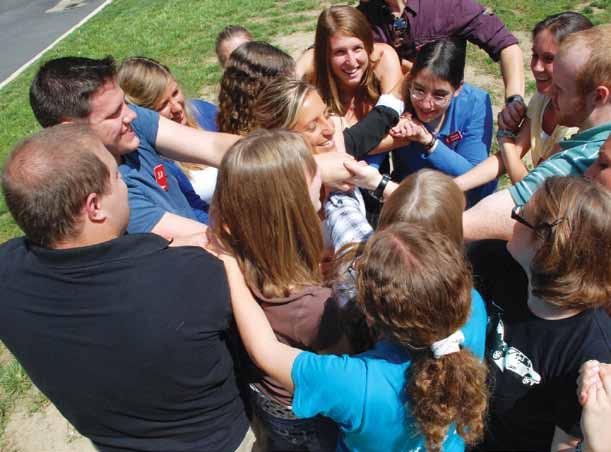

With approximately 15 months left in Penn Vet’s capital campaign, it is wonderful to let you know that we are $118 million towards our $125 million goal. Funds raised to date through the consistent, generous support of our loyal donors strengthen Penn Vet’s position as a preeminent teaching, research and service institution. It could not be done without your matchless goodwill.
This campaign is critical to our ability to produce the very brightest and best of new veterinarians, to uncover knowledge and understanding of conditions and diseases that afflict both our beloved animals as well as humans, and to develop the most innovative and effective treatments for the animals entrusted to our care. Twenty-first century veterinary medicine is practiced on a par with human medicine and demands the kind of infrastructure and equipment consistent with modern technology and scientific advances.
A significant example of progress on our campuses is the planned Equine Performance Evaluation Facility, for which ground is anticipated to be broken in March, 2012. The trend in equestrian sport is towards disciplines like dressage, show-jumping and three-day eventing. Care of the equine athlete demands specialized facilities in which to evaluate performance, diagnose subtle lamenesses and detect musculoskeletal problems using sophisticated equipment in conjunction with our clinicians’ highly developed observational powers. For New Bolton Center
an indoor arena represents a “great leap forward” in terms of our ability to conduct lameness examinations, performance diagnostics and other critical tests in a safe, comfortable environment conducive to accurate and reliable assessments of a horse’s mobility.
The much-anticipated facility will provide superior footing, optimal lighting and a dedicated space protected from the elements. It will be a boon to clinicians, clients, students and of course, our patients.
The School has had the dedicated support of a number of key individuals who have not only made significant gifts towards the cost of the indoor arena, but have also worked with dedication and passion to bring others to the cause. It has been a remarkable example of cooperation and effort that gives true ownership of the facility to those who have joined together to make it a reality. We look forward to a wonderful celebration at the EPEF’s dedication next year!

The Ryan Hospital is equally proud to announce the opening of its Minimally Invasive Surgery Suite (OR1), which makes available to our companion animals the very best of 21st century surgical techniques. Dr. Lillian Aronson, chief of surgery at Ryan Hospital, observes that this facility “offers our clients cutting-edge technology and procedures available until now only to human patients.”
Minimally invasive surgery contributes to decreased recovery time, reduced pain levels and minimized risk of infection. It is the surgery of the future, available now. And it provides an exceptional learning experience for Penn Vet students to develop highly specialized surgical skills not offered in other veterinary training hospitals. For example, they will be able to assist in minimally invasive spays of shelter dogs, an invaluable service to both the community and the shelter animals whose adoptability depends on having had this procedure.
The advent of these two specialized spaces at New Bolton Center and the Ryan Hospital speak volumes about the momentum of our Making History Capital Campaign. They epitomize the great loyalty, generosity and kindness generated in all of you by the work done at Penn Vet. Thank you for partnering with us to reach our $125 million goal. You make it happen.
Your contributions play a critical role in our ability to serve the citizens and animals living in Pennsylvania and beyond. I thank you all for your support, and I hope we can count on your continued investment in the University of Pennsylvania School of Veterinary Medicine for years to come.
Mrs. Mindy H. Heyer, Chair
Mrs. Catherine G. Adler
Steven W. Atwood,VMD, MD
Mrs. Patricia L. Billhardt
Mrs. Krista L. Buerger
Carla Chieffo,VMD
Ms. Christine C. Connelly
Ms. Beverly Ensor
Mr. Jay S. Fishman
Mr. Walter F. Goodman, Emeritus
Mr.Vernon W. Hill, II
Mrs. Gretchen Jackson
The Honorable Patricia Jenkins
Laurie J. Landeau,VMD
Mr. Robert P. Levy, Emeritus
Mr. Ronald H. Menaker
Mrs. Gail Riepe
Mr. Jerry Rosenthal
Mrs. Robin Rubenstein
Mr. John P. Shoemaker
Mr. Adam G. Silfen
Robert W. Stewart,VMD
Mr. Judson Streicher, Emeritus (deceased)
Ms. Lynne Lichtenstein Tarnopol
Ms. Eve Lloyd Thompson
Dr. Eli N. Avila, Ex-Officio
The Honorable Michael W. Brubaker, Ex-Officio
The Honorable Michael Carroll, Ex-Officio
Mr. George Greig, Ex-Officio
Mr. Michael Hanna, Ex-Officio
Mr. Christian Herr, Ex-Officio
Ms. Betsy Huber, Ex-Officio
Dr. Everette James, Ex-Officio
The Honorable John A. Maher, Ex-Officio
Thomas W. Munkittrick, DVM, Ex-Officio
The Honorable Michael O’Pake, Ex-Officio
The Honorable Joseph A. Petrarca, Ex-Officio
Mr. Ken Raney, Ex-Officio
Mr. Russell Redding, Ex-Officio
Mr. Louis R. Sallie, Ex-Officio
The Honorable Judith L. Schwank, Ex-Officio
The Honorable Elder A.Vogel, Jr., Ex-Officio
Mr. John Vogel, Ex-Officio
Mr. Roy W. Wilt, Ex-Officio
INVESTING IN CARE & RESEARCH
$3,175,946
Physical space and state-of-the-art technology is a vital priority of any research institution. Top-tier hospitals equipped with the latest in technology enable students to receive a firstclass education, while also providing patient care that is unparalleled.
Allerton Foundation, Inc.
Ms. Jean Bartsch
Mrs. Kathy Biedenbach
Mr. Steve Biedenbach
Darryl N. Biery, DVM **
Mrs. Martha J. Biery
Brandywine Valley Driving Club
Ms. Nancy Brougher
The W. Dale Brougher Foundation
Ms. Jeri L. Callaghan
Ross T. Chambers
Mr. & Mrs. Michael Clothier
Estate of Dorothy P. Cole
Mrs. Beverly Conti *
Pierre A. Conti, VMD *
Ms. Mary Copelin
Ms. Krissi M. Davis
Dr. Steven D. Douglas
Ms. Margaret Hamilton Duprey *
The late Viola Ellison
Mrs. Beverly Ensor *
Equine Medical & Surgical Associates
The late William Evans, Jr.
Evening In Old Saratoga, Inc.
Ms. Geraldine M. Flatley
Dr. Mary Ann Forciea
The Gardner Foundation, Inc.
Ms. Laura A. Geneve
Mrs. Frances M. Giuliani
Raymond W. Giuliani, VMD
Mark M. Glickman, Esquire
The late Suzanne Grose
Hamilton Family Foundation *
Elaine P. Hammel, VMD **
The late Florence Hanford
Larry and Anna B. Harris Foundation
Ms. Kathy Hill
Ms. Andrea R. Hilliard
Mrs. Carol G. Huff
Mr. Lawrence A. Huff
Mrs. Gretchen S. Jackson *
Mr. M. Roy Jackson, Jr. *
Mrs. Maria Kern
The Margaret & David
The late John I. Leonard
Longenecker’s Hatchery, Inc.
Alan D. Longman, Esquire
Ms. Linda Mahan
Ms. Jacqueline B. Mars
Jacqueline Badger Mars 2009
Charitable Lead Trust
Leigh A. Marsh, VMD *
Mr. Brian Mitchell
Mrs. Elizabeth R. Moran *
Susan D. Morgan, VMD
Dr. Sierra A. Moulton
Ms. Pamela E. Mross
Estate of Anna Oschwald *
Penn AG Industries Association
Mr. Robert W. Peters
Ms. Andrea K. Rainey
Ms. Jennifer Rakhmanine
Mr. Mikhail Rakhmanine
The late Neal C. Ralston
Mr. Francis H. Rasmus, Jr.
Joan Regan, VMD *
Frank K. Reilly, DVM
Mr. Augustine S. Rhodes
Mrs. Cynthia K. Rhodes
Ms. Paula C. Rhodes
Augustine Rhodes Living Trust
Estate of A. E. Rine
Mr. D. L. Robertson
Mrs. Gloria Zurkow Rubin
The late Mary Ann Samuel
Ms. Christa B. Schmidt
The late Edna Scott
Mr. Alexander Sharpe III
Mrs. Susan C. Sharpe
Mr. Adam G. Silfen
David and Lyn Silfen Foundation
Ms. Regina L. Smith
Ms. Lise J. Spiegel Wilks
Ms. Sandra Switzer
Thoroughbred Charities of America
Wenger’s Feed Mill, Inc.
The late Peter W. Wetherill
Mr. & Mrs. Lawrence E. Wicks
Mr. Jeffrey Wilks
Estate of Mabel T. Zieger
Anonymous Anonymous
$3,176,262
Penn Vet consistently strives to expand research dollars because it allows faculty and staff to find new methods of treating devastating diseases and illnesses which afflict both animals and humans. Additional resources will enable Penn Vet to play a leading role in introducing novel strategies and treatments, such as stem cell therapies, in animals long before they can be applied to humans.
Mrs. Catherine George Adler
Mr. Frederick R. Adler
Ms. Peggie L. Aldrete
Alpaca Research Foundation
American Association for Laboratory Animal Science
American Bouvier Des Flandres Club
American College of Lab Animal Medicine
American College of Veterinary Dermatology
American College of Veterinary Surgeons
American Kennel Club Canine Health Foundation
American Kennel Club, Inc.
American Research &
Management Co.
Dr. Christopher Anastasiou
Mr. & Mrs. James L. Anderson
Ms. Elizabeth D. Armstrong
Ms. Stacey Bailey
Bailywick Briards, Ltd.
Marilyn F. Balmer, VMD *
Bernice Barbour Foundation, Inc. Beech Fund
Ms. Jacqueline Binstead
Malcolm Borthwick, Jr., VMD
Mrs. Mary M. Borthwick
Mrs. E. C. Boston
Dr. Raymond C. Boston
Mrs. Marlene Brody
Mr. Alex Brown
Richard T. Brown, VMD *
Tara D. Butler, MD
William B. Butz Memorial Fund, Inc.
Canine Cancer Research USA
Ms. K. Carol Carlson *
Ms. Louise Cassino
Mr. Richard Cassino
Centre Equine Practice
Mrs. Penny Chenery
Ms. Lolly Clarke
Mr. Anthony C. Corcoran
Peter H. Craig, VMD
Crohn’s & Colitis Foundation of America, Inc.
Betsy L. Dayrell-Hart, VMD *
Delaware County Kennel Club
Mrs. Cheryl Dexter
Mr. James B. Dexter
Ms. Margaret Hamilton Duprey *
Ms. Elizabeth M. Durkin
Eastern Ontario SCWT Club
Elanco Animal Health
The late William Entenmann III
Mr. David Epstein
Mrs. Libby Epstein
Richard H. Epstein, MD
Mrs. Sandra Price Epstein
Ms. Susan Feeney
Dr. C. Richard Filson
Ms. Kimberly D. Fish
Mr. Ethan C. Flint
Found Animals Foundation, Inc.
The Foundation Fighting Blindness
Stuart A. Fox, VMD
Ms. Kindy French *
Dr. Emily Friedman
Friedman-Townsend Family Foundation
Ms. Maria T. Galeno
Ms. Irene Gaynor
Ms. Melissa S. Goldberg
Ms. Audrey I. Goldstein
Stanley & Audrey Goldstein Fund
Ms. Lauren E. Gordon
Estate of William F. Gottfried
Grayson-Jockey Club Research Foundation, Inc.
Mr. John C. Halloran
Mrs. Susan Halloran
Hamilton Family Foundation *
Hannibal and Nina Cancer Foundation
William D. Hardy, Jr., VMD
Mr. Clyde W. Hart
Ms. Alison J. Hartley
Dorothy Russell Havemeyer Foundation
Hedy Hekler
Hekler Family Donor Advised Fund
Dr. Paula S. Henthorn **
Mrs. Cindy L. Hespe
Mr. David C. Hespe
Gail W. Heyer, VMD
Mr. John W. Heyer
Mr. Milton P. Higgins, III
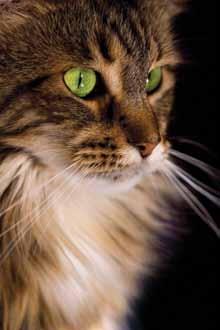
Mr. Robert W. Huffman
Huntingdon Valley Kennel Club
International Food Policy Research Institute
Iron Spring Farm
Mrs. Gretchen S. Jackson *
Mr. M. Roy Jackson, Jr. *
Ms. Annie Jacobs
The James Foundation, Inc. *
Jane Heart, LLC
Mr. Steve Katz
Frederick Klein Trust *
Dr. & Mrs. Robert Knapp
Ms. Marsha A. Knicley
Mrs. Miryam Knutson
Mr. Robert B. Knutson
Mr. Dale Kuhn
Mrs. Linda Kuhn
“It’s easy to see why I trust PennVet so much - being mom to cats with such serious, lifethreatening medical conditions, only the best specialists are qualified to treat them. The extra years of life that Penn has provided my babies is priceless and for that, I’ll always be so grateful.”
— Sue Gabriel, Ryan Hospital client
Laurie J. Landeau, VMD *
Laurel Highlands Kennel Assocation
The Leukemia & Lymphoma Society, Inc.
Levy Hermanos Foundation, Inc.
Leon Lowenstein Foundation, Inc.
Lupus Foundation of America, Inc.
Dr. Jane A. Madden
Madison Trust *
Mrs. Mary Alice D. Malone *
Ms. Miranda Markart
Ms. Peggy Matzie
Dr. Robert Joseph Maze *
E. Scott McAllister, VMD
John D. McCullough, VMD
Ms. Colleen Mejia
Mrs. Anne F. Mickelson
Mr. David M. Mickelson
Modern Eye at Chriseyes, Inc.
Mr. and Mrs. Thomas Mooney
Mr. Robert C. A. Moore III
Morris Animal Foundation
Muscular Dystrophy Association
National Veterinary Laboratory, Inc.
Craig H. Neilsen Foundation
Ms. Alice E. Nordwall
Mrs. Bonnie S. O’Neil
Mr. John E. O’Neil
Paul G. Orsini, DVM **
Osteosynthesis & Trauma Care Foundation
Ara Parseghian Medical Research
PA Thoroughbred Horsemens Association
Pennsylvania Harness
Horsemen’s Association
Pennsylvania Horsemen’s Benevolent and Protective Association
Walter L. Pepperman II, Esquire
Pine Tree Trust *
Mr. Richard G. Placey *
Portuguese Water Dog Foundation, Inc.
Potomac Valley Bernese Mountain Dog Club
Miss Susan J. Puleo
Dr. Linda Gerber Quest
Ms. Kate Quigley
Kathryn M. Quigley Fund
Racing Medication & Testing Consortium
Ms. Andrea K. Rainey
Mr. Francis H. Rasmus, Jr.
Ms. Brenda Redilla
Ms. Mary Remondini
Mrs. Sharon E. Rhoades
Ms. Lourdes Rivera
Roemer Foundation
William S. Rokus, VMD
Richard M. Rossbach Memorial Fund
Mr. and Mrs. Jerold E. Rothkoff
Mrs. Denise A. Rotko *
Michael J. Rotko, Esquire * Rotko Family Foundation
Mr. Joseph Schimberg
Mrs. Lynda Schimberg
Mr. Samuel M. Simkins
Suzanne J. Smith, VMD *
Mrs. Cynthia Stebbins
Barbara K. Stewart, VMD *
Ms. Nancy Sullivan *
Ms. Carol E. Swanson *
Swedish Vallhund Club of America
Mrs. Anne F. Thorington *
Mr. Michael Townsend
Dr. Cornelius Uboh
United States Equestrian Federation, Inc.
Mr. Neil Van Sloun
Mrs. Sylvia Van Sloun
Van Sloun Foundation
Waltham Centre for Pet Nutrition
Mr. George A. Warwick
Mrs. Paula A. Warwick
George A. or Paula Warwick Rev. Trust
Mr. Jeffrey S. Weiner
Winnebago Labrador Retriever Club
Woodmere Foundation
Mrs. Angela Bohl Wurster
Mr. William G. Wurster
Ms. Jennifer Young-Johnson
Dr. Vincent Zaccheo
$1,191,340
Allaying the national shortage of veterinarians poses a special challenge at Penn, where, as a private institution, tuition is relatively high. Graduates now leave the School of Veterinary Medicine with an average debt of $160,000. Relieving the burden will allow students to pursue post-doctoral studeis and careers in fields where there are critical shortages. Scholarship support also allows Penn Vet to recruit the best and brightest students.
American Association of Equine Practitioners Foundation
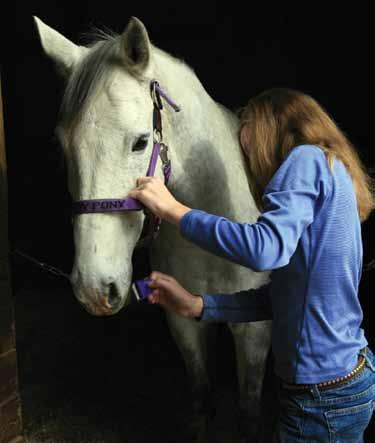
Dr. Arvind U. Amin
Armour Lewis Family Foundation
Mr. Joseph Barone
Joel R. Bigger, VMD *
Black Horse Pike Animal Hospital
Boehringer Ingelheim Vetmedica, Inc.
Ms. Cornelia Brown
Richard T. Brown, VMD *
Bucks County Kennel Club
Ch Forfox Liz Clairborn Cdx
Ms. Lynn Coakley
Ms. Christine Connelly *
Connelly Foundation *
The late Harriet A. Doolittle
Adolph Eichhorn Memorial Trust *
George F. & Linda F. Fisher Charitable Fund
Lynn S. Frankhouser-Keller, VMD *
Jerry D. Frantz, VMD *
Mrs. Randi Gnesin
Mr. Ross Gnesin
Katherine Masek Hammerman, VMD, PhD
Mr. Vernon W. Hill II
Mrs. Shirley Hill
Hill Family Foundation
Mrs. Gretchen S. Jackson *
Mr. M. Roy Jackson, Jr. *
Estate of David G. Jones *
Charlotte Miller Keenan, VMD *
Mr. Kevin Keenan *
Mr. James LaBar
Mrs. Kathryn LaBar
Ms. Debra E. Lembeck
Richard D. Marchetti, VMD
C. W. McIlwraith, PhD
New Jersey Federation of Dog Clubs, Inc.
New York Farmers Fund
Pauline O’Rosky Fund *
Pauline O’Rosky Trust
Ms. Dana M. Polk
Mark J. Pykett, VMD PhD
Pykett Family Charitable Fund
Mr. & Mrs. C. Thomas Reid
The late Charles F. Reid
Ms. Janet H. Reid
Mr. Todd R. Reid
Estate of A. E. Rine
Elsie & Arthur Roebuck Fund *
Mrs. Diana Roy
Mr. Raymond G. Roy
Mr. Howard Sammons
Estate of Clarence D. Senseman *
Donald B. Shatto, VMD
Barbara K. Stewart, VMD *
William K. Stewart, Sr. Foundation *
Henry B. Warren, VMD
Mr. Walter C. Wells *
Kathy and Jerry Wood Foundation
$496,452
A hallmark of Penn Vet, our faculty members continue to be the best in veterinary education and are leaders in their fields. To recruit and retain outstanding faculty, Penn Vet must offer endowed chairs and professorships in such fields as oncology, equine stem cell research, pathobiology and infectious diseases.
Estate of David G. Jones *
Laurie J. Landeau, VMD *
Pine Tree Trust *
Estate of Harriet E. Woodward *
Fiscal year 2011 marked a recordbreaking year for Penn Vet’s Annual Fund with $1.2 million dollars in contributions form alumni, friends, corporations, foundations and organizations. The generosity of thousands of loyal donors allows Penn Vet to maintain its position among the best veterinary schools in the world. We are grateful to these benefactors who believe in and support our wok in healing, teaching and research that benefits animals and humans alike.
BENJAMIN RUSH SOCIETY
$15,000 AND ABOVE
Mr. John Aglialoro
Ms. Elizabeth Atterbury
Krista Lake Buerger
Mr. Reid Buerger
Buerger Family Foundation
Ms. Joan Carter
Ms. Sandra Epstein
Mr. Jay S. Fishman
Mrs. Randy Chapman Fishman
Fishman Family Foundation
Elber C. Gillespie Trust *
Mr. Andrew R. Heyer
Mrs. Mindy Halikman Heyer
Andrew R Heyer & Mindy Heyer Foundation
Clara L.D. Jeffery UW
Charitable Residuary Trust
Mrs. Ellen Moelis *
Herbert I. Moelis, Esquire *
Mrs. Gail Petty Riepe
Mr. James S. Riepe
James S. and Gail P. Riepe
Charitable Foundation
RME Fund
Mr. Gerald B. Shreiber
Gerald B. Shreiber Foundation
Mr. Adam G. Silfen
David and Lyn Silfen Foundation
Thoroughbred Charities of America
Mr. Martin E. Winter
Mrs. Pamela Winter
$14,999-$10,000
Mrs. Catherine George Adler
Mr. Frederick R. Adler
Mr. Jack Billhardt *
Mrs. Patricia L. Billhardt *
Bernard F. Brennan, VMD *
Mrs. Susan Pilch Friedman
Richard Friedman Family Foundation
Mr. Brian Hard
Mrs. Janice M. Hard
Mr. Robert W. Huffman
Ithan Foundation
Laurie J. Landeau, VMD *
Laurie Landeau Foundation, LLC *
Mrs. Diane v.S. Levy
Mr. Robert M. Levy
Robert M. Levy Family Foundation
Mrs. Louise Riggio
Riggio Foundation
Mrs. Cionna Rosenthal *
Mr. Jerry Rosenthal *
Rosenthal Fund for the Animals
Mr. Mark E. Rubenstein
Mrs. Robin Rubenstein
Mrs. Lynne Lichtenstein Tarnopol
Tarnopol Family Foundation, Inc.
$9,999-$5,000
Animal Critical Care & Specialty Group, Inc.
Animal Health Care Associates, LTD
Steven W. Atwood, VMD, MD
Ayrshire Farm
Ralph L. Brinster, VMD, PhD * **
Carla Chieffo, VMD, PhD
Ms. Christine Connelly *
Connelly Foundation *
Mr. Douglas Donahue, Jr.
Mrs. Susan Donahue
Digger & Susan Donahue
Family Fund
Mr. & Mrs. Thomas G. Downs
Penn Vet is extremely grateful to all our annual fund donors. Unrestricted annual gifts to the University of Pennsylvania’s School of Veterinary Medicine have a tremendous impact on the mission of the School and its two world-renowned veterinary hospitals.
Andrew H. Elser, VMD *
Susan G. Emeigh Hart, VMD, PhD
Mr. Wayne E. Ferguson
Mr. Anthony N. Garvan, Jr. *
The late Dolores H. Gluck
Mrs. Helen K. Groves *
Mr. W. J. Hart
Dr. Elisabeth A. Hasslacher
Joan C. Hendricks, VMD, PhD * **
Mrs. Susan D. Hufford
The Honorable Patricia Jenkins
Mr. Howard Kaye
Charles W. Koenig, VMD *
Koenig Charitable Fund *
Mrs. Sandra J. Koenig *
A. Gary Lavin, VMD *
Ms. Sandy Lerner
Mrs. Jane MacElree
Jennifer A. Morris, VMD
Mrs. Dianne K. Ostrich
Sherbyn W. Ostrich, VMD
Philadelphia Foundation
Charles W. Raker, VMD * **
Kenton D. Rexford, VMD *
Rosalind Schwebel Revocable Trust
Mrs. Alison Shoemaker
Mr. John P. Shoemaker
Lindsay S. Shreiber, VMD
Mr. Mace Siegel
William S. Stockman, VMD
Mr. W. B. Dixon Stroud, Jr.
Valley Veterinary Hospital PC
Veterinary Emergency Clinic Inc.
Marilyn B. Weber, VMD *
Mr. Gary M. Wexler
Mrs. Nina S. Wexler
Willowdale Steeplechase Inc.
George P. Wilson III, VMD
RUSH SHIPPEN
HUIDEKOPER SOCIETY
$4,999-$2,500
David J. Abdinoor, VMD *
Linda E. Aiken, VMD
American Kennel Club, Inc.
Mrs. Kathy Biedenbach
Mr. Steve Biedenbach
Eric M. Bregman, VMD
Alan B. Grosbach, MD
Ms. Myra Grosbach
Ms. Gail M. Habecker *
Perry L. Habecker, VMD * **
James S. Harper, VMD *
Mrs. Marie G. Herman
Peter H. Herman, VMD *
D. Ray Hostetter, VMD
Mrs. Jane Hostetter
Kentmere Veterinary Hospital
David S. Kramer, VMD
Laurels Combined Driving Event
John W. Lee, Jr., DVM
Mr. John A. Leiper, Jr. *
Mrs. Susan S. Leiper *
Richard M. Levine, VMD
Ms. Mary G. Love **
Ann Wayne Lucas, VMD *
John B. Madison, VMD
Ms. Linda Mahan
E. Scott McAllister, VMD
Mrs. Kathleen S. Menaker *
Mr. Ronald H. Menaker *
Dorothy J. Miller, VMD
Ronald R. Minor, VMD, PhD
Mrs. Theresa Minor
Patricia A. Morgan, VMD *
Andrew P. Nebzydoski, VMD *
Joseph A. Nebzydoski, VMD *
Mrs. Kerry J. Nebzydoski *
Northeastern Pennsylvania Veterinary Medical Association
Noto Family Foundation
Mr. James F. O’Rourke III
Dr. Cynthia M. Otto **
Pennsylvania Veterinary Medical Association
Mrs. Catharine B. Peterson
Frederick B. Peterson, VMD
Philadelphia Animal Hospital
Providence Veterinary Hospital
Quarryside Animal Hospital
Francine Koplin Rattner, VMD *
Lawrence A. Rebbecchi, Jr., VMD *
Red Bank Veterinary Hospital, PC
Mrs. Mary G. Rockefeller
Gary Edward Rothman, VMD *
Ray and his wife, Jane, created the Hostetter Family Endowed Opportunity Scholarship in 2008 to provide scholarship and mentoring support to students in perpetuity. Ray has also supported the Hopewell Veterinary Group Opportunity Scholarship with partner Amos Stults, Jr. V’73 since 2002.
Jack Bregman, VMD
Mr. Adrian A. Castelli
Centre Equine Practice
Mrs. Amy S. Coogan *
Kevin P. Coogan, VMD *
Anthony J. De Carlo, VMD
Ralph C. Eagle, Jr., MD *
James F. Geer, VMD *
James H. Rush, VMD *
H. James Schroll, VMD
Jane Sparacino Schroll, VMD
Mr. Brent N. Senseny *
Mead F. Shaffer, Jr., VMD
Max L. Sponseller, VMD
Amos W. Stults, Jr., VMD
Unionville Equine Associates PC
Wallenpaupack Veterinary Clinic
“Because I received a full four-year scholarship to the School of Veterinary Medicine, I wanted to give back to today’s students.”
— Ray,V’69 and Jane Hostetter
Washington Square Animal Hospital
Mrs. Martha Good Wenger *
Melvyn G. Wenger, VMD *
Ms. Betty E. Williford
George F. Zimmerman, VMD *
Ms. Patricia Zimmerman *
MARK W. ALLAM
SOCIETY FOUNDER
$2,499-$1,000
Donald A. Abt, VMD *
Mr. & Mrs. E. M. Ackley
Adikes Family Foundation
Ms. Patricia Adikes-Hill
Ms. Elsie L. Adler
The Allen Family Charitable Fund
Mrs. Sonya Alwine
Animal Clinic At Thorndale
Ark Animal Hospital
Robert J. Ashman, VMD
Mrs. Wilhemina M. Austin
Elizabeth Soper Azary, VMD *
Peter F. Azary, VMD *
Back Mountain Kennel Club, Inc.
Ms. Ruth Bedford
Arthur A. Bickford, VMD
Blandford Animal Hospital
John C. Bloom, VMD, PhD
Ms. Katherine R. Blyth *
Mr. and Mrs. J. M. Bontecou *
Ms. Karen Bossert
Thomas Bowman, DVM
Ms. Catherine Bray
Martin A. Bree, VMD
Mr. Craig R. Carnaroli
Ms. Maureen Calloway Carnevale
Richard A. Carnevale, VMD
Cat Doctor Inc.
Chippens Hill Veterinary Hospital
Mr. Harvey A. Coleman
Allen J. Conti, VMD *
Mrs. Janice Merry Conti *
Ms. Kathleen Crompton
Mr. Andy Davidoff
Mr. Richard Kaye Davis
Carol A. Dolinskas, MD
Mr. and Mrs. Thomas Domencich
Thomas and Nephele W. Domencich Foundation
Dravosburg Veterinary Hospital
Mr. & Mrs. Michael S. Dukart
Mrs. Henry E. I. duPont
Mr. Anthony W. Dutrow
Diane Ruth Eigner, VMD
Elizabeth Gordan Ellis, VMD
Mr. Henry R. C. Elser
Mr. P. F. N. Fanning
Evan A. Feinberg, VMD *
Mrs. Bonnie Feld
Mr. Kenneth J. Feld
Elaine A. Ferrara, VMD
Randall C. Fertelmes, VMD
Mrs. Ruth K. Fertelmes
Ms. Audrey Fisher
George L. Flickinger, Jr., VMD
Mrs. Karen Combs Flickinger
Edgar Mark Fox, VMD
Kathleen M. Friedenberg, VMD
Zachary B. Friedenberg, MD
Keith W. Gates, VMD
Mrs. Lois F. Gates
Lawrence J. Gerson, VMD
Patricia J. Glennon, VMD
Mr. Barry Goldblatt *
Barry L. Goldblatt Charitable Annuity Trust *
Leslie A. Goldsmith, VMD *
Tamar B. Goldstein, VMD
Greenwich Animal Hospital PC
Joseph H. Groveman, VMD *
Douglas A. Hambright, VMD
John F. Hampson, VMD *
Mrs. Roberta B. Hampson
Mrs. Paula D. Haughey
Mr. Thomas M. Haughey
Kim A. Herrman, VMD
Ms. Mary Herzog
Mary Herzog and Andy Davidoff Fund
Mr. Kerry N. Hitt
Dolores M. Holle, VMD
Ms. Susan K. Hollenstein
Hazel M. Holman, VMD
Ms. Judy L. Hricak
Mr. Anthony Imbesi
Ms. Giovanna Imbesi
Mr. John Imbesi
Mrs. Patricia H. Imbesi
David C. Johnson, VMD *
W. Southard Jones, Jr., VMD
Mrs. Ann Lunger Jones
Ms. Margo L. Jones
J. Ritchie Veterinary Hospital
Joann DiDonato Kazdin
Mr. John E. Keefe
Mr. James Koch
Susan Turnbull Laevey, VMD
Mr. Thomas F. Lantry *
Mrs. Kathleen Rifkin Lantz
Mr. Paul D. Lantz
Mr. Christopher Le Vine
Mrs. Victoria Le Vine
Jay N. Leeb, VMD
Ms. Karen Lien
Dr. Eric H. Linnetz, Jr.
Walter F. Loeb, VMD *
Audrey Love Charitable Foundation
Lums Pond Animal Hospital
Gail Reidler Mackey, VMD *
Madyl Fund
Linda L. Mahan Unitrust
Main Street Veterinary Hospital
Corinne Majeska, VMD
Andrew Major, VMD
Andrew & Gemma Major Giving
Courtney M. Manetti, VMD
Patricia J. Mapps, VMD
Leigh A. Marsh, VMD *
Ms. Anna McWane
Anna McWane Charitable Foundation
Mark Mendlowitz, VMD
Eddie F. Molesworth, VMD
Ms. Renee M. Moore
A. Harris Mosher, VMD
Nature’s Earth Products, Inc.
Nebel Street Animal Hospital
Mr. Leonard A. Nowak
Mrs. Roberta Odell *
John L. O’Donoghue, VMD, PhD *
Mrs. Bonnie K. Olie
Park Veterinary Group Inc.
Patriarch Family Foundation
Deborah S. Patt, VMD *
Ms. Constance Perine-Goldsmith
Gregory H. Peterson, VMD
Petland Village of Eastside
Ms. Jane Pirotin
Pleasant Valley Veterinary
Dr. Julie Rabinowitz
Red Lion Veterinary Hospital
Reidler Foundation
Joel M. Reif, VMD *
Victor T. Rendano, Jr., VMD
Mr. Edward M. Resovsky
Linda Rhodes, VMD, PhD
Ms. Schuyler C. Riley
Joan Mary Ritchie, VMD *
Dr. Carolyn Carruth Rizza *
Deborah Smith Roberts, VMD *
Hollenstein Ross Foundation
Mr. Gregg A. Runyen *
Mrs. Terry Runyen *
Ruth Bedford Revocable Trust
Mrs. Karen Rylander-Davis
Farid C. Saleh, VMD *
Ms. Patricia Salmon
Linda Waltz Schaffer, VMD
Dale A. Schilling, VMD
Ms. Cornelia Schlotter *
Linda M. Schoenberg, VMD, PhD *
Mr. Dennis L. Schrader
Mrs. Jamee F. Schrader
Mr. and Mrs. John Seifarth
Mr. Mark Simpson
Mrs. Susan D. Simpson
John D. Sivick, VMD
Stephen A. Smalley, VMD *
Barbara E. Smith, VMD
Mr. Martin T. Sosnoff
Martin & Toni Sosnoff Foundation
Stephen G. Soule, VMD
Ms. Janet Sowiak
Mrs. Bette L. Steinberg *
Sheldon A. Steinberg, VMD * **
Stevenson Village Vet Hospital
Raymond Stock, VMD
Ms. Jeanne M. F. Swartchild
Raymond W. Sweeney III, VMD * **
Dr. Corinne R. Sweeney **
Beryl Calvin Taylor, VMD
Ms. Sally Thomas
Robert M. Thompson, Jr., VMD *
Ms. Amie D. Thornton *
Mr. & Mrs. Terrence A. Tobias
Kathleen M. Tracy, VMD *
Ms. Kathleen A. Ulman
Jeanne L. Van Nuys-Hitt, VMD
Marylouise A. Visco, VMD
Ms. Carol Elizabeth Ware
Alexandra Wetherill, VMD
Mr. Jerold Wichtel
Mrs. Jill K. Wichtel
Ms. Barbara Williamson
Mr. David A. Wisser
Joan M. Yarnall, VMD *
MARK W. ALLAM SOCIETY FELLOW
$999-$250
Ms. Anne Sima Abel
Frank M. Abel, VMD
Mrs. Theresa Aldamlouji
Mr. Zaid Aldamlouji
Bert M. Allen, VMD
Mrs. Josephine J. Aller
Mr. Robert C. Aller
Judith L. Allison, PhD
Ms. Jennifer J. Alvarez
Dr. Christopher Anastasiou
Animal Care Centers
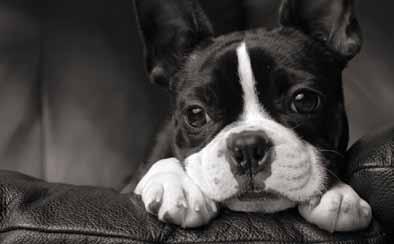
Animal Health Care of Myerstown
Charles C. Arensberg, VMD
James R. Armstrong, VMD *
ASD Fund
Dr. Patricia A. Assan
Mr. Colin Atkins
Ms. Katharine Austin Barnes
Louis C. Bach, VMD
Back Bay Veterinary Clinic
Frederic K. Baff, VMD *
Wesley Baff, VMD
Daniel L. Baker, VMD *
Baker Animal Hospital
Linda Mclaughlin Barchet, VMD
Christopher C. Barton, VMD
Barton Heights Veterinary Hospital
Larry R. Bason, VMD *
Joanna M. Bassert, VMD
Bayside Animal Medical Center
Jill Beech, VMD * **
Mark W. Beere, VMD
Mary H. Bell, VMD
Mr. Carmine T. Bello
Pamela L. Bendock, VMD
Ken Berg, DVM
Blayne P. Bergenstock, VMD
Bethel Veterinary Hospital PC
Jean Marie Betkowski, VMD
Nina Ruth Beyer, VMD
Sharon Birk
Ms. Eugenia B. Bishop
Ms. Gladys M. Black
Mr. Michael G. Blanchard
Mrs. Nadine Blanchard
Dr. J. Kent Blasie
Mrs. Michele Blazer
Dr. & Mrs. John Blenko
Julia M. Block Schwartz, VMD *
Kenneth L. Bollens, Jr., VMD
Jeffrey A. Booth, VMD
Mr. Jeff Bowen
Alexandra F. Bray, VMD
Mr. James David Bray
Andrew J. Breslin, VMD
John E. Brockett, VMD
Nancy M. Bromberg, VMD *
Richard W. Brown, Jr., VMD *
Charles E. Brown, VMD *
Ms. Barbara Brungess
Ms. Julia Bruno *
Mary A. Bryant, VMD
Bucks County V.E.T.S.
Martha E. Bugbee, VMD
Mark B. Burch, DVM
Ms. Linda G. Burka
Elizabeth E. Burke, DVM
Dr. Petra Burke-Ramirez
John P. Burlein, VMD
Burnt Mill Veterinary Center
Mr. Paul J. Calandra
Mr. Kevin L. Call
Gregg W. Campbell, VMD *
Mrs. Marcia W. Campbell
Mr. Ross L. Campbell
Mrs. Marilou Cannon
Mr. Robert E. Cannon
Doris Adele Cappiello, VMD
Ms. Christine M. Carey
Catherine Walleigh Carnevale, VMD
Mrs. Anna I. Cascio
Mr. Michael J. Cascio
Lisa A. Cawley, VMD
Mrs. Ellen M. Charles
Ellen M. Charles Rev. Trust
Ms. Ellen L. Cherry
Chester County Cat Hospital
Mr. Jack R. Cimprich
Ronnie Elkins Cimprich, VMD
Christine Joan Cioffe, VMD
Mr. and Mrs. Joseph M. Clarke
Joshua H. Clay, VMD *
James M. Clinton, VMD
Mr. Juan J. Colina de Vivero
Mr. & Mrs. Steven W. Concannon
Mrs. Karen L. Conway
Mr. Stephen J. Conway
Cynthia C. Coppock, VMD
Ms. Jeanne Coryell
Ms. Sharon L. Costa
Mrs. Carolyn R. Cotter
County Animal Hospital Inc.
Ms. Cornelia Crawford
Ms. Elizabeth Crawford
Dr. Jennifer Cree
Mrs. Amelita E. Cresswell
Henry Cresswell, VMD
Henry L. Croft, Jr., VMD *
Cross Keys Animal Hospital, LLC
Croton-on-Hudson Veterinary Clinic
Crown Clothing Company
Steven P. Cudia, VMD *
Mr. Craig Cullen, Jr.
Mrs. Carolyn C. Cullen
John M. Cullen, VMD
Sharon A. Dailey, VMD
Francis W. Daniel, Jr., VMD
Mrs. Jill Nearing Daniel
Dr. Richard L. Davidson
Mr. Bruce K. Davis
Ms. Krissi M. Davis
Patricia A. Day-Lollini, VMD *
Mr. Thomas C. Deas, Jr.
Mrs. Stephanie Dechen
Ms. Rose Marie A. Deffenbach
Delaware Equine Council
Edytheann DeMaria, VMD
Ms. Pamela A. Denison
Mr. & Mrs. Matthew D. Devine
Ms. Gladys DiNunzio
Dr. Wendy L. Dixon
Mr. William J. Dixon
Virginia Schaefer Dobozy, VMD
Christina J. Dolan, VMD
Lydia L. Donaldson, VMD *
Leonard N. Donato, VMD
Ms. Sophie Du Pont
Mrs. Chantal Dubeck
Sandra M. Dudek, VMD *
The Honorable Pierre S. duPont, IV
Elise Wood duPont, Esquire
Dutrow Thoroughbred Enterprises Inc.
Mrs. Julie M. Duval
Eagle Veterinary Clinic
Ms. Cheryl L. Eberle
Mr. and Mrs. Norman Edmonson
Edmonson Family Fund
Ehrlich Animal Hospital
Mrs. Jeanne M. Eisele
Robert J. Eisner, VMD
Cynthia Nass Eldredge, VMD
Mr. Steve Elkin
Mrs. Helen M. Elkins
William L. Elkins, MD
Engelberg-Kristy Animal Hospital
Equine Veterinary Care
Mr. David K. Erickson
Ms. Sharon A. Errickson
Essex County Community Foundation
Paul A. Evans, VMD
Mrs. Christine E. Facciolo
Mr. Frank A. Facciolo
William G. Farrell, VMD
Ms. Nancy L. Farrish
William Philip Feeney, VMD *
Michele Lea Ferraro, VMD
Ms. Anne T. Finn
Ms. Jessica E. Fischer
Mr. Paul F. Fischer
Andrew Mark Fitzgerald, VMD
Fitzgerald Veterinary Hospital
Dinah E. Flack, VMD
Barbara J. Flickinger, VMD
Mr. Donald T. Floyd
Daniel V. Flynn, VMD
Virginia Eaton Flynn, VMD
Patrick Ford, VMD
Barbara D. Forney, VMD
Ms. Marilyn Forney
Dr. Robert C. Forney
Forney Family Foundation, Inc.
David H. Fortna, VMD
Ms. Patricia A. Frey
Robert M. Frey, VMD
Frey Family Charitable Fund
Ms. Susan Gabriel
Ms. Katharine Gahagan
Mr. Kenneth Galler
Paul C. Gambardella, VMD *
Mrs. Susan C. Gambardella *
Ms. Deborah M. Gardner *
William S. Gardner, VMD *
Jan V. Ginsky, VMD
Ms. Annette Gittelman
Alan S. Glassman, VMD
Joseph C. Glennon, VMD
John M. Gliatto, VMD
Edward M. Goglia, VMD
Mrs. Lois Sommer Goglia
Ms. Lynda Goldschein
Sheila M. Gomez, VMD
Ms. Jayne E. Graham
Dr. Dana Greenleaf
Mr. James E. Gregg
Mr. Don J. Grinevicius
Stephen L. Gross, VMD **
Ms. Donna J. Gruber
Joseph J. Gruber, VMD
Ms. Judith L. Guise
Mr. & Mrs. Geoff Halfpenny
Christopher L. Hallihan, VMD
Robert C. Hallock, Jr., VMD
Hamilton Animal Hospital
Margaret L. Harbison, VMD
Maureen Hargaden, VMD *
Lenn R. Harrison, VMD *
George L. Hartenstein IV, VMD *
Karen B. Harvey, VMD *
Ms. Margaret S. Havens
Dorothy Frances Hayes, VMD
Ms. Jodi F. Hayes
Mr. & Mrs. Bruce K. M. Henderson
Mattie J. Hendrick, VMD **
David R. Hensen, DVM
Deirdre M. Hensen, VMD *
Michael J. Herman, VMD *
Peter D. Herman, VMD *
Mr. Howard L. Herzog
Anne R. Heskel, VMD
HHD Mobile Veterinary Clinic, LLC
William T. Hill, VMD *
Hill Street Veterinary Hospital
Mr. Hugo Hollinger
Holpont Foundation
Mrs. Theodora Hooton
William D. Hope, Jr., VMD
Jeffrey J. Horst, VMD
Howard C. Hughes, Jr., VMD
Christopher A. Hunsinger, VMD
Cynthia Ann Hunt, VMD
Phillip R. Hunt, VMD
Mrs. Doreen M. Insabella
Mr. John Insabella
Ms. Heather Irons
Mr. Steven Thomas Irons
Mr. Ed Isaack
Susan Irene Jacobson, VMD *
Mr. Robert S. Jakobi
Ms. Nancy Jeffries
Mrs. Constance Z. Jenkins
David A. Jenkins, Esquire
Mrs. Beverly B. Jennings
Mr. Keith S. Jennings
Peter F. Jezyk, VMD
Robert F. Jochen, VMD
Jennifer Felicia Johnson, VMD
Kate E. Johnson, VMD
Scott David Johnson, VMD
Ms. Shelby Johnson
Victoria Johnson, VMD
Betty S. Johnston, VMD *
Jolyn Foundation Inc.
Mrs. Hope H. Jones
Michael Josephs, DVM
Ms. Barbara Karol
Estate of Gerald J. Katz
Mrs. Angela M. Kay
Dr. Thomas Kay
Dr. Kevin P. Keane
Keestone Katz Inc.
Keira J. Mellion VMD, LLC
Mr. and Mrs. Robert E. Keith
Mr. Albert Kerrigan *
Britan A. Kilbourne, VMD *
Mr. Clayton G. Kilrain
Mrs. Sharon M. Kilrain
Kinzua Veterinary Clinic
Kathryn Kirstein, VMD
Frank A. Klimitas, VMD
“I give because of what the School gave me. No matter how small or large the gift is, alumni support has and always will be critical to the success of the Vet School.”
— Don Abt,VMD, Donor
Richard R. Knavel, VMD
Charles D. Knecht, VMD
Ms. Diane D. Knepper
Mr. Fred L. Knight
Seth A. Koch, VMD
Harold Kopp, VMD
Cynthia J. Kosacz, VMD
Michael I. Kotlikoff, VMD
John W. Kreider, VMD *
Charles E. Kresge, VMD
John T. Kristy, VMD *
Paul D. Kutish, VMD
Sharon P. Lachette, VMD
Elmer F. Laffey, VMD *
Ms. Anne P. Laporte
Jean M. Lasser, VMD
Mr. and Mrs. Joseph R. Lasser
Joseph R. & Ruth P. Lasser
Phil Foundation
Mrs. Marsha Levin
Bernard G. Levine, VMD
Tullia Lindsten, MD, PhD
Ms. Barbara Heyman Lorber
William Ralph Lowe III, VMD
Donald K. Lowe, VMD *
Lower Allen Veterinary Clinic
Edgar L. Loy, VMD
Loyalhanna Veterinary Clinic
William F. Lucker, Jr., VMD *
Ms. Mary Alice Lucot
Mr. and Mrs. Kenneth N. Luongo
Lutherville Animal Hospital, Inc.
Matthew P. Mackay-Smith DVM
Susan A. MacKenzie, VMD *
Larry and Barbara Magid
Maine Coast Veterinary Hospital
Donald A. Marcus, VMD
Amy R. Marks, VMD
Mr. Brian C. Marks
Ms. Margaret S. Marsh
Dr. Edward W. Marshall III
Mrs. Margaret T. Martinez
Mr. Oscar R. Martinez
Mr. & Mrs. Francis Mashett
Deborah Masso, DVM
Ms. Susan Master
Christopher L. McCawley, VMD
Susan G. McCawley, VMD
Carolyn M. McDaniel, VMD
Ms. Catherine McDonnell
Mrs. Clara Stevenson McGonigal *
Mira L. McGregor, VMD
McGregor Bovine Veterinary Services, Inc.
Mr. Thomas McKenna
Mr. & Mrs. Tom Mckenna
Ms. Maureen P. McKew
Wendy Mcllroy, VMD
Mr. James A. McMillan *
Ms. Judith K. McMillan *
James M. McNamara, Jr., VMD
Ms. Mary Louis Meinholz
Richard Scott Meirs, VMD *
Keira J. Mellion, VMD
Eileen Louise Mera, VMD
Meriden Wallingford
Veterinary Associates
Ms. Della J. Micah
Adm. John Miksa
Adam D. Miller, VMD
Mrs. Marian Mills
Mrs. Joanna Milstein
Edward M. Mimnagh, VMD
Mrs. Margaret M. Mimnagh
Jaime F. Modiano, VMD
Ms. Maryjeannette J. Monihan *
Kathleen D. Moody, VMD
Sara Ann T. Moran, VMD
Ms. Andrea Morgan
Mr. John A. Morgan
Richard V. Morgera, VMD
Mrs. Sharon Morgera
Mr. Frank J. Morgis
Mrs. Lois W. Morgis *
Morrissey Family Foundation
Michael K. Moss, VMD *
Ms. Gina B. Muss
Mr. Irvin S. Naylor
Cynthia A. Neibert, VMD
Mr. Lathrop B. Nelson, Jr.
Kathryn H. Nepote, VMD
Lavonne R. Newman, VMD
Mr. Richard W. Newpher
Mr. & Mrs. Michael Ney
Richard A. Nicklas, MD
Paul H. Nicolaysen, VMD
Robert A. Nizlek, VMD
Mr. Joseph Norris
North Boros Veterinary Hospital
Michael George Nosko, VMD
William A. Nusser, VMD
Nadine Oakley, VMD
Mr. and Mrs. Robert O’Brien
Patricia A. O’Handley, VMD
Dr. Salvatore A. Orsini *
Sean C. Ott, VMD
Mr. & Mrs. George R. Overhiser
Mrs. Janet E. Palmer *
Jeffrey D. Palmer, VMD
Lee Anne M. Palmer, VMD
Scott E. Palmer, VMD *
Ms. Vivian Palmer
Patt Veterinary Hospital Ltd.
Paumanok Veterinary Hospital
Mr. Joseph W. Pedron
Sally A. Pepper, VMD
Perkiomen Animal Hospital
Pets Aloud Mobile Vet Services
Ms. Elizabeth L. Peyton
Mr. Theodore S. Peyton
Gerald E. Pietsch, VMD *
Plumtrees Animal Hospital
Scott A. Polo, VMD
Professional Horsemens Association
Prospect Ridge Veterinary Hospital
Dominick A. Pulice, VMD
John E. Quatroche, VMD
Corinne S. Quinn
Gary J. Quinn, VMD
Radnor Veterinary Hospital
Joan Regan, VMD *
Ms. Patricia A. Reid
Mrs. Sharon E. Rhoades
Miss Mary B. Rice
Sara F. Rice, VMD
Dr. Dean W. Richardson **
Dr. Laura Richardson
Ms. Lori A. Rickard
Mr. H. Paul Ritchie
Ms. Grace E. Ritzenberg
Mr. and Mrs. Donald Ritzenthaler
Ms. Jeannette E. Roach
Charlotte L. Robson, DVM
Mr. Mark Rochkind
Mrs. Patricia W. Rochkind
Rockhill Veterinary Associates
Dr. and Mrs. Donald J. Rosato
Mrs. Corinne Roxby
Mr. Roger E. Rozsas
Mr. Paul Rucci
Ms. Elaine M. Rymsza
Irving D. Sackett, Jr., VMD *
Vincent J. Salandria, Esquire
Lawrence W. Samples, VMD
Ms. Linda K. Schleifer
Margot Beth Schwag, VMD
Dr. Phillip Andrew Scott **
Christopher N. Scotti, VMD
Michelle C. Scotti, VMD
Roger F. Sembrat, VMD
Mr. & Mrs. Keith Seritella
Mrs. Donna Seybert
Mr. Ira Sherman
Thomas W. Shoemaker, VMD *
John C. Simms, VMD
Albert Singer, VMD
Frank E. Skacel, Jr., VMD *
Kevin C. Skinner, VMD
Ms. Joy L. Slater
SMF Foundation/JM, Inc.
Bruce Frederic Smith, VMD, PhD *
Dr. Gary Smith
Norman E. Smith, VMD
Sports Medicine Associates of Chester County
Mark E. Stair, VMD
Ronald J. Stas, VMD
Larry L. Stefanick, VMD *
Eugene P. Steffey, VMD
Mr. Miles W. Stein
Brenda Lewis Stewart, VMD *
James V. Stewart, VMD *
Mrs. Mary McMahon Stewart *
Robert W. Stewart, VMD *
Ms. Tawn J. Stokes
Stoney Creek Veterinary Hospital
Ms. Kristen G. Stroehmann
Sun Gard Higher Education
Thomas A. Sutch, VMD
Mrs. Nancy T. Swayne *
Ms. Victoria Swinson
Mrs. Elizabeth S. Sykes
Greg P. Sykes, VMD *
Sherry Lee Talowsky, VMD
Eddie L. Tamm, VMD
Henry J. Te Velde, DVM
Gregory M. Thibodeau, VMD
James O. Thomas, VMD *
Craig B. Thompson, MD
Mrs. Eve Lloyd Thompson
Mr. Renny E. Thoms
Thoreau Veterinary Hospital
Mrs. Daphne A. Townsend
Mrs. Anita L. Ulishney
University Drive Veterinary Hospital
Karen L. Usselman, VMD
Valley Green Veterinary Hospital
Max A. Van Buskirk, Jr., VMD
Mrs. Mary Jane W. Van Buskirk
Mary B. Van Kooy, VMD
Thomas J. Van Winkle, VMD * **
George D. Vernimb, VMD *
Mrs. Ruth Vernimb
Veterinary Medical Center PC
Veterinary Ophthalmology Services
Veterinary Specialties
Referral Center
Ms. Mary Ann Vierheilig
Joseph R. Viola, Esquire
Mr. and Mrs. Herman K. Voellm
Kenneth W. Volk, Jr., VMD
Margarita Vazquez Volk, VMD
Professor Stella Volpe
Ms. Melissa von Stade **
Edwin A. Wagner, VMD
Cuyler Harriman Walker, Esquire
Mr. Karl T. Walli
Walmoore Holsteins Inc.
Walnridge Equine Clinic PC
Willi K. E. Weichelt, VMD
Ms. Patti Weiner
Robert J. Weiner, VMD
Steven E. Weisbrode, VMD *
Mr. and Mrs. Earl D. Weldin
Amy J. Wenger, VMD *
Jeremy J. Wentz, VMD
West Chester Veterinary Medical Center
Mr. John P. White
White Haven Veterinary Hospital
Ms. Ann C. Wickliffe
John C. Widenmeyer, VMD
Laurel Wiegand, MD
Arthur H. Wilcox, VMD *
Willow Run Veterinary Clinic, Inc.
Franklin K. Wills, VMD *
Mr. and Mrs. G. F. Wintersteen
Arthur T. Wirtz, Jr., VMD
Sharon K. Wirtz, VMD
Woburn Animal Hospital
Charles Corbit Wolfe, VMD *
S. J. Woolwich Holzman, VMD
Wyoming Valley Veterinary Hospital, Ltd.
Youngsville Veterinary Clinic
Mr. Arnold Zacharias
Mrs. Ansley B. Zehnder
Mr. Jeffrey S. Zehnder
Curtis A. Zillhardt, VMD *
Sarah Zimmerman, VMD
Beth A. Zmijewski, VMD *
Mrs. Denice Zucca
Mr. Thomas Zucca
1930-1939
V’38
William A. Nusser, VMD
1940-1949
V’42
David K. Detweiler, VMD
Charles W. Raker, VMD
V’43
Joseph H. Groveman, VMD
John D. McCullough, VMD
V’44
Sheldon S. Farber, VMD
V’45
Richard W. Brown, Jr., VMD
V’46
Bernard F. Brennan, VMD
Eddie L. Tamm, VMD
V’47
Martin A. Bree, VMD
V’48
Irving D. Sackett, Jr., VMD
1950- 1959
V’50
Thomas W. Shoemaker, VMD
Franklin K. Wills, VMD
V’52
John E. Quatroche, VMD
V’53
Stuart A. Fox, VMD
Edgar L. Loy, VMD
Albert Singer, VMD
V’55
Peter H. Craig, VMD
Henry Cresswell, VMD
Keith W. Gates, VMD
Bernard G. Levine, VMD
Walter F. Loeb, VMD
George P. Wilson III, VMD
V’56
Charles D. Knecht, VMD
Thomas Sollas, VMD
Max A. Van Buskirk, Jr., VMD
George D. Vernimb, VMD
V’57
Virginia Eaton Flynn, VMD
Lillian A. Giuliani, VMD
Charles W. Koenig, VMD
V’58
George L. Flickinger, Jr., VMD
Daniel V. Flynn, VMD
Mead Shaffer, VMD
Curtis A. Zillhardt, VMD
V’59
Raymond W. Giuliani, VMD
Leigh A. Marsh, VMD
Sheldon A. Steinberg, VMD
1960-1969
V’60
Arthur A. Bickford, VMD
Ralph L. Brinster, VMD, PhD
Pierre A. Conti, VMD
Elaine P. Hammel, VMD
V’61
Donald A. Abt, VMD
John P. Burlein, VMD
Francis W. Daniel, Jr., VMD
Harriet A. Doolittle, VMD
Paul A. Evans, VMD
V’62
Bert M. Allen, VMD
Charles E. Kresge, VMD
A. Gary Lavin, VMD
A. Harris Mosher, VMD
James S. Reid, VMD
V’63
Frederic K. Baff, VMD
Sherbyn W. Ostrich, VMD
Max L. Sponseller, VMD
Melvyn G. Wenger, VMD
V’64
Joseph J. Gruber, VMD
James O. Thomas, VMD
Willi K. E. Weichelt, VMD
V’65
Larry R. Bason, VMD
James M. Clinton, VMD
Seth A. Koch, VMD
Edward M. Mimnagh, VMD
William S. Rokus, VMD
V’66
Jack Bregman, VMD
David H. Fortna, VMD
Edward M. Goglia, VMD
William D. Hardy, Jr., VMD
Robert F. Jochen, VMD
Elmer F. Laffey, VMD
William F. Lucker, Jr., VMD
Ronald Minor, VMD
William S. Stockman, VMD
V’67
James R. Armstrong, VMD
Robert J. Eisner, VMD
Lenn R. Harrison, VMD
Howard C. Hughes, Jr., VMD
Alan D. Marley, VMD
Patricia A. O’Handley, VMD
Eugene P. Steffey, VMD
V’68
George L. Hartenstein IV, VMD
Frederick B. Peterson, VMD
Linda M. Schoenberg, VMD, PhD
Donald B. Shatto, VMD
William J. Solomon, VMD
James Stewart, VMD
Robert W. Stewart, VMD
V’69
Malcolm Borthwick, Jr., VMD
Robert C. Hallock, Jr., VMD
Peter H. Herman, VMD
Established in March 2011, the mission of the Dean’s Alumni Council is for a group of alumni leaders to work closely with the Gilbert S. Kahn Dean of Veterinary Medicine and Office of Alumni Relations, Advancement and Communication on various projects to connect alumni, students, and the public to the Penn Vet community for the purpose of alumni engagement and stewardship, community ambassadorship and student interactions.
Charles C. Arensberg,VMD
Heather A. Berst,VMD
Eric M. Bregman,VMD
Jack Bregman,VMD
Nancy O. Brown,VMD
Mary A. Bryant,VMD
Dennis E. Burkett,VMD
Carla Chieffo,VMD, PhD
Mark A. Cofone,VMD
Henry L. Croft, Jr.,VMD
Kristin L. Dance,VMD
Timothy J. Davenport,VMD
Camille DeClementi,VMD
Ian J. Driben,VMD
Diane Ruth Eigner,VMD
Andrew H. Elser,VMD
Susan G. Emeigh Hart,VMD PhD
Lawrence J. Gerson,VMD
Elaine P. Hammel,VMD
Nathan D. Harvey,VMD
Mattie J. Hendrick,VMD
Peter H. Herman,VMD
Susan Irene Jacobson,VMD
Charlotte Miller Keenan,VMD
Charles W. Koenig,VMD
Patrick A. Mahaney,VMD
Eileen Louise Mera,VMD
Michael R. Moyer,VMD
Scott E. Palmer,VMD
Dominick A. Pulice,VMD
Gary Edward Rothman,VMD
William J. Solomon,VMD
Sheldon A. Steinberg,VMD
Robert W. Stewart,VMD
Brenda Lewis Stewart,VMD
James V. Stewart,VMD
Robert W. Stewart,VMD
Raymond Stock,VMD
Erin D.Vicari,VMD
Marilyn B. Weber,VMD
Jacob R. Werner,VMD
Jeffrey A. Wortman,VMD
dean’s alumni council
Peter D. Herman, VMD
D. Ray Hostetter, VMD
Frederick B. Peterson, VMD
1970-1979
V’70
Ronnie Elkins Cimprich, VMD
William S. Gardner, VMD
Richard R. Knavel, VMD
Andrew Major, VMD
John L. O’Donoghue, VMD, PhD
Brenda Stewart, VMD
Steven E. Weisbrode, VMD
V’71
Christopher C. Barton, VMD
Andrew J. Breslin, VMD
Jack B. Drummond, VMD
William G. Farrell, VMD
W. Southard Jones, Jr., VMD
Frank A. Klimitas, VMD
Donald A. Marcus, VMD
Sally A. Pepper, VMD
Gerald E. Pietsch, VMD
James H. Rush, VMD
Lawrence W. Samples, VMD
Stephen A. Smalley, VMD
Arthur H. Wilcox, VMD
Richard B. Wolstenholme, VMD
V’72
Louis C. Bach, VMD
Jill Beech, VMD
Kenneth L. Bollens, Jr., VMD
Charles E. Brown, VMD
Catherine Walleigh Carnevale, VMD
Paul C. Gambardella, VMD
James S. Harper, VMD
E. Scott McAllister, VMD
Victor T. Rendano, Jr., VMD
V’73
Richard A. Carnevale, VMD
Randall C. Fertelmes, VMD
Jerry D. Frantz, VMD
Jay N. Leeb, VMD
Dorothy J. Miller, VMD
Eddie F. Molesworth, VMD
Kathryn H. Nepote, VMD
Stephen G. Soule, VMD
Amos W. Stults, Jr., VMD
V’74
David J. Abdinoor, VMD
Frank M. Abel, VMD
John C. Bloom, VMD, PhD
Virginia Schaefer Dobozy, VMD
Margaret L. Harbison, VMD
William T. Hill, VMD
James Schroll, VMD
Jane S. Schroll, VMD
Roger F. Sembrat, VMD
John C. Simms, VMD
Norman E. Smith, VMD
Thomas A. Sutch, VMD
Arthur T. Wirtz, Jr., VMD
V’75
John M. Cullen, VMD
Lydia L. Donaldson, VMD
Lawrence Gerson, VMD
William D. Hope, Jr., VMD
Peter F. Jezyk, VMD
Betty S. Johnston, VMD
Ann Wayne Lucas, VMD
Michael K. Moss, VMD
Frank E. Skacel, Jr., VMD
Raymond Stock, VMD
Greg P. Sykes, VMD
Sherry Lee Talowsky, VMD
Beryl Calvin Taylor, VMD
Kathleen M. Tracy, VMD
Thomas J. Van Winkle, VMD
Marilyn B. Weber, VMD
V’76
Robert J. Ashman, VMD
Elaine A. Ferrara, VMD
Britan A. Kilbourne, VMD
Cynthia J. Kosacz, VMD
Paul D. Kutish, VMD
Robert A. Nizlek, VMD
Scott Palmer, VMD
Joel M. Reif, VMD
Sharon K. Wirtz, VMD
George F. Zimmerman, VMD
V’77
Richard T. Brown, VMD
Allen J. Conti, VMD
Robert M. Frey, VMD
Stephen L. Gross, VMD
Susan Irene Jacobson, VMD
David C. Johnson, VMD
Charlotte Miller Keenan, VMD
Susan A. MacKenzie, VMD
Barbara K. Stewart, VMD
Edwin A. Wagner, VMD
John C. Widenmeyer, VMD
V’78
Linda E. Aiken, VMD
Daniel L. Baker, VMD
Nancy M. Bromberg, VMD
Henry L. Croft, Jr., VMD
Mattie J. Hendrick, VMD
Hazel M. Holman, VMD
Susan D. Morgan, VMD
Lavonne R. Newman, VMD
Nadine Oakley, VMD
Deborah S. Patt, VMD
Linda Rhodes, VMD PhD
Sara F. Rice, VMD
Dale A. Schilling, VMD
Barbara E. Smith, VMD
Mark E. Stair, VMD
Larry L. Stefanick, VMD
V’79
Joel R. Bigger, VMD
John E. Brockett, VMD
Cynthia C. Coppock, VMD
Sharon A. Dailey, VMD
Patricia A. Day-Lollini, VMD
John F. Hampson, VMD
Joan C. Hendricks, VMD, PhD
Michael Miller, VMD
Joan Regan, VMD
1980-1989
V’80
Steven W. Atwood, VMD, MD
Kevin P. Coogan, VMD
Sandra M. Dudek, VMD
Diane Ruth Eigner, VMD
Patricia J. Glennon, VMD
Leslie A. Goldsmith, VMD
Mark Mendlowitz, VMD
Marylouise A. Visco, VMD
Henry B. Warren, VMD
Robert J. Weiner, VMD
Alexandra Wetherill, VMD
V’81
Marilyn F. Balmer, VMD
Mark W. Beere, VMD
Edgar Mark Fox, VMD
John M. Gliatto, VMD
Perry L. Habecker, VMD
Michael J. Herman, VMD
Dolores M. Holle, VMD
Michael I. Kotlikoff, VMD
Richard M. Levine, VMD
John B. Madison, VMD
Carolyn M. McDaniel, VMD
Sara Ann T. Moran, VMD
Paul H. Nicolaysen, VMD
Gary J. Quinn, VMD
Deborah Smith Roberts, VMD
V’82
Anthony Decarlo, VMD
Barbara D. Forney, VMD
Lynn S. Frankhouser-Keller, VMD
Deirdre M. Hensen, VMD
Phillip R. Hunt, VMD
Donald K. Lowe, VMD
William Ralph Lowe III, VMD
Richard Scott Meirs, VMD
Kathleen D. Moody, VMD
Joseph A. Nebzydoski, VMD
Suzanne J. Smith, VMD
Raymond W. Sweeney III, VMD
V’83
Betsy L. Dayrell-Hart, VMD
Susan G. Emeigh Hart, VMD
Gail W. Heyer, VMD
John T. Kristy, VMD
Susan G. McCawley, VMD
Jeffrey D. Palmer, VMD
Kevin C. Skinner, VMD
Jeanne L. Van Nuys-Hitt, VMD
Linda Waltz Schaffer, VMD
V’84
Alan S. Glassman, VMD
Joseph C. Glennon, VMD
Kim A. Herrman, VMD
David S. Kramer, VMD
Laurie J. Landeau, VMD
Andrew P. Nebzydoski, VMD
Cynthia A. Neibert, VMD
Kenneth W. Volk, Jr., VMD
Margarita Vazquez Volk, VMD
V’85
Mark A. Cofone, VMD
Barbara J. Flickinger, VMD
Jean M. Lasser, VMD
Christopher L. McCawley, VMD
Patricia A. Morgan, VMD
Gregory H. Peterson, VMD
Neal C. Ralston, VMD
Julia M. Block Schwartz, VMD
Ronald J. Stas, VMD
Gregory M. Thibodeau, VMD
Robert M. Thompson, Jr., VMD
V’86
Peter F. Azary, VMD
Doris Adele Cappiello, VMD
Carla Chieffo, VMD, PhD
Christine Joan Cioffe, VMD
Cynthia Ann Hunt, VMD
Wendy Mcllroy, VMD
Eileen Louise Mera, VMD
Dominick A. Pulice, VMD
Francine Koplin Rattner, VMD
Charles Corbit Wolfe, VMD
V’87
Elizabeth Soper Azary, VMD
Nina Ruth Beyer, VMD
Andrew H. Elser, VMD
William Philip Feeney, VMD
Joan Mary Ritchie, VMD
Margot Beth Schwag, VMD
Joan M. Yarnall, VMD
V’88
Ellen Nicole Behrend, VMD
Michele Lea Ferraro, VMD
Andrew Mark Fitzgerald, VMD
John W. Kreider, VMD
Susan Turnbull Laevey, VMD
Michael George Nosko, VMD
Gary Rothman, VMD
Farid C. Saleh, VMD
Bruce Frederic Smith, VMD PhD
V’89
Joanna M. Bassert, VMD
Dorothy Frances Hayes, VMD
1990-1999
V’90
Martha E. Bugbee, VMD
Douglas A. Hambright, VMD
Lawrence Rebbecchi, VMD
Nicholas E. Sitinas, VMD
Amy J. Wenger, VMD
V’91
Jean Marie Betkowski, VMD
Gregg W. Campbell, VMD
Scott David Johnson, VMD
Jaime F. Modiano, VMD
Lee Anne M. Palmer, VMD
Mark J. Pykett, VMD PhD
Lindsay S. Shreiber, VMD
Mary B. Van Kooy, VMD
V’92
Linda Mclaughlin Barchet, VMD
Pamela L. Bendock, VMD
Lisa A. Cawley, VMD
Dinah E. Flack, VMD
Maureen Hargaden, VMD
Karen B. Harvey, VMD
S. J. Woolwich Holzman, VMD
Sharon P. Lachette, VMD
V’93
Evan A. Feinberg, VMD
Jan V. Ginsky, VMD
Jennifer Felicia Johnson, VMD
Gail Reidler Mackey, VMD
Betsy C. Squires, VMD
V’94
Steven P. Cudia, VMD
Tamar B. Goldstein, VMD
Christopher A. Hunsinger, VMD
Arthur Jankowski, VMD
Kenton D. Rexford, VMD
V’95
Eric M. Bregman, VMD
Mary A. Bryant, VMD
Joshua H. Clay, VMD
Sheila M. Gomez, VMD
Christopher L. Hallihan, VMD
James M. McNamara, Jr., VMD
Christopher N. Scotti, VMD
Michelle C. Scotti, VMD
V’96
Jeffrey A. Booth, VMD
Alexandra F. Bray, VMD
Leonard N. Donato, VMD
Patricia J. Mapps, VMD
Karen L. Usselman, VMD
Beth A. Zmijewski, VMD
V’97
Scott A. Polo, VMD
V’98
Edytheann DeMaria, VMD
Christina J. Dolan, VMD
Cynthia Nass Eldredge, VMD
Victoria Johnson, VMD
V’99
Stacey W. Kent, VMD
Kathryn Kirstein, VMD
Courtney M. Manetti, VMD
Richard D. Marchetti, VMD
Mira L. McGregor, VMD
Jennifer A. Morris, VMD
Jackie O’Donnell, VMD
Erica C. Parthum, VMD
Robert W. Stewart, Jr., VMD
2000-2009
V’01
Blayne P. Bergenstock, VMD
Dorian L. Haldeman, VMD
Adam D. Miller, VMD
V’02
Jeleen A. Briscoe, VMD
Elizabeth Gordan Ellis, VMD
Julie B. Engiles, VMD
Katherine Masek Hammerman, VMD, PhD
Jeffrey J. Horst, VMD
John D. Sivick, VMD
V’03
Charles C. Arensberg, VMD
Nathan D. Harvey, VMD
Kate E. Johnson, VMD
Corinne Majeska, VMD
Sean C. Ott, VMD
Jeremy J. Wentz, VMD
V’05
Keira J. Mellion, VMD
V’06
Wesley Baff, VMD
Patrick Ford, VMD
Anne R. Heskel, VMD
Sarah Zimmerman, VMD
V’08
Amy R. Marks, VMD
The Veterinary Heritage Circle recognizes those benefactors who have provided for Penn Vet’s future through various planned-giving options. Through their estate planning they have created a meaningful legacy for present and future generations of veterinarians, and for the animals they care for. The School extends its deepest gratitude to Veterinary Heritage Circle members for their exceptional generosity, which sustains the School’s tradition of excellence in teaching, research, and healing.
Mr. Steve Aberblatt
Donald A. Abt, VMD
Mr. Jim Anderson
Edwin J. Andrews, VMD, PhD
Dr. Patricia A. Assan
Loy C. Awkerman, VMD
Mr. Robert Barnes
Ann E. Bastian, VMD
Jill Beech, VMD
Mrs. Barbara J. Bell
Charles N. Bell, VMD
Mrs. Darlene A. Bennett
Mr. H. D. Bennett
Mrs. Patricia L. Billhardt
Miss Carlene C. Blunt
Anonymous
Robert M. Brenner, VMD
Karen Brockman, VMD
Karl Y. R. Brook, MD
Paul Brown, VMD
Mrs. Renee A. Brown
Mr. and Mrs. Charles Brunner
Ms. Arlene Brusnahan
Mrs. Elizabeth M. Bugjo
Mr. Robert J. Bugjo
Ms. Eleanor Cadugan
Ms. K. Carol Carlson
Mrs. Ann Chanin
Ms. Karen S. Chase
Mr. Chuck Christy
Mrs. Elizabeth R. Chuska
Eric Clough, VMD
Robert H. Cohen, VMD
Ms. Edith M. Collins
Mr. Richard Kaye Davis
Ms. Susan P. Davis
Anthony J. De Carlo, VMD
Mr. Francis Denaro
Ms. Karen E. Denaro
Mr. Douglas Derr
Carol A. Dolinskas, MD
Ms. Marilyn K. Dominick
Mrs. Nancy J. Donahue
Wilbur D. Donahue, VMD
Mrs. Helene Z. Dreisbach
Robert C. Dreisbach, VMD
Mr. Dale Dulaney
Ms. Kathleen L. Dunn
Ms. Deborah Dwyer
Ms. Joan B. Dynan
Ms. Mary Elberty
Sheldon S. Farber, VMD
Mrs. Isabelle T. Farrington
Joseph D. Fecher, Jr., VMD
Mrs. Bernadette W. Fecher
Carol H. Fegley, VMD
Harry C. Fegley, VMD
Mr. Wayne E. Ferguson
Mr. Robert Flanders
Ms. Stephanie Flett
Susan T. Floyd, VMD
Mr. Allen Fox
Mrs. Susan Fox
Robert M. Frey, VMD
Mr. & Mrs. Theodore Gannutz
Dr. Janice Gaska
Paula S. Gladue, VMD
Mr. & Mrs. Arthur Glatfelter
Mr. Barry Goldblatt
Mr. Walter Flato Goodman
Mark B. Guise, VMD
Mr. Darren Gutshall
Ms. Dorothy K. Gutshall
Ms. Katherine J. Hadden
Ms. Michele Hamilton
Kathryn A. Hanson, VMD
Linda L. Hanson, VMD
Mr. Peter Harvison
Ms. Frances F. Harwell
Mr. & Mrs. Robert Heinrich
Mr. Wilbur W. Hitchcock
Mrs. Ann Hoover
Mr. Jackson Y. Jennings, Esquire
Ms. Anne S. Johnston
Betty S. Johnston, VMD
Ms. Eleanor Joyce Jones
Ms. Margo L. Jones
Mrs. Jeannette F. Kaufman
Ms. Sandra Kebe
Mr. John E. Keefe
Ms. Monique K. Kelly
Mr. Bob Kirwan
Charles D. Knecht, VMD
Mr. Paul M. Knight
Seth A. Koch, VMD
Mrs. Paula Koski
Ms. Christine Kozak
Mr. Alan Krigman
Dr. Evelyn S. Kritchevsky
Mrs. Linda Leatherbury
Mrs. Susan S. Leiper
Mr. Elliot G. Lengel
Mrs. Joan C. Lien
Mrs. Evelyn Mack
Ms. Cynthia A. Madden
Ms. Linda Mahan
Patricia J. Mapps, VMD
Rafael A. Margarida, DDS
Edgar R. Marookian, VMD
Mrs. Myrval Marookian
Mrs. Catherine Martin
Mr. Darrell Martin
Ms. Kimberly C. Mason
Anonymous
Lea McGovern, VMD
Ms. Elizabeth H. McKeon
Ms. Marie McNally
Mr. and Mrs. E. David Melcher
Eileen Louise Mera, VMD
Jacqueline Metzler, VMD, PhD
Mrs. Carole A. Miller
Mr. Kenneth Miller
Calvin Moon, VMD
Mrs. June Moon
Mr. John Moore
Ms. Mary Ann Moore
Mrs. Elizabeth R. Moran
Ms. Andrea Morgan
Mr. John A. Morgan
Susan D. Morgan, VMD
David L. Moyer, VMD
Dr. William R. Newman
Mr. & Mrs. Michael Ney
Ms. Martha C. Nguyen, Esquire
Ms. Shirley B. Nielsen
Mrs. Bonnie S. O’Neil
Ms. Helen O’Neill
Mr. James F. O’Rourke III
Ms. Diana Palena
Stephen J. Peoples, VMD
Ms. Roslyn Perelman
Scott E. Perkins, VMD
Mrs. Mary Ann Piretti
Charles W. Raker, VMD
Ms. Doris Gates Rankin, Esquire
Mr. Francis H. Rasmus, Jr.
Mrs. Laurie Ratner
“The work being done at Penn Vet re-affirms that my [estate] gift is one of the best decisions I have ever made.”
Michael P. Ratner, VMD
Francine Koplin Rattner, VMD
Mrs. Reba Ravitch
Robert F. Reichard, VMD
James S. Reid, VMD
Mrs. Nanette Rice Reid
Victor T. Rendano, Jr., VMD
Daniel H. Rice, VMD
Ms. Linda Rink
Mrs. Gloria Zurkow Rubin
Mrs. Elizabeth Rudy
Mr. and Mrs. Ted A. Russell
Barry Schenk, MD
Ms. Cornelia Schlotter
Ms. Susan A. Schmidt
Ms. Zella B. Schrall
Laura Schrock, MD
Ms. Sue Sefscik
Mr. and Mrs. Paul Seymour
Mrs. Carolyn M. Shaffer
Grant C. Sheckler, VMD
Mr. and Mrs. E. B. Shimp
Mrs. Helen Shinners
Mr. and Mrs. D. J. Shoemaker
Mr. Fred N. Simken
Mrs. Marian F. Simken
Kevin C. Skinner, VMD
John E. Sonne, VMD
Michael W. Spancake, VMD
Ms. Patricia Spear
Mrs. Shirley H. Springer
Allan Stanton, VMD
Abram B. Stavitsky, VMD
Ms. Ruth Stavitsky
Robert M. Steiner, MD
Mrs. Mary McMahon Stewart
Robert W. Stewart, VMD
Ms. Tawn J. Stokes
Mrs. Gale Streicher
Ms. Sara Sweeney
John E. Tartaglione, VMD
Ms. Terry R. Taylor
Mr. Clark T. Thompson
Mrs. Rose Franck Thompson
Mr. Francis G. Toth
Ms. Beverly Trusky
Max A. Van Buskirk, Jr., VMD
Mrs. Mary Jane W. Van Buskirk
Jeanne L. Van Nuys-Hitt, VMD
Ms. Lynn Vanduyne
Peter L. Vogel, VMD
Mr. Walter C. Wells
Ms. Janis Whittier
Anonymous
John L. Wilkins, VMD
Ms. Monica S. Willett
Robert E. Wilson, VMD
Theodore V. Yuhas, VMD
Mr. Al Zlobik
The Pet Memorial Program provides an opportunity for all to pay tribute to the animals that have touched their lives while supporting a leader in veterinary medicine -- the Ryan Veterinary
Hospital. By making gifts in memory of beloved pets, friends and veterinary practitioners assist Ryan Hospital in providing world-renowned veterinary care for their animal patients and remain at the forefront of veterinary education.
Allenwood Animal Hospital
Animal Care Center
Animal Care Centers
Animal Clinic at Thorndale
Ark Animal Hospital
Back Bay Veterinary Clinic
Frederic K. Baff, VMD
Wesley Baff, VMD
Barton Heights Veterinary Hospital
Bayside Animal Medical Center
Pamela L. Bendock, VMD
Bensalem Veterinary Hospital
Ken Berg, DVM
Bethel Veterinary Hospital PC
Nina Ruth Beyer, VMD
Julia M. Block Schwartz, VMD
Kenneth L. Bollens, Jr., VMD
Alexandra F. Bray, VMD
Mr. James David Bray
Bridgewater Veterinary Hospital
Charles E. Brown, VMD
Bucks County V.E.T.S.
Mark B. Burch, DVM
Elizabeth E. Burke DVM
Burnt Mill Veterinary Center
Camboro Veterinary Hospital
Gregg W. Campbell, VMD
Doris Adele Cappiello, VMD
Cat Doctor, Inc.
Lisa A. Cawley, VMD
Chippens Hill Veterinary Hospital
Kirsten Haight Cianci, VMD
Mrs. Amy S. Coogan
Kevin P. Coogan, VMD
Corner Animal Hospital
Mrs. Carolyn R. Cotter
County Animal Hospital, Inc.
County Line Veterinary Hospital
Dr. Jennifer Cree
Rose Ann Crisci, VMD
Henry L. Croft, Jr., VMD
Cross Keys Animal Hospital, LLC
Croton-on-Hudson Veterinary Clinic
Edytheann DeMaria, VMD
Leonard N. Donato, VMD
Eagle Veterinary Clinic East Bay Veterinary Housecall Services
Ehrlich Animal Hospital
Diane Ruth Eigner, VMD
Cynthia Nass Eldredge, VMD
Engelberg-Kristy Animal Hospital
Ms. Nancy L. Farrish
Evan A. Feinberg, VMD
Juan L. Ferrer Perez, VMD
Ms. Susan Gabriel
Joseph C. Glennon, VMD
Dr. Dana Greenleaf
Greenwich Animal Hospital PC
Stephen L. Gross, VMD
Christopher L. Hallihan, VMD
Robert C. Hallock, Jr., VMD
Douglas A. Hambright, VMD
Hamilton Animal Hospital
George L. Hartenstein IV, VMD
Dorothy Frances Hayes, VMD
David R. Hensen, DVM
Deirdre M. Hensen, VMD
HHD Mobile Veterinary Clinic, LLC
Hill Street Veterinary Hospital
Hospital De Animales
William V. Hough, VMD
Susan Irene Jacobson, VMD
David C. Johnson, VMD
Jennifer Felicia Johnson, VMD
W. Southard Jones, Jr., VMD
Michael Josephs, DVM
J. Ritchie Veterinary Hospital
Kentmere Veterinary Hospital
Harold Kopp, VMD
David S. Kramer, VMD
John T. Kristy, VMD
Sharon P. Lachette, VMD
Mr. Christopher Le Vine
Mrs. Victoria Le Vine
Paumanok Veterinary Hospital
Perkiomen Animal Hospital
Pets Aloud Mobile Vet Services
Pleasant Valley Veterinary Services
Plumtrees Animal Hospital
Prospect Ridge Veterinary Hospital
Dominick A. Pulice, VMD
Dr. Julie Rabinowitz
Radnor Veterinary Hospital
Ms. Renee S. Rainville
Francine Koplin Rattner, VMD
Red Lion Veterinary Hospital
Joan Mary Ritchie, VMD
Rockhill Veterinary Associates
Marc E. Rosenberg, DVM
James R. Rummel, VMD
Farid C. Saleh, VMD
Kenneth R. Sanders, VMD
Sanders Animal Clinic
John C. Simms, VMD
Katherine A. Sinko, VMD
Barbara E. Smith, VMD
Laura J. Snyder, VMD
“When we received a Penn Vet pet memorial card from our veterinarian after our beloved dog passed away, we were so touched that we chose to express our condolences to our friends who lost their dogs by participating in the program, too. It’s never easy to lose a pet, but this gesture to fellow pet lovers reminds them that we are with them.”
Jay N. Leeb, VMD
Dr. Eric H. Linnetz, Jr.
Ms. Judith Lombardi
Loyalhanna Veterinary Clinic
Lums Pond Animal Hospital
Maine Coast Veterinary Hospital
Courtney M. Manetti, VMD
Amy R. Marks, VMD
Mr. Brian C. Marks
Deborah Masso, DVM
James M. McNamara, Jr., VMD
Eileen Louise Mera, VMD
Merck & Co., Inc.
Meriden Wallingford
Veterinary Associates
Metropolitan Veterinary Hospital
Michael K. Moss, VMD
Nebel Street Animal Hospital
Joseph A. Nebzydoski, VMD
Mrs. Kerry J. Nebzydoski
North Boros Veterinary Hospital
Nadine Oakley, VMD
Sean C. Ott, VMD
Deborah S. Patt, VMD
Patton Veterinary Hospital
Patt Veterinary Hospital Ltd.
South Arundel Veterinary Hospital
Laurie A. Sponza, VMD
Mary Stankovics, DVM
Stevenson Village Vet Hospital
Robert W. Stewart, VMD
Stoney Creek Veterinary Hospital
Sweet Valley Veterinary Clinic
Gregory M. Thibodeau, VMD
James O. Thomas, VMD
Robert M. Thompson, Jr., VMD
Thoreau Veterinary Hospital
University Drive Veterinary Hospital
Mary B. Van Kooy, VMD
VCA Antech, Inc.
Vetco Animal Hospital
Veterinary Ophthalmology Services
Veterinary Specialties Referral Center
Mr. David Wechsler
Louise E. Wechsler, VMD
Bruce M. Weitzner, VMD
Mr. and Mrs. Earl D. Weldin
Jeremy J. Wentz, VMD
White Haven Veterinary Hospital
Wilmington Trust Company
Woburn Animal Hospital
Wright Veterinary Medical Center
Joan M. Yarnall, VMD
Youngsville Veterinary Clinic
Beth A. Zmijewski, VMD
Established in 1998 by professor and equine surgeon Charles W. Raker, V’42, the mission of the Opportunity Scholarship Program is to foster scholarship support and mentoring opportunities for future veterinarians trained at Penn Vet.
Animal Critical Care & Specialty Group, Inc.
Jill Beech, VMD
Thomas Bowman, DVM
Bernard F. Brennan, VMD
Johanna Briscoe, VMD
Anonymous
Centre Equine Practice
Ms. Christine Connelly
Ms. Kathleen Crompton
Anthony J. De Carlo, VMD
Mr. Anthony W. Dutrow
Andrew H. Elser, VMD
James F. Geer, VMD
Lawrence J. Gerson, VMD
Ms. Gail M. Habecker
Perry L. Habecker, VMD
Dorian L. Haldeman, VMD
James S. Harper, VMD
Mr. W. J. Hart
Susan G. Emeigh Hart, VMD, PhD
Dr. Elisabeth A. Hasslacher
D. Ray Hostetter, VMD
Mrs. Jane Hostetter
Mr. Robert W. Huffman
Dr. Kevin P. Keane
Friends of Dr. Robert M. Kenney
Mrs. Sandra Jones Koenig
Charles W. Koenig, VMD
Mrs. Sandra J. Koenig
Dr. Michaela A. Kristula
Laurels Combined Driving Event
A. Gary Lavin, VMD
John W. Lee, Jr., DVM
Richard M. Levine, VMD
Ann Wayne Lucas, VMD
Matthew Mackey- Smith, VMD
John B. Madison, VMD
Ms. Linda Mahan
E. Scott McAllister, VMD
Ronald R. Minor, VMD, PhD
Mrs. Theresa Minor
Mrs. Ellen Moelis
Herbert I. Moelis, Esquire
Patricia A. Morgan, VMD
Jennifer A. Morris, VMD
Andrew P. Nebzydoski, VMD
Joseph A. Nebzydoski, VMD
Mrs. Kerry J. Nebzydoski
Mrs. Dianne K. Ostrich
Sherbyn W. Ostrich, VMD
Mrs. Janet E. Palmer
Scott E. Palmer, VMD
Erica C. Parthum, VMD
Penn Vet Class of 1981
Frederick B. Peterson, VMD
Petland Village of Eastside
Philadelphia Animal Hospital
Quarryside Animal Hospital
Charles W. Raker, VMD
Lawrence A. Rebbecchi, Jr., VMD
Red Bank Veterinary Hospital, PC
Kenton D. Rexford, VMD
Dr. Dean W. Richardson
Dr. Laura Richardson
Mrs. Susan Robinovitz & Friends
Gary Edward Rothman, VMD
Jane Sparacino Schroll, VMD
H. James Schroll, VMD
Mead F. Shaffer, Jr., VMD
Lindsay S. Shreiber, VMD
John D. Sivick, VMD
Thomas V. Sollas, Jr., VMD
William J. Solomon, VMD
Stephen G. Soule, VMD
Robert W. Stewart, Jr., VMD
Brenda Lewis Stewart, VMD
James V. Stewart, VMD
Robert W. Stewart, Jr., VMD
Robert W. Stewart, Sr., VMD
Dr. Corinne R. Sweeney
Raymond W. Sweeney III, VMD
T. Rowe Price Group, Inc.
Beryl Calvin Taylor, VMD
TCA Endowment
Mrs. Anne F. Thorington
Unionville Equine Associates P.C.
Valley Veterinary Hospital P.C.
Veterinary Emergency Clinic Inc.
Wallenpaupack Veterinary Clinic
Washington Square Animal Hospital
Marilyn B. Weber, VMD
Mrs. Martha Good Wenger
Melvyn G. Wenger, VMD
Friends of Penn Vet
The Friends of Penn Vet Fund is our most vital source of annual unrestricted gift revenue. Supporting the Penn Vet Fund provides the spending flexibility that enables the School to respond quickly to unforeseen needs and new opportunities, such as the development of academic programs, support for innovative studies and the purchase of new equipment and technologies. Gifts to this fund are critical to the advancement of Penn Vet’s comprehensive mission of teaching, research and healing.
Ms. Anne Sima Abel
Donald A. Abt, VMD
Linda E. Aiken, VMD
Mrs. Theresa Aldamlouji
Mr. Zaid Aldamlouji
Mrs. Josephine J. Aller
Mr. Robert C. Aller
Ms. Jennifer J. Alvarez
Steven W. Atwood, VMD, MD
Ms. Katharine Austin Barnes
Louis C. Bach, VMD
Daniel L. Baker, VMD
Ms. Laura Behar
Blayne P. Bergenstock, VMD
Jean Marie Betkowski, VMD
Mrs. Kathy Biedenbach
Mr. Steve Biedenbach
Mr. Jack Billhardt
Mrs. Patricia L. Billhardt
Mrs. Michele Blazer
John C. Bloom, VMD, PhD
Ms. Katherine R. Blyth
Ralph L. Brinster, VMD, PhD
Nancy M. Bromberg, VMD
Charles E. Brown, VMD
Mr. Mark H. Bryant
Dr. Petra Burke-Ramirez
John P. Burlein, VMD
Mr. Craig R. Carnaroli
Ms. Maureen Calloway Carnevale
Richard A. Carnevale, VMD
Carla Chieffo, VMD, PhD
Joshua H. Clay, VMD
Mr. Juan J. Colina de Vivero
Mr. Richard Kaye Davis
Christina J. Dolan, VMD
Mr. Douglas Donahue, Jr.
Mrs. Susan Donahue
Lydia L. Donaldson, VMD
Mrs. Jeanne M. Eisele
Endo Pharmaceuticals
William G. Farrell, VMD
William Philip Feeney, VMD
Mr. Wayne E. Ferguson
Randall C. Fertelmes, VMD
Mrs. Ruth K. Fertelmes
Ms. Jessica E Fischer
Mr. Paul F. Fischer
Mr. Jay S. Fishman
Mrs. Randy Chapman Fishman
Fishman Family Foundation
Andrew Mark Fitzgerald, VMD
Mr. Donald T. Floyd
Edgar Mark Fox, VMD
Mr. Kenneth Galler
Mr. Anthony N. Garvan, Jr.
Keith W. Gates, VMD
Mrs. Lois F. Gates
Alan S. Glassman, VMD
Patricia J. Glennon, VMD
Tamar B. Goldstein, VMD
John F. Hampson, VMD
Mrs. Roberta B. Hampson
Maureen Hargaden, VMD
Joan C. Hendricks, VMD, PhD
Mrs. Marie G. Herman
Peter H. Herman, VMD
Mr. Howard L. Herzog
Anne R. Heskel, VMD
Mr. Andrew R. Heyer
Mrs. Mindy Halikman Heyer
Andrew R Heyer & Mindy Heyer Fdn
William T. Hill, VMD
Mr. Hugo Hollinger
Mr. Robert S. Jakobi
Kate E. Johnson, VMD
Ms. Margo L. Jones
Joann DiDonato Kazdin
Mr. John E. Keefe
Mr. Clayton G. Kilrain
Mrs. Sharon M. Kilrain
Seth A. Koch, VMD
Cynthia J. Kosacz, VMD
Michael I. Kotlikoff, VMD
David S. Kramer, VMD
Charles E. Kresge, VMD
Paul D. Kutish, VMD
Jean M. Lasser, VMD
Mr. and Mrs. Joseph R. Lasser
Jay N. Leeb, VMD
Bernard G. Levine, VMD
William F. Lucker, Jr., VMD
Madyl Fund
Andrew Major, VMD
Andrew & Gemma Major Giving
Patricia J. Mapps, VMD
Donald A. Marcus, VMD
Christopher L. McCawley, VMD
Susan G. McCawley, VMD
Carolyn M. McDaniel, VMD
Merck Research Labs
Admiral John Miksa
Adam D. Miller, VMD
Dorothy J. Miller, VMD
Mrs. Joanna Milstein
Edward M. Mimnagh, VMD
Mrs. Margaret M. Mimnagh
Richard V. Morgera, VMD
Mrs. Sharon Morgera
Nadine Oakley, VMD
Dr. Salvatore A. Orsini
Pennsylvania Veterinary Medical Association
Providence Veterinary Hospital
Victor T. Rendano, Jr., VMD
Linda Rhodes, VMD, PhD
Sara F. Rice, VMD
Deborah Smith Roberts, VMD
Mr. Mark Rochkind
Mrs. Patricia W. Rochkind
Rosalind Schwebel Revocable Trust
Mrs. Karen Rylander-Davis
Farid C. Saleh, VMD
Ms. Patricia Salmon
Ms. Cornelia Schlotter
Linda M. Schoenberg, VMD, PhD
Dr. Phillip Andrew Scott
Mr. Ira Sherman
Mrs. Alison Shoemaker
Mr. John P. Shoemaker
Thomas W. Shoemaker, VMD
Mr. Gerald B. Shreiber
John C. Simms, VMD
Albert Singer, VMD
Eugene P. Steffey, VMD
Mrs. Bette L. Steinberg
Sheldon A. Steinberg, VMD
William S. Stockman, VMD
Sherry Lee Talowsky, VMD
Eddie L. Tamm, VMD
Mrs. Lynne Lichtenstein Tarnopol
Tarnopol Family Foundation, Inc.
Ms. Amie D. Thornton
Ms. Mary Ann Vierheilig
Ms. Melissa von Stade
Alexandra Wetherill, VMD
Mr. Gary M. Wexler
Mrs. Nina S. Wexler
John C. Widenmeyer, VMD
Franklin K. Wills, VMD
George P. Wilson III, VMD
Mr. Martin E. Winter
Mrs. Pamela Winter
S. J. Woolwich Holzman, VMD
Sarah Zimmerman, VMD
Friends of New Bolton Center Fund assists in continuing to provide routine care, sophisticated diagnostics and our world-renowned treatments for horses and food animals, and to maintain our state-of-the-art facilities. The fund supports
A top fundraising priority, the Annual Fund supports Penn Vet’s commitment to innovative educational programs to train veterinarians and biomedical scientists; to pioneering research and the discovery of new knowledge in the basic and applied sciences; and to maintaining a strong commitment to specialized veterinary medical care and service.
over 6,000 hospital patients and more than 20,000 Field Services patients each year.
Ms. Patricia Adikes-Hill
Adikes Family Foundation
Dr. Patricia A. Assan
Mr. Colin Atkins
Ms. Elizabeth Atterbury
Mrs. Wilhelmina M. Austin
Ayrshire Farm
Mrs. Kathy Biedenbach
Mr. Steve Biedenbach
Dr. & Mrs. John Blenko
Mr. and Mrs. J. M. Bontecou
Ms. Catherine Bray
Ms. Barbara Brungess
Mr. Paul J. Calandra
Mrs. Marcia W. Campbell
Mr. Ross L. Campbell
Mrs. Anna I. Cascio
Mr. Michael J. Cascio
Mrs. Ellen M. Charles
Ms. Ellen L. Cherry
Mr. Harvey A. Coleman
Mr. & Mrs. Steven W. Concannon
Ms. Cornelia Crawford
Mr. Craig Cullen, Jr.
Mrs. Carolyn C. Cullen
Clara L. D. & Jeffery U.W. Charitable Residuary Trust
Delaware Equine Council
Mr. Bruce K. Davis
Ms. Krissi M. Davis
Ms. Pamela A. Denison
Mr. & Mrs. Matthew D. Devine
Dr. Wendy L. Dixon
Mr. & Mrs. Thomas G. Downs
Carol A. Dolinskas, MD
Mr. and Mrs. Thomas Domencich
Mrs. Henry E. I. duPont
Ms. Sophie Du Pont
Mrs. Chantal Dubeck
Mrs. Helen M. Elkins
William L. Elkins, MD
Andrew H. Elser, VMD
Mr. Henry R. C. Elser
Julie B. Engiles, VMD
Ms. Sandra Epstein
Ms. Sharon A. Errickson
Mrs. Christine E. Facciolo
Mr. Frank A. Facciolo
Mr. P. F. N. Fanning
Mrs. Bonnie Feld
Mr. Kenneth J. Feld
Ms. Anne T. Finn
Ms. Audrey Fisher
Barbara D. Forney, VMD
Ms. Marilyn Forney
Dr. Robert C. Forney
Kathleen M. Friedenberg, VMD
Zachary B. Friedenberg, MD
Ms. Katharine Gahagan
Ms. Deborah M. Gardner
William S. Gardner, VMD
Mrs. Helen K. Groves
Ms. Donna J. Gruber
Ms. Judith L. Guise
Mrs. Paula D. Haughey
Mr. Thomas M. Haughey
Mr. Edward G. Healey
Mr. & Mrs. Bruce K. M. Henderson
Mr. Kerry N. Hitt
Mrs. Theodora Hooton
Mrs. Susan D. Hufford
Ms. Heather Irons
Mr. Steven Thomas Irons
Ithan Foundation
Mrs. Ann Lunger Jones
Ms. Hope H. Jones
Ms. Barbara Karol
Mrs. Angela M. Kay
Dr. Thomas Kay
Mr. and Mrs. Robert E. Keith
Britan A. Kilbourne, VMD
Mr. Fred L. Knight
Laurie J. Landeau, VMD
Laurie Landeau Foundation, LLC
Ms. Anne P. Laporte
Ms. Sandy Lerner
Audrey Love Charitable Foundation
Ms. Mary Alice Lucot
Mrs. Jane MacElree
Leigh A. Marsh, VMD
Ms. Catherine McDonnell
Ms. Anna McWane
Ms. Della J. Micah
Mrs. Ellen Moelis
Herbert I. Moelis, Esquire
Ms. Gina B. Muss
Ms. Leslie D. Myrin
Mr. Irvin S. Naylor
Mr. Richard W. Newpher
Mr. and Mrs. Robert O’Brien
Mrs. Roberta Odell
Mrs. Bonnie K. Olie
Ms. Vivian Palmer
Professional Horsemens Assn.
Mrs. Sharon E. Rhoades
Miss Mary B. Rice
Mrs. Louise Riggio
Riggio Foundation
Ms. Schuyler C. Riley
Dr. Carolyn Carruth Rizza
Mr. H Paul Ritchie
Ms. Grace E. Ritzenberg
Mr. and Mrs. Donald Ritzenthaler
RME Fund
Ms. Jeannette E. Roach
Charlotte L. Robson, DVM
Mr. Mark Rochkind
Mrs. Patricia W. Rochkind
Dr. and Mrs. Donald J. Rosato
Schwab Charitable Fund
Mr. Mace Siegel
Mr. Mark Simpson
Mrs. Susan D. Simpson
Ms. Joy L. Slater
Dr. Gary Smith
Mr. Martin T. Sosnoff
Max L. Sponseller, VMD
Ms. Kristen G. Stroehmann
Mr. W. B. Dixon Stroud, Jr.
Sun Gard Higher Education
Ms. Jeanne M. F. Swartchild
Mrs. Nancy T. Swayne
Mr. & Mrs. Terrence A. Tobias
Henry J. Te Velde, DVM
Thoroughbred Charities of America
Mrs. Anita L. Ulishney
Jeanne L. Van Nuys-Hitt, VMD
Mr. Cuyler Harriman Walker
Walmoore Holsteins Inc.
Ms. Carol Elizabeth Ware
Laurel Wiegand, MD
Ms. Barbara Williamson
Ms. Betty E. Williford
Willowdale Steeplechase, Inc.
Mr. and Mrs. G. F. Wintersteen
Mr. David A. Wisser
Gifts to the Friends of Ryan Hospital provide unrestricted funds to invest where they are most needed, including new equipment, technology updates and supplies. Each year, your support helps to maintain our prestigious reputation for excellence in the care for our 30,000+ companion animal patients.
Mr. & Mrs. E. M. Ackley
Mrs. Catherine George Adler
Mr. Frederick R. Adler
The Allen Family Charitable Fund
Judith L. Allison, PhD
Dr. Christopher Anastasiou
Robert J. Ashman, VMD
Ms. Elizabeth Atterbury
Back Mountain Kennel Club, Inc.
Ms. Ruth Bedford
Ms. Patricia M. Bell
Mr. Carmine T. Bello
Ms. Sharon Birk
Ms. Eugenia B. Bishop
Ms. Gladys M. Black
Mr. Michael G. Blanchard
Mrs. Nadine Blanchard
Dr. J. Kent Blasie
Mr. and Mrs. J. M. Bontecou
Ms. Karen Bossert
Ms. Margaret W. Browne
Ms. Linda G. Burka
Mr. Kevin L. Call
Ms. Christine M. Carey
Mr. Adrian A. Castelli
Mr. and Mrs. Joseph M. Clarke
Ms. Reina Cohen
Mrs. Karen L. Conway
Mr. Stephen J. Conway
Ms. Jeanne Coryell
Ms. Sharon L. Costa
Mrs. Carolyn R. Cotter
Mr. John A. Cox
Mrs. Julianne Halpin Cox
Ms. Elizabeth Crawford
Mr. Andy Davidoff
Mr. Thomas C. Deas, Jr.
Ms. Rose Marie A. Deffenbach
Ms. Gladys DiNunzio
Mr. William J. Dixon
Mr. & Mrs. Michael S. Dukart
Ms. Elise Wood duPont, Esquire
The Honorable Pierre S. duPont, IV
Ralph C. Eagle, Jr., MD
Ms. Cheryl L. Eberle
Mr. and Mrs. Norman Edmonson
Edmonson Family Fund
Mr. Steve Elkin
Mr. David K. Erickson
David H. Fortna, VMD
Ms. Susan Gabriel
Mr. Anthony N. Garvan, Jr.
Elber C. Gillespie Trust
Ms. Annette Gittelman
The late Dolores H. Gluck
Mr. Barry Goldblatt
Ms. Lynda Goldschein
Ms. Jayne E. Graham
Mr. James E. Gregg
Mr. Don J. Grinevicius
Alan B. Grosbach, MD
Ms. Myra Grosbach
Mr. & Mrs. Geoff Halfpenny
Mr. Brian Hard
Mrs. Janice M. Hard
Ms. Margaret S. Havens
Mattie J. Hendrick, VMD
Joan C. Hendricks, VMD, PhD
Ms. Mary Herzog
Ms. Susan K. Hollenstein
Ms. Judy L. Hricak
Mr. Anthony Imbesi
Ms. Giovanna Imbesi
Mr. John Imbesi
Mrs. Patricia H. Imbesi
Mrs. Doreen M. Insabella
Mr. John Insabella
Mr. Ed Isaack
Ms. Nancy Jeffries
Mrs. Constance Z. Jenkins
Mr. David A. Jenkins, Esquire
The Honorable Patricia Jenkins
Mrs. Beverly B. Jennings
Mr. Keith S. Jennings
Ms. Shelby Johnson
Jolyn Foundation Inc.
Estate of Gerald J. Katz
Keestone Katz Inc.
Ms. Diane D. Knepper
Mr. James Koch
Mr. Thomas F. Lantry
Mrs. Kathleen Rifkin Lantz
Mr. Paul D. Lantz
Mrs. Marsha Levin
Ms. Karen Lien
Tullia Lindsten, MD, PhD
Ms. Barbara Heyman Lorber
Mr. and Mrs. Kenneth N. Luongo
Larry and Barbara Magid
Corinne Majeska, VMD
Ms. Margaret S. Marsh
Mrs. Margaret T. Martinez
Mr. Oscar R. Martinez
Mr. & Mrs. Francis Mashett
Ms. Susan Master
Mrs. Clara Stevenson McGonigal
Dr. Paul J. McGonigal
Mr. Thomas McKenna
Mr. & Mrs. Tom Mckenna
Ms. Maureen P. McKew
Mr. James A. McMillan
Ms. Judith K. McMillan
Ms. Mary Louis Meinholz
Mrs. Marian Mills
Ms. Maryjeannette J. Monihan
Ms. Renee M. Moore
Ms. Andrea Morgan
Mr. John A. Morgan
Mr. Frank J. Morgis
Mrs. Lois W. Morgis
Morrissey Family Foundation
Joseph A. Nebzydoski, VMD
Mrs. Kerry J. Nebzydoski
Mr. Lathrop B. Nelson, Jr.
Mr. & Mrs. Michael Ney
Richard A. Nicklas, MD
Mr. Joseph Norris
Dr. Cynthia M. Otto
Mr. & Mrs. George R. Overhiser
Mr. Joseph W. Pedron
Ms. Jane Pirotin
Ms. Jelena M. Radenkovic
Ms. Patricia A. Reid
Mr. and Mrs. James Renken
Mr. Edward M. Resovsky
Ms. Lori A. Rickard
Hollenstein Ross Foundation
Mrs. Corinne Roxby
Mr. Roger E. Rozsas
Mr. Paul Rucci
Mr. Gregg A. Runyen
Mrs. Terry Runyen
Ms. Elaine M. Rymsza
Mr. Vincent J. Salandria, Esquire
Ms. Linda K. Schleifer
Mr. Dennis L. Schrader
Mrs. Jamee F. Schrader
Mr. and Mrs. John Seifarth
Mr. Brent N. Senseny
Mr. & Mrs. Keith Seritella
Mrs. Donna Seybert
Ms. Janet Sowiak
Mr. Miles W. Stein
Ms. Tawn J. Stokes
Ms. Victoria Swinson
Ms. Sally Thomas
Craig B. Thompson, MD
Mr. Renny E. Thoms
Ms. Kathleen A. Ulman
Thomas J. Van Winkle, VMD
Mr. Joseph R. Viola, Esquire
Mr. and Mrs. Herman K. Voellm
Ms. Stella Volpe
Mr. Cuyler Harriman Walker, Esquire
Mr. Karl T. Walli
Ms. Patti Weiner
Mr. John P. White
Mr. Jerold Wichtel
Mrs. Jill K. Wichtel
Ms. Ann C. Wickliffe
Mr. Arnold Zacharias
Mrs. Ansley B. Zehnder
Mr. Jeffrey S. Zehnder
Mrs. Denice Zucca
Mr. Thomas Zucca
we also speak gastric dilatation volvulus

When he’s trying to tell you something, you’ll do whatever it takes to translate. Our board-certified vets are particularly in tune with four-legged and feathered friends, with a connection that’s equal parts unconditional love and unparalleled expertise.
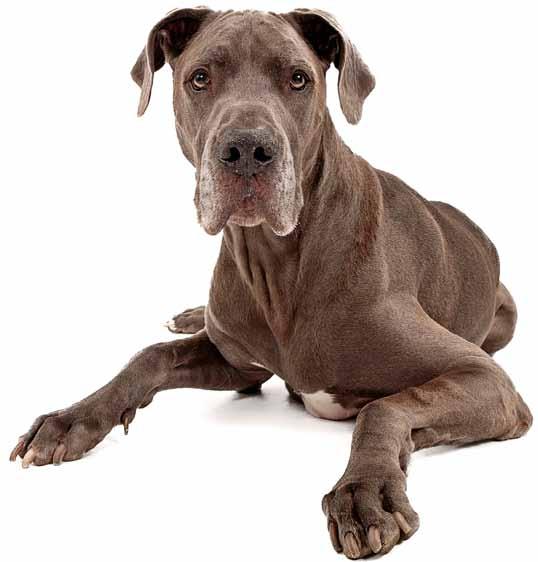
And when it comes to something urgent, our critical care veterinarians are available 24/7, armed with all the life-saving discoveries we’ve pioneered right here.
Find our ER and easy parking at 39th & Spruce Streets in Philadelphia.
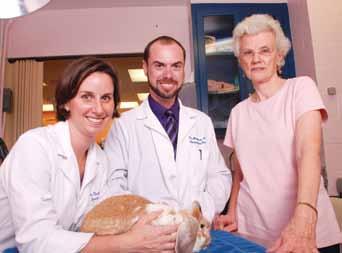
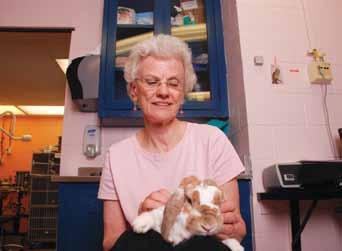 B Y A NNAMARIE S ARACINO
B Y A NNAMARIE S ARACINO
Avicious cycle…that’s the only way I can describe the course of DeWabbit’s recurring dental disease,” said Gwen Coronway, parent to the disease-prone Holland lop-eared rabbit.
The cycle began in April 2009 when Gwen noticed a fluid-laden puncture forming in DeWabbit’s left cheek, which persisted.
“I’ve been a pet owner for a very long time, and I’ve never witnessed this type of problem in any of my other four rabbits,” said Gwen, who was surprised to learn that dental disease was common to this type of rabbit breed. “DeWabbit never showed any symptoms of discomfort or pain, but the main cause for concern was the fact that he wasn’t eating,” she said.
DeWabbit’s sore persisted and he was losing weight so Gwen sought the help of her primary care veterinarian.
There, DeWabbit’s teeth were trimmed and his abscesses were treated with surgical debridement. An antibiotic and
topical antibiotic cream to prevent further infection were prescribed.
DeWabbit made progress, and, after a few months, had gained back the weight he’d lost.
But in July 2010, the wound reopened, his weight dropped severely and Gwen noticed stark behavior changes.
“I knew something was wrong again when he wasn’t eating; he was acting very strangely,” said Gwen. “He wasn’t hanging around the usual places you would see him in and just seemed to be extremely depressed.”
After a return trip to his local vet, DeWabbit was again treated with the same course of fluids and antibiotics.
Six months later, however, his symptoms were back and it was suggested that the rabbit might need surgery.
Post-surgery, De Wabbit was healing nicely until two abscesses appeared on the outside of the rabbit’s lower
continued on page 48
Reptiles, birds, ferrets, rabbits and other small companion animals have a new name at Ryan Hospital — Exotic Companion Animals. Formerly, these animals were known as “special species” and owners would make appointments with the Special Species Medicine and Surgery Section. Now, owners and referring vets will be bringing and sending these animals to the Exotic Companion Animal Medicine and Surgery Service.
“We wanted to change the section name to something that was a little more straightforward,” said Nicole Wyre, DVM recently appointed section chief. “We think this new name will speak to everyone who owns these kinds of companion animals and be a little less ambiguous than ‘Special Species.’ And, of course, our clients and their pets will still receive the best level of animal care that they’ve come to expect from our hospital.”
Updating the section name was just one of Dr. Wyre’s first matters of business. She also has big plans for extending appointment hours, recharging the section’s internship and residency programs and adding new leadership to her team.
The Exotic Companion Animal Medicine and Surgery Service is the first at Ryan Hospital to extend appointment hours to seven days a week.
“The main focus in extending daily and weekend hours is client convenience,” said La’Toya Latney, DVM, staff clinician in the service. “If clients are in a pinch, they know where they can take their animal. There is a deficit in the veterinary care community regarding extended hours, especially for these species of animals, and it is up to us to try to accommodate clients and patients.”
These extended hours mean more access for avian and exotic pet owners, but it also means more access to these kinds of pets for all certified veterinary technicians, interns, residents and students at Ryan Hospital, each of
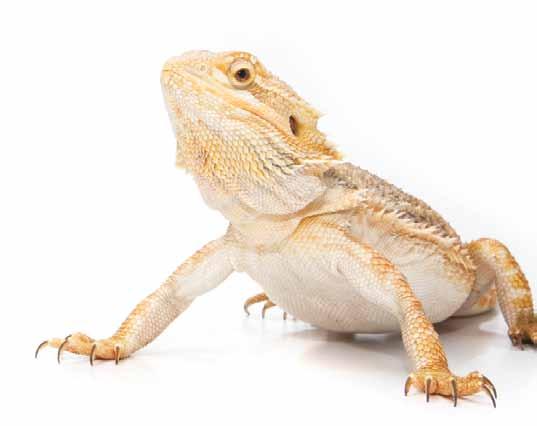
whom will be trained by Dr. Wyre’s team to properly handle and care for these sensitive patients.
“It’s a matter of safety for our staff, and most importantly the animals being handled,” said Dr. Wyre. In addition, the wider exposure to avian and exotic species will provide an opportunity for students to explore a specialty in this area of veterinary medicine.
The internship program will also become more substantial under Dr. Wyre’s leadership and will include weekly rounds, journal discussions and advanced, hands-on learning of rotations through local aquariums, wildlife institutions and zoos.
“We will be revamping our rounds scheduling to increase our interns’ ability to have hands-on experience working with these species,” said Dr. Wyre, “and we’ll be offering additional learning opportunities through traveling to other hospitals, aquariums, rescue organizations and zoos.”
New leadership in the renamed section makes big plans to better serve patients and students
B Y A NNAMARIE S ARACINO
In addition to bringing two interns, Drs. Colin McDermott and Susan Pello, onboard, a residency program is another of Dr. Wyre’s priorities.
The American College of Zoologic Medicine Zoologic Companion Animal Residency will be a three-year program with focuses on avian medicine and surgery, reptile medicine and surgery, small mammals and exotics case studies, all of which will allow for evidencebased approaches to exotic species studies. Dr. Wyre is advocating for this program to be part of the school’s core curriculum rather than electives.
“With exotics becoming more popular pets, I feel that every veterinarian and technician should know the basics of handling and treating exotic companion animals,” said Dr. Wyre.

This quarter Dr. Wyre is giving lectures to the first-year students in the Introduction to Clinical Veterinary Medicine course and both Dr. Latney and Dr. Wyre will be course leaders for four elective exotic courses for the thirdyear students, offering early and continuing exposure to working with these species of animals.
“Along with the important research aspect that Dr. Latney is bringing to the table, we will be ahead of the game through being able to apply clinical research and have the ability to advance veterinary medicine,” said Dr. Wyre.
As far as she can remember, Dr. La’Toya Latney has always been fascinated with reptiles and exotic animals. As a result, Dr. Latney pursued an undergraduate degree in biological sciences from Cornell University, and later attended Ross Veterinary School in New Brunswick, NJ where she earned her DVM. Next was an internship at the Island Exotic Veterinary Care in Huntington Station, NY. In 2008, Dr. Latney joined the special species service as a resident. “I get excited about going into work and witnessing the enthusiasm that clients have for their pets,” said Dr. Latney. Dr. Latney is working on her master’s in clinical epidemiology and conducting a clinical trial that helps measure reptile pain through the VCIC. Currently, she is on appointments by request, but will be re-joining us full-time after the completion of her degree.

Dr. Christopher Montgomery found his passion for avian and exotic animal medicine while growing up on a farm in Louisiana. “I grew up surrounded by a plethora of animals, and I always wanted to work with the ones that no one really knew anything about,” said Dr. Montgomery. After earning his undergraduate degree in biochemistry and zoology at Louisiana State University, Dr. Montgomery spent four years at LSU’s School of Veterinary Medicine and then completed an externship at the Baton Rouge Zoo in the Avian and Exotics Program. Next for Dr. Montgomery was a few years in private practice, followed by a Zoo Medicine and Surgery Residency at the Philadelphia Zoo. From there, Dr. Montgomery joined Penn Vet’s Ryan Hospital as a staff vet. “It’s a constant, daily challenge,” said Dr. Montgomery of his work at Ryan Hospital.
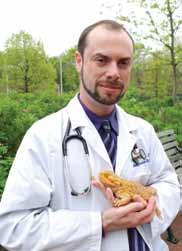
Leading the charge of the service, Dr. Nicole Wyre received her DVM from Virginia-Maryland Regional College of Veterinary Medicine. She then completed the Avian and Exotic Residency Program at New York’s Animal Medical Center, after which she joined Penn Vet as a lecturer. After just a few months in that role, however, Dr. Wyre had an opportunity to move to Hong Kong to serve as a consultant at a small animal and exotics practice, which she seized. This spring, because she missed teaching, Dr. Wyre came back to Penn Vet, this time taking the role of section chief in the Exotic Companion Animal Medicine and Surgery Service. “If you teach one person, they can spread the word on to others,” she said.

Currently, the Exotic Companion Animal Medicine and Surgery Service includes three full-time specialists, two interns and numerous students.
There are many kinds of cancers of the immune system, but one, Activated B-Cell Diffuse Large B-Cell Lymphoma, or ABC-DLBCL, is particularly common and pernicious.
Researchers at Penn Vet have shown for the first time that dogs that develop this disease spontaneously share the same aberrant activation of a critical intracellular pathway with humans with ABC-DLBCL.
They also found that a drug designed to disrupt this pathway helps to kill tumor cells in the dogs’ cancerous lymph nodes.
The research was conducted by Nicola Mason, PhD, assistant professor of medicine at Penn Vet, along with Michael J. May, PhD, associate professor of pharmacology; postdoctoral fellow Anita GaurnierHausser, PhD; and veterinary clinical pathologist Reema Patel, DVM.
Their work was published in the May issue of the journal Clinical Cancer Research.
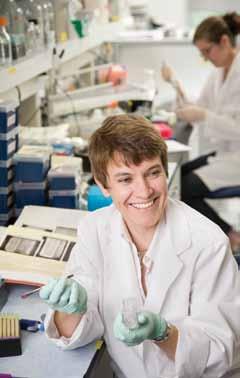
B-cells are the part of the immune system that produce antibodies and protect the body against invading microorganisms. In ABCDLBCL, the normally tightly regulated intracellular signaling pathway involved in B-cell activation and proliferation is, as the name of the disease suggests, constantly activated.
“This signaling pathway, called NF-kappaB, is critical in immune function; following an encounter with antigen, lymphocytes need to be activated and proliferate so that there are sufficient numbers to deal with the invading organism,” Dr.
Mason said. “But in humans with ABC-DLBCL, and also in dogs with spontaneous DLBCL, this pathway is constitutively active and drives lymphocytes to proliferate continuously.“
Moreover, these malignant B-cells are resistant to apoptosis, or cell death. Their unchecked growth is the basis of the lymph node tumors that are a hallmark of the disease.

For many years, researchers have been investigating ways of interrupting the malfunctioning pathway that forms the tumors and provides resistance to chemotherapy-induced cell death. In order to test whether a canine model for inhibitors would have relevance to cancer treatment in humans, the Penn team first showed that the same aberrant activation of the NF-kappaB pathway exists in dogs.
They then went on to demonstrate that inhibition of this pathway using a drug known as NEMO Binding Domain, or NBD, peptide led to increased cell death of malignant lymphocytes in a laboratory setting. The next step was to determine whether this peptide could similarly inhibit NF-kappaB activity when used in the dogs with the disease.
Treatment of DLBCL in dogs is similar to humans; in most cases, the cancer initially responds well to chemotherapy, but patients frequently relapse with drugresistant disease. The five-year survival prognosis for humans with ABC-DLBCL is about 50 percent, but in dogs the survival rate is much worse, with more than 85 percent of dogs relapsing within the first year and the majority succumbing to their disease during the first or second round of rescue chemotherapy.
Having determined the presence of aberrant pathway activity in the dogs with spontaneous DLBCL and that inhibition of this pathway can lead to increased malignant cell death, the researchers performed a small pilot trial to determine the efficacy of the NBD peptide in dogs that had relapsed with drug resistant lymphoma.
The results were encouraging.
“We injected one malignant lymph node with the NBD peptide and followed up with chemotherapy. One week after a single dose of peptide, the lymph node we injected was a lot smaller than the other cancerous lymph nodes,” Dr. Mason said. “This suggests that the peptide either acts alone or synergistically with rescue chemotherapy to kill the tumor cells.”
Testing the peptide in a live animal model, rather than in tumor cells taken from cell lines in a Petri dish, accelerates the prospects of this research leading to clinical treatments for both dogs and humans.
“The identification of a comparable molecular pathogenesis of ABC-DLBCL between dogs and humans, coupled with our ability to investigate the therapeutic benefit of targeting this aberrant NF-kappaB pathway in a clinically relevant, large animal model is a great example of the ‘bench to bedside’ paradigm of translational medicine,” Dr. Mason said. “It’s been over 10 years since this pathway was recognized in ABC-DLBCL in humans; however, this is the first indication that specific inhibition of this pathway may have a beneficial effect in human and canine patients with this disease.”
Dr. Mason and her colleagues are now testing whether the peptide is systemically effective when administered intravenously. Demonstration of safety and therapeutic success in this trial could not only pave the way to a novel approach to the treatment of this disease in pet dogs but also could lead to clinical trials in humans with this type of lymphoma.
The research was supported by the National Institutes of Health, American Cancer Society, Mari Lowe Center for Comparative Oncology and American Kennel Club’s Canine Health Foundation.
Foundation Fighting Blindness has awarded Penn Vet Professor of Medical Genetics and Ophthalmology
Gustavo D. Aguirre, VMD, PhD with a $230,000 grant to continue the Penn Large Animal Model Translational and Research Facility.
David Artis, PhD, associate professor, has received two National Institutes of Health grants (Regulation of protective immunity following enteric viral infection and Regulation and function of innate lymphoid cells).
The National Institutes of Health has granted Peter J. Felsburg, VMD, PhD a $626,059 grant to study gene therapy for canine X-lined SCID.
Dr. Ronald N. Harty, associate professor of microbiology, has been awarded a two-year (July 2011 - June 2013) Developmental Research Grant from the NIH Middle Atlantic Regional Center of Excellence (MARCE) for Biodefense and Emerging Infectious Disease Research. His application was entitled “Novel FLIM-Based Optical Measurements of Filovirus Budding Mechanisms” and was one of four selected for funding
out of a total of 40 applications. Dr. Bruce Freedman, associate professor of pathobiology is a co-primary investigator.
Christopher Hunter, PhD, chairman of the Department of Pathobiology and Tajie Harris, PhD, postdoctoral fellow at Penn Vet, were awarded a National Institutes of Health grant to study the role of chemokines in the T cell response to ocular toxoplasmosis.
Diane J. Gaertner, DVM, professor in the Department of Pathobiology, has been awarded a five-year grant from the National Institutes of Health/National Center for Research Resources for “Translational Research and Laboratory Animal Medicine Education for Veterinarians.”
The United Mitochondrial Disease Foundation (UMDF) has awarded Penn Vet Assistant Professor Brett A. Kaufman a $120,000 grant to study the role that mtDNA copy number control plays in the development of disease.
Dr. Kaufman’s grant was also selected for the UMDF Chairman’s Award for the top grant this year.
Dr. Charles Vite, assistant professor, received $100,000 in funding from the National Niemann-Pick Disease Foundation.
Lee Y-H. and Saint-Jeannet J-P. (2011). Cardiac neural crest is dispensable for outflow tract septation in Xenopus (2011) Development 138: 2025-2034. (Also featured in Science Daily, April 23, 2011.)
Okumura, A. and Harty, R.N. Rabies virus assembly and budding. In: Research Advances in Rabies (Alan Jackson, Ed.), Advances in Virus Research, Elsevier, Vol. 79, pgs 23-32, 2011.
Kuznetsova, T., Zangerl, B., Goldstein, O., Acland, G.M., Aguirre, G.D. Structural organization and expression pattern of the canine RPGRIP1 isoforms in retinal tissue Invest Ophthalmol Vis Sci 52:2989-2998, 2011.
Eroshin, V.E., Reiter, A.M., Rosenthal, K., Fordham, M., Latney, L., Brown, S., Lewis, J.R. Oral disease in a population of rescued ferrets: clinical examination findings. J Vet Dent, 2011, 28:8-15.
Mark C. Siracusa, Steven A. Saenz, David A. Hill, Brian S. Kim, Mark B. Headley, Travis A. Doering, E. John Wherry, Heidi K. Jessup, Lori A. Siegel, Taku Kambayashi, Emily C. Dudek, Masato Kubo, Antonella Cianferoni, Jonathan M. Spergel, Steven F. Ziegler, Michael R. Comeau and David Artis (2011). “TSLP promotes interleukin-3-independent basophil haematopoiesis and type 2 inflammation.” Nature
Yuliang Liu, Sasha Stone, and Ronald N. Harty, (2011), “Characterization of Filovirus Protein-Protein Interactions in Mammalian Cells Using Bimolecular Complementation,” Journal of Infectious Diseases, 204(6) (online August 16).
Recognizing that “every animal is attached to a person, and every person is an individual with a myriad of vested interests in this animal,” Judy Shekmar, V’76 wanted to be a veterinarian.
After completing a biology degree at Rosemont College, she took a job with Theodore V Yuhas, V’56 first in Ardmore and later after the practice moved to become the Bryn Mawr Veterinary Hospital, in Bryn Mawr, Pennsylvania. Her duties traversed all aspects of running a veterinary hospital from receptionist, surgical assistant, bookkeeper, as well as kennel duties and grooming
“People thought I was crazy for pursuing veterinary medicine when my girlfriends were becoming mothers, nurses and teachers,” she said. “Dr. Yuhas would take me to Penn’s Veterinary Hospital whenever possible for me to watch and learn. Lilian Giuliani, V’57 also was a huge influence for me at that time.”
Steven Cantner, V’76, conversely, attended Lafayette College and found a path to research first.
“A lot of veterinarians I know knew they wanted to be a vet. I had the desire a bit, growing up in a rural area. I was intrigued by everything around me. College originally swept me up in research, but I soon found it narrow and it bored me. Luckily, Penn has always had a philosophy of fostering a variety of interests.”
One of those interests was Judy, and in the fall of 1972 both Judy and Steve began their professional journey at Penn Vet, and they also found love and each other.
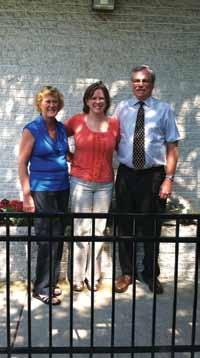
Judy and Steve married after graduation and in January 1979 welcomed the first of four daughters. They soon bought Bryn Mawr Veterinary Hospital and Judy recounts, “In those days, we just figured out what we wanted and did it. Becoming practice owners and parents simultaneously was monumental.”
“I remember that my sisters and I literally grew up in the hospital,” said Caroline, their first daughter. “We used to put stamps on the bills, clean the kennels and sit with the dogs after surgery – the hallway would be lined with dogs and daughters.“
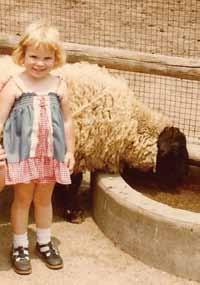
Today, all of the Cantner children have benefited from their parents’ tenacity and enthusiasm. Second daughter Christine achieved a doctorate in psychology; third daughter Kathleen finished a master’s degree in oceanography; and fourth daughter Stephanie is pursuing a career in real estate. But it was first daughter Caroline that caught the veterinary bug.
Originally, Caroline Cantner, V11 studied government and sociology at Dartmouth, and planned a career in education policy or law. Caroline completed a two-year stint with AmeriCorps, and then also worked with a Pennsylvania state senator for several years – all while continuing working on the weekends at Bryn Mawr Veterinary Hospital.
continued on page 50
“every animal is attached to a person, and every person is an individual with a myriad of vested interests in this animal”
– Judy Shekmar, V’76
Dr. Jill Beech, the Georgia and Philip Hofmann Professor of Medicine at New Bolton Center, retired this summer after 39 years of dedicated service to Penn Vet.
Drs. Ken Drobatz, director of emergency services and professor of critical care, Urs Giger, director of the Metabolic Genetics Screening Laboratory; Meg Sleeper, chief, section of cardiology, Nicola Mason, assistant professor of medicine and pathobiology; Mark Oyama, professor, Department of Clinical Studies – Philadelphia; Erica Reineke, assistant professor of emergency and critical care; Deb Silverstein, assistant professor, Department of Clinical Studies — Philadelphia; and Charles Vite, assistant professor, neurology and neurosurgery, were invited to speak the ACVIM Forum in June 2011. At the meeting, Penn Vet residents in small animal internal medicine and cardiology also gave research presentations.
At the annual conference of AVMA in St. Louis this past July, Penn Vet’s Emeritus Professor of Medicine and Medical Genetics Donald F Patterson received the 2011 AVMA Lifetime Excellence in Research Award for his research on hereditary disorders in companion animals and comparative genetics. In addition, Drs. Meg Sleeper and Urs Giger were invited speakers.
Dr. Urs Giger was invited by the China Agricultural University, China’s Animal Science and Veterinary Medical Associations and Hong Kong’s Veterinary Association to lecture on clinical hematology and genetics in companion animals in Beijing, Urumqi, Shanghai and Hong Kong in July 2011.

Ms. Patricia Hall, development coordinator for New Bolton Center, retired this spring after 18 years of dedicated to service to Penn Vet.
Mark Haskins, VMD, MS, PhD, professor of pathology at


Distinguished Service in recognition of his longstanding dedication to the School and his role in educating students, mentoring faculty and advising administrators.

When presenting the award to Dr. Haskins, Dean Joan C. Hendricks said, “[Dr. Haskins’] generous and principled dedication to the profession and to the School are unparalleled. You never hesitate to share your experience, your wise counsel, and your strong advocacy when you identify a way you can have a positive impact. You are
in your assessment of all sides of a question or issue. Through the years, legions of students have participated in your hands-on care for the dogs and cats with inherited diseases who form the basis for your research program. They have seen for themselves what an impact a caring, compassionate veterinarian can have on the lives of animals — both those who are in the research
Mr. Barry Haines, director of facilities at New Bolton Center for 33 years, retired this summer after 33 years of dedicated service to Penn Vet.
Dr. Ronald N. Harty, associate professor of microbiology, was invited to serve as lead guest editor of a special issue of the journal Advances in Virology on the topic of virus budding/host interactions.
In July, Dr. Christopher A. Hunter, chairman of the Department of Pathobiology at Penn Vet, along with Dr. Terri M. Laufer, associate professor of medicine at the Perelman School of Medicine, in conjunction with The American Associate of Immunologists, offered an Introductory Course in Immunology.
Dr. Candace Jacobson, who recently completed her residency in large animal reproduction, successfully passed the certifying examination of the American College of Theriogenologists (ACT) and is now a Diplomate of the ACT.
Ms. Jennifer Lucas has been named director of finance for Ryan Hospital.

pleasure to have the opportunity to express my personal gratitude to you for lending the full force of your personality to improving your School.”
Dr. Wilfried Mai has been promoted to associate professor of radiology, Department of Clinical Studies –Philadelphia.
 Dr. Urs Giger
Dr. Ronald Harty
Dr. Christopher Hunter
Ms. Jennifer Lucas
Dr. Urs Giger
Dr. Ronald Harty
Dr. Christopher Hunter
Ms. Jennifer Lucas
Ms. Rachael Mant has joined the sports medicine and imaging team at New Bolton Center. In this role, Rachael’s primary responsibility is working in the Equine Performance Center and Treadmill as a technician.
Dr. Michael May was promoted to associate professor of pharmacology in the Department of Animal Biology.

Mr. Kevin McBride joined Penn Vet as business administrator for Ryan Hospital.
Dr. Kathryn E. Michel has been promoted to professor of nutrition, Department of Clinical Studies – Philadelphia.

Dr. James Orsini, associate professor at New Bolton Center, was named to the International Equine Veterinarians Hall of Fame.
Dr. Cynthia M Otto, associate professor of critical care and director of the Penn Vet Working Dog Center, was featured in an Animal Planet documentary about the Hero Dogs of 9/11.
Dr. Mark Oyama presented lectures at the Advances in Canine Mitral Valve Disease meeting in Cremona, Italy in Sept 23-24, 2011. The two-day seminar was sponsored by the Italian Companion Animal Veterinary Association, Italian Society of Veterinary Cardiology and the European Society of Veterinary Cardiology. Dr. Oyama was also on the scientific program committee as well as a speaker for the Human and Veterinary Crosstalk Symposium on Cardiology in Bordeaux, France Oct 1-2, 2011 as well as an invited speaker at the World Feline Veterinary Conference in Boston about feline cardiac biomarkers Sept 8-11, 2011. Recently, Dr. Oyama was been promoted to professor of cardiology, Department of Clinical Studies – Philadelphia.
Dr. Thomas Parsons, associate professor and director of the Swine Teaching and Research Center at Penn Vet’s New Bolton Center, was recently honored by The New York Farmers, Inc. at the group’s annual spring dinner in New York City where he was presented with The Farmers Medal for outstanding achievement in agriculture.
Dr. Jean-Pierre Saint-Jeannet was promoted to professor for developmental biology in the Department of Animal Biology.


Dr. Jantra Suran, lecturer of radiology, was selected as the winner of the American College of Veterinary Radiology Resident Author Award this year for her paper titled “Contrast Enhancement of Extradural Compressive Material on Magnetic Resonance Imaging,” which was published in the January 2011 issue of the journal Veterinary Radiology and Ultrasound
Penn Vet is seeking nominations for the 2011 Alumni Award of Merit and other awards for distinguished Penn Vet alumni. Alumni include matriculating graduates, as well as interns, residents and postdoctoral fellows.
To be presented at the Penn Annual Conference in March 2012, these awards are given to alumni that have made outstanding contributions to their profession and to the School. Awards are given annually to recognize distinguished graduates for
their contributions that advance knowledge in biomedicine, promote the welfare of animals through public education of animal owners and benefit society through civic activities that foster the advancement of the profession and the School’s good name.
Please forward your nominations to Jillian Marcussen, director of stewardship and special projects, at 215.898.4235 or jillian2@vet.upenn.edu with a statement of support for each candidate.
Ms. Rachael Mant Dr. Oriol Sunyer Dr. Regina TurnerWorlds Awards continued from page 13
relief around the country. The system, dubbed The Rehabilitation and Emergency COmputerized Veterinary Records (RECOVER) system, will utilize an easy-to-use interface, real-time data entry, and an animal monitoring component that will improve workflow, and have the capability to connect on-the-ground responders with caretakers based elsewhere, outside of the disaster zone. The project is the perfect marriage of Dr. Lustgarten’s solid background in innovative technology and growing expertise in veterinary medicine.
The idea for RECOVER was borne from a conversation that Dr. Lustgarten had with Erica Miller, DVM, staff veterinarian for Tri-State Bird Rescue in Delaware. Talking about disaster recovery, Dr. Lustgarten became aware of the tremendous task of in-taking wildlife, treating the animals and then releasing them back into the wild.
“There are thousands of sheets of paper generated per day, making a command control view across various rescue sites difficult, and the management of and understanding following a disaster challenging,” said Dr. Lustgarten. “It seemed to me a great opportunity to test out some of the methods that human medicine is using in an environment where there is no prior system, taking advantage of the capabilities of smart phones, tablets and technology.”
March 6, 2012 through March 9, 2012
PennHIP – Tuesday, March 6, 2012
Full Conference – Wednesday and Thursday, March 7 and 8, 2012
Wet Labs – Friday, March 9, 2012
Sheraton Philadelphia
City Center Hotel, Philadelphia, PA
Come be a part of Penn Vet’s annual continuing education conference with access to more than 1,000 practicing animal health care providers of all specialties, in addition to veterinary technicians and students. Enjoy a variety of sponsorships and exhibitor opportunities to allow optimal time and marketing with our participants.
In addition to the value such a system would offer for record keeping and sharing of information about patients, it can also be used in the field, in real time, to monitor infectious outbreaks.
“This is a first attempt to address the needs of veterinarians at disasters, to have real time information that is correct, and for rescue shelter managers to handle intake/release of animals and supplies at the same time,” he said.
The data gathered would also make available a vast amount of information for researchers worldwide.
“My aspiration is to bring veterinary medicine forward from where it is now by incorporating advanced technology,” said Dr. Lustgarten. “Human information for translational science can then be incorporated.”
As a caveat, Dr. Lustgarten adds that there are many steps before that can actually happen, but he is dedicated to seeing this initiative through.
“This can go almost anywhere,” said Dr. Lustgarten. “My goal is that anything that I do lasts beyond me. The nice part is that if I do it right in veterinary medicine, then I have the evidence I need to apply it to human medicine. That’s a linear step.”
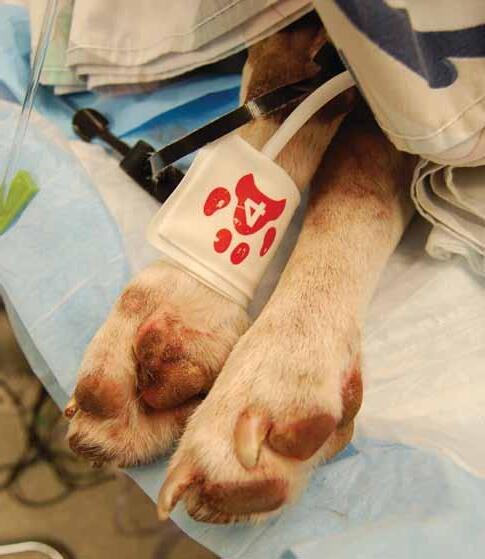
continued from page 39
jaw. It became clear that the rabbit would need surgical debridement and implanted antibiotic beads for continued treatment.
Gwen made a call to Penn Vet’s Ryan Hospital and prepared for an appointment with Chris Montgomery, DVM, attending clinician in the Exotic Companion Animal Medicine and Surgery Service in order to consider all available options.
“DeWabbit’s case of dental disease was severe, but not uncommon in this type of rabbit,” said Dr. Montgomery, who examined the rabbit.
DeWabbit’s blood work came back normal, so, in order to pinpoint the exact cause of the painful repeat abscesses, Dr. Montgomery ordered a CT scan, which uncovered the cause: DeWabbit had retained roots in his teeth. To fix the problem, surgery would be necessary.
Under the close attention and care of Nicole Wyre, DVM, chief, Exotic Companion Animal Medicine and Surgery Service, and Jeffrey Runge, DVM lecturer of surgery, DeWabbit received a partial mandibulectomy. His facial abscesses were removed as were the retained mandibular tooth roots. Dr. Runge implanted antibiotic beads to help the rabbit heal post-surgery and, after observation in the ICU through the night, an all-clear for release was granted by Dr. Wyre. DeWabbit went home.
A full recovery is expected, but it’s possible that DeWabbit’s dental disease could spread. As a result, he will need to be routinely examined for the possibility of the disease spreading to the right side of his mouth.
“I have recently come to terms with the fact that DeWabbit will have this disease for the rest of his life, but the quality of his life is very important to me,” said Gwen. “I will do everything in my power to make sure he enjoys his.”
at
and enthusiasts the first Tuesday of each month at Penn Vet’s New Bolton Center.
November 1, 2011
Michelle Abraham, DVM
Managing the high-risk pregnancy: broodmares in the third trimester

December 6, 2011
Joanne Slack, DVM DACVIM
Ultrasound exams in the 21st century
January 3, 2012
Melissa McKinnon, DVM
Bone scans: Nuclear Scintigraphy and your horse
February 7, 2012
Janet Johnson, DVM, DACVIM, DACVS
Colic in 3D – The Glass Horse
March 6, 2012
Suzanne Stewart, DVM
Suspensory ligament disease in the performance horse
April 3, 2012
Louise Southwood DVM, PhD
It’s 10 p.m. and my horse isn’t right: When is it an emergency?
Though the lectures are free, seating is limited. To reserve a seat, please RSVP to vetpr@vet.upenn.edu. Lectures will be held at New Bolton Center, in the Alumni Hall from 6:307:30 pm. This schedule is subject to change. Please check the website for the most current schedule information: http://www. vet.upenn.edu/FirstTuesdays.
For the most recent alumni updates visit www.vet.upenn.edu/alumniclassnotes
1940s
Jack Robbins (V’45), the last remaining founding director of the Oak Tree Racing Association in California, stepped down as the organization’s president and assumed the chairmanship of the board of directors in May 2011.
1960s
The Class of 1961, under the direction of classmates Don Abt, Don Abrutyn and Dick Smalley, created and produced the Class of 1961 – 2011 Scalpel, which was provided to all classmates to celebrate the 50th reunion.
As part of its Good Works For Horses Campaign, the American Association of Equine Practitioners (AAEP) has named Ron Genovese (V’64) the July 2011 honoree for helping therapeutic riding horses at Fieldstone Farm Therapeutic Riding Center in Chagrin Falls, Ohio, stay on their feet. About once a month, ailing horses from the clinic are brought to the clinic for diagnostic work-ups and therapy at reduced prices.
1970s
Jean Cunningham Smith (V’70) provided an interview and chapter called “Your Puppy’s First Visit to the Vet,” in the 2010 book The Golden Retriever Puppy Handbook, written by R. Ann Johnson and published by the Darwin Press, Inc.
Lawrence Gerson (V’75), provides veterinary support to the non-profit organization Allegheny Abused Animal Relief Fund (AAARF!), which was formed 10 years ago to provide public funding for medical and other costs associated with the care of abused and neglected animals. With Dr. Gerson serving as the clinical lead, AAARF! approves payment to shelters, veterinarians, rescue groups and individuals who request funding for stray and abused animals to cover costs of care and medical needs on a case-by-case basis.
1980s
Steven W. Atwood (V’80), MD, MPH, MRCVS, received a master of public health (MPH) degree in public health practice from the University of Massachusetts Medical School and School of Public Health on May 13, 2011. His master’s thesis was titled “The State of Umbilical Cord Blood Banking, Umbilical Stem Cell Transplantation and Public Health Implications.”
Dr. Atwood was also recently elected co-chair of the Veterinary Medicine Academy of the National Academies of Practice, an organization of distinguished practitioners representing 10 different healthcare professions, working
together to advance coordinated, accountable, accessible healthcare for all.
The Morris Animal Foundation recently awarded $64,217 to Noah Cohen (C’79, V’83), MPH, PhD, Dipl. ACVIM, professor at the Texas A&M College of Veterinary Medicine & Biomedical Sciences (CVM) over the period of two years for his research on “Recognizing Age-related Differences in Immune Response of Foals.”
Jeff Meyer (V’83), owner of Granville Small Animal Hospital in Middle Granville, New York, along with wife Lynn and the practice staff, has been hailed by clients as a compassionate provider of care to small animals.
A veterinarian who specializes in animals used in biomedical research, Neil Lipman (V’84) ensures the welfare of the Memorial Sloan Kettering Center’s research animals. As director of the Research Animal Resource Center, he has expanded facilities, technology and services to help Memorial Sloan-Kettering investigators drive their research forward.
Monique Y. Wells (C’81, V’85) is co-founder of Discover Paris! (www.discoverparis.net) and the creator of Entrée to Black Paris™ tours and activities (www. discoverparis.net/african_americans.html). These walks and presentations provide an historical and a contemporary view of the black experience in Paris.
Robert M. Thompson, Jr. (V’85), owner of Lums Pond Animal Hospital in Bear, Delaware, was named the 2010 H. Wesley Towers Veterinarian of the Year by the Delaware Veterinary Medical Association.
Rotary Club of West Orange, New Jersey, of which Dorie Cappiello (V’86) serves as past president, works to support college scholarships, provides every third grader in West Orange with a dictionary, funds local summer camps for disabled children, supports the WO First Aid Squad and local food banks as well as many other local community organizations.
Steve Wolfson (V’88), now retired from his position as university veterinarian at Arizona State University, volunteers his time at the Humane Society of New York in New York City.
1990s
Michael R. Moyer (V’90) assumed the 2011-2012 American Animal Hospital Association presidency during the joint AAHA/Ontario VMA conference in Toronto in March 2011. In addition, Dr. Moyer was honored in September 2011 with the Delaware County SPCA Animal Welfare Leadership Award.
continued from page 44
Thinking that medicine might be a next step, she enrolled in the post-baccalaureate program at Bryn Mawr College. During this time, it was through volunteering at the Thorncroft Riding Center in Malvern, Pennsylvania that her parent’s legacy of veterinary medicine came alive in her.
“The riding center reinforced the amazing interaction between animals and people,” she said.
With the flexibility of Penn Vet’s alternative track, Caroline applied to Penn Vet, her parents’ alma mater. “What’s great about the open (student) admissions is that people come from a variety of backgrounds and career tracks. Many have a lot of life experience.”
Four years later, in May of 2011, Judy Shekmar, V’76 and Steven Cantner, V’76, presented their first daughter
with her diploma at Penn Vet’s 2011 Commencement exercises and she joined them as a Veterinariae Medicinae Doctoris.
Judy and Steve are immensely proud of the profession they found separately, and the life they found together.
Judy recounts, “Steve and I have had exceptional veterinary careers and have managed to combine our love of veterinary medicine with our love of children and family. We feel very loyal to Penn and proud of our education and the life-long relationships, which we established through veterinary medicine.”

Jaime V. Modiano (V’91, GR’91), laboratory principal investigator at University of Minnesota, discovered a gene pattern that distinguishes the more severe form of bone cancer from a less aggressive form in dogs. Dogs are the only other species besides humans that frequently and spontaneously develop this disease. The study was funded by the National Cancer Institute, the AKC Canine Health Foundation and the Kate Koogler Canine Cancer Fund.
Lisa Cawley (V’92) opened the Christmas City Veterinary Hospital in Bethlehem, Pennsylvania in June 2011.
Jennifer MacLeod (V’99), DACVS of the Veterinary Specialty and Emergency Center in Langhorne, Pennsylvania completed surgery on a three-month-old piglet that was hit by a car, which required several pins and a screw implanted into her fore-limb. Christopher Keefe (V’97), handled the post-operative care of Charlotte the pig at Creek’s Edge Animal Hospital in Hainesport, Pennsylvania.
Anna Marie Lange (V’99) of Berlin, Maryland, opened a veterinary house-call service, A. Lange Integrative Veterinary Medicine, LLC, in March 2011, which integrates western and eastern medicine.
Ellen Wiedner (V’99) is a staff veterinarian at the Los Angeles Zoo and Botanical Gardens.
performed five hours of ankle stabilization surgery using a new device, vacuum assisted closure.
Karen O’Connor (V’04) married Bart Knoch on March 4, 2011.
Mary K. Coughlin (V’05) who works at Perkiomen Animal Hospital in Palm, Pennsylvania, was the winner in a drawing called “Win a Cold Laser for your Alma Mater” by Companion Therapy Laser at the NAVC Conference in January 2011. Subsequently, Ryan Hospital received a companion class IV therapy laser in June 2011. Thank you, Dr. Coughlin!
Kirk Breuninger (V’10), who served as class president and vice-president for SCAVMA while at Penn Vet, is applying to the Peace Corps to volunteer for an animal husbandry mission, the goal of which is to enhance farm families’ nutrition and household income through better land-use and management techniques in developing countries. Kirk also is the recipient of the 2009 George B. Wolff Legislative Leadership Award from the Pennsylvania Veterinary Medical Association.
Thomas Nebzydoski (V’10) returned to Pennsylvania from a one-year internship in farm animal medicine and training at the Ohio State University to join his father, Henry Nebzydoski (V’72) and sister Beth Spinelli (V’02) in a mixed-animal veterinary practice in Pleasant Mount at the Carbondale Veterinary Hospital.
Mathieu Glassman (V’04) DACVS recently joined the Friendship Hospital for Animals in Washington, DC as Chief Surgeon. The hospital has gained attention for recently waiving the surgical bill through its donationbased fund of a US marine whose four-year-old pit bull sustained a traumatic leg injury. Dr. Glassman had
Have you received a promotion, gotten married, had a baby or received an award? Have you volunteered somewhere special, moved into a new building, ventured into a new business or discovered the cure
news to include in the CLASS NOTES section of the Bellwether and the vet.upenn.edu website. All residents, interns and fellows are also invited to share!
Forward all alumni news to Jillian Marcussen, director of stewardship and special projects, at jillian2@vet.upenn.
Street, Suite 172 E, Philadelphia, PA 19104.
1936 Leonard H. Sherman on June 23, 2011.
1944 Bernard Zackon on October 3, 2009.
1949 Arthur Fulton Morrison on May 16, 2011.
1949 Norma B. Menghetti on August 19, 2011.
1954 Norman Dale Heidelbaugh on January 28, 2011.
1955 Elmer H. Lerner on June 27, 2011.
1961 Peter Laffan on April 8, 2011.
1982 Stephen Woodard on January 13, 2011.
1992 Stephanie Marie Imperatore on May 14, 2011.
Penn Veterinary Medicine
3800 Spruce Street
Nonprofit
Philadelphia, PA Permit No. 2563
Penn Vet is proud to print Bellwether paper, which supports the growth of responsible forest management worldwide through its international standards.
calendar For
OCTOBER 2011
Wednesday Exchange, bi-monthly professional education opportunity for primary care veterinarians
“Pediatrics and Vaccine Protocols”
Ryan Hospital, Philadelphia, PA
Presented by Dr. Magi Casal, Medical Genetics
October 20 and 21, 2011
Equine Reproduction and Behavior Short Courses
“Just Stallion Handling”
New Bolton Center, Kennett Square, PA
October 28 and 31, 2011
Equine Reproduction and Behavior Short Courses
“Mare and Foal Care and Behavior”
New Bolton Center, Kennett Square, PA
NOVEMBER 2011
First Tuesday Lecture Series, a free educational lecture series for horse owners and horse enthusiasts
“Managing the High-Risk Pregnancy: Broodmares in the Third Trimester”
New Bolton Center (Alumni Hall) – Kennett Square, PA – 6:30pm
Presented by Dr. Michelle Abraham, Internal Medicine
November 3 and 4, 2011
Equine Reproduction and Behavior Short Courses
“Horse Behavior”
New Bolton Center, Kennett Square, PA
November 5, 2011
Animal Lovers Lecture Series, a free educational lecture series for small animal owners
“Emergency Medicine”
Penn Vet, Vernon and Shirley Hill Pavilion, Philadelphia, PA – 10:00am
Presented by Dr. Deborah Mandell, Staff Criticalist
November 11, 2011
Equine Reproduction and Behavior Short Courses
“Broodmare 101”
New Bolton Center, Kennett Square, PA
Monday, November 21, 2011
American Association of Equine Practitioners Annual Convention
Alumni Reception – Monday, November 21 – 6:00pm-8:00pm
Grand Hyatt San Antonio, San Antonio, TX
DECEMBER 2011
Animal Lovers Lecture Series, a free educational lecture series for small animal owners
“Caring for Older Pets: Healthcare Advice on Geriatric and End-of-life Issues”
Penn Medicine, Radnor, PA – 6:30pm
Presented by Dr. Meryl Littman, Associate Professor of Medicine
December 6, 2011
First Tuesday Lecture Series, a free educational lecture series for horse owners and horse enthusiasts
“Ultrasound Exams in the 21st Century”
New Bolton Center (Alumni Hall) – Kennett Square, PA – 6:30pm
Presented by Dr. Joanne Slack, Sports Medicine & Imaging
December 14, 2011
Wednesday Exchange, bi-monthly professional education opportunity for primary care veterinarians
“Approach to the Icteric Cat”
Ryan Veterinary Hospital, Philadelphia, PA
Presented by Dr. Mark Rondeau, Internal Medicine
JANUARY 2011
First Tuesday Lecture Series, a free educational lecture series for horse owners and horse enthusiasts
“Bone Scans: Nuclear Scintigraphy and Your Horse”
New Bolton Center (Alumni Hall) – Kennett Square, PA – 6:30pm
Presented by Dr. Melissa MacKinnon, Surgery
January 6-14, 2012
Pennsylvania Farm Show
PA Farm Show Complex and Expo Center
more information on any of these events, please contact Darleen Coles, special events coordinator, at coles@vet.upenn.edu or 215-746-2421.